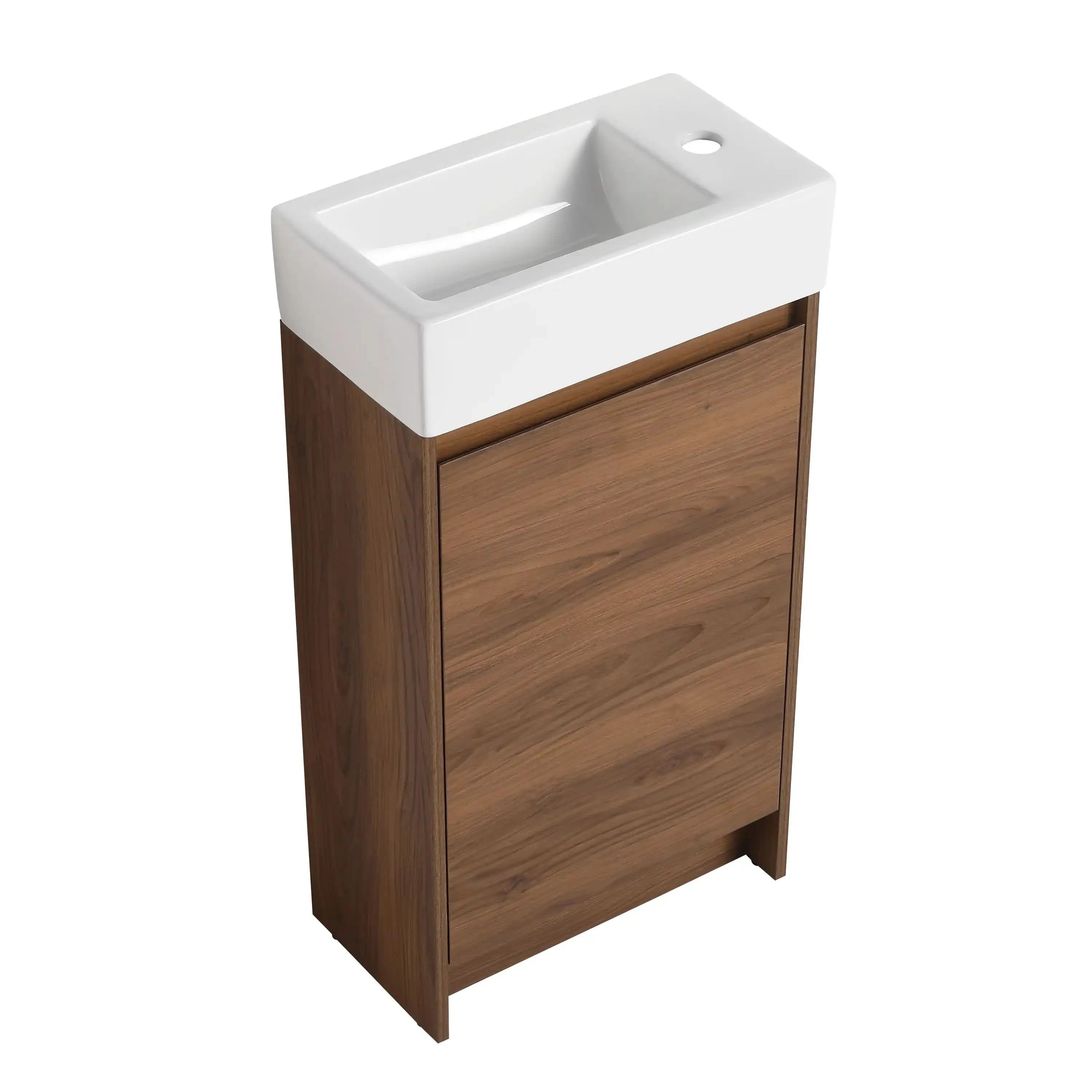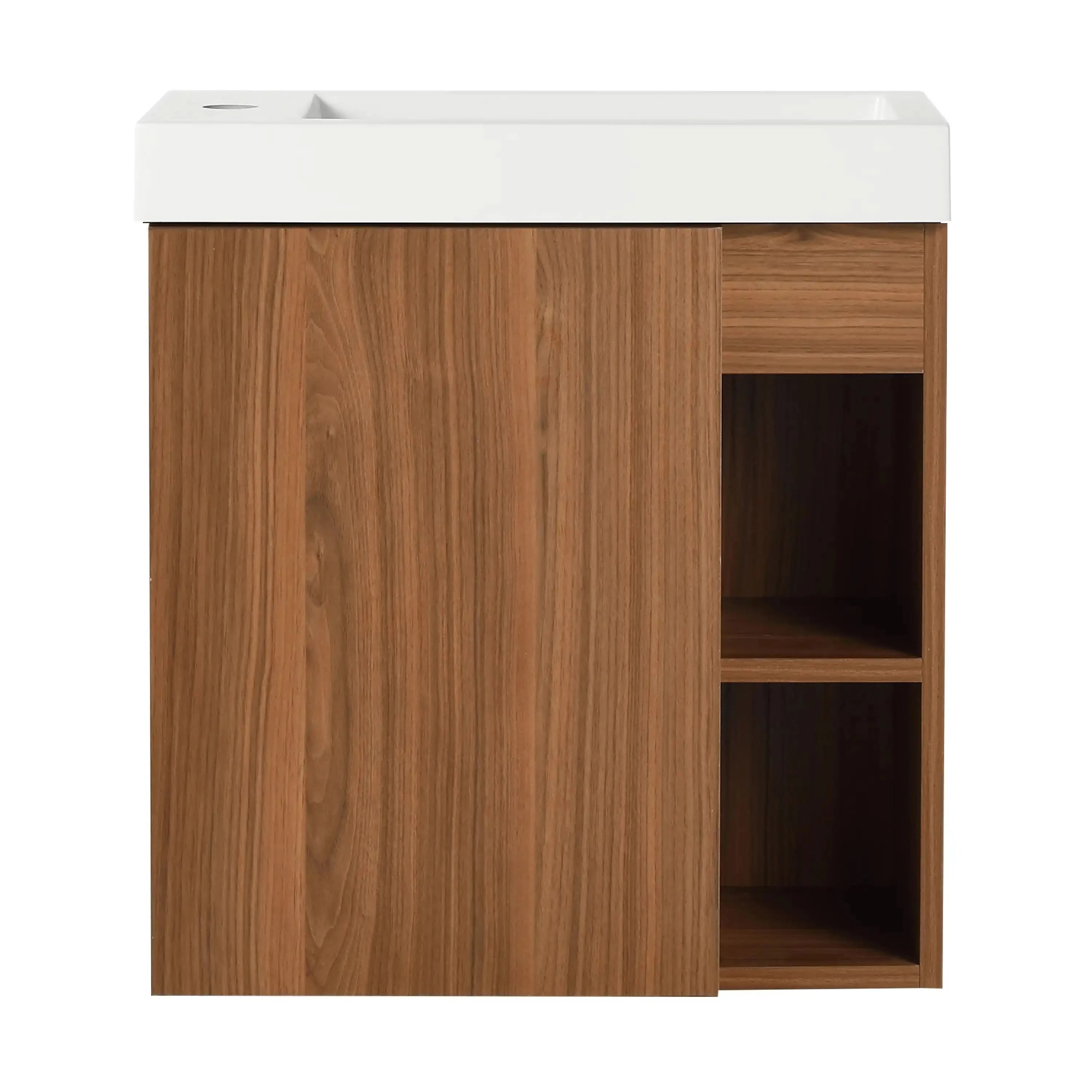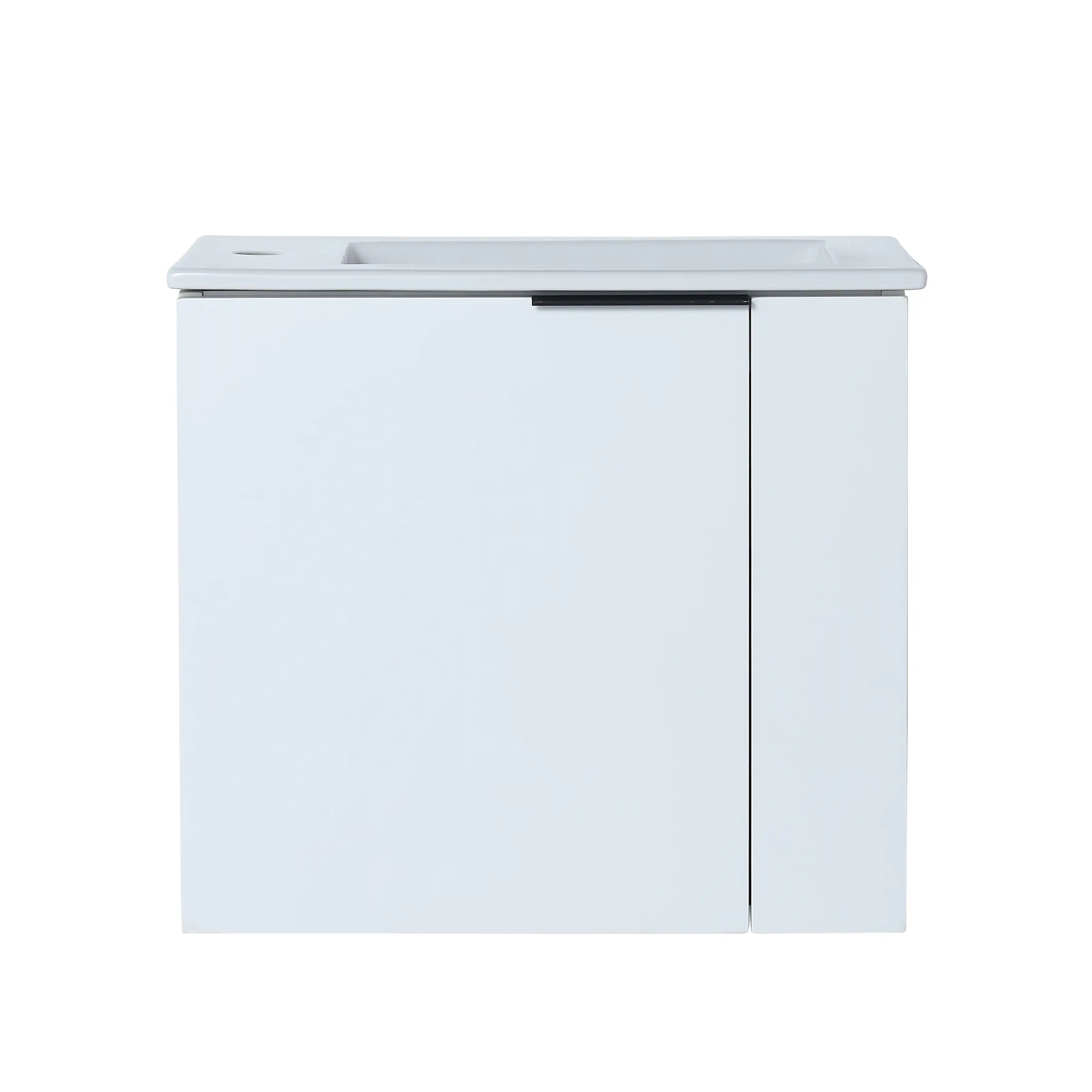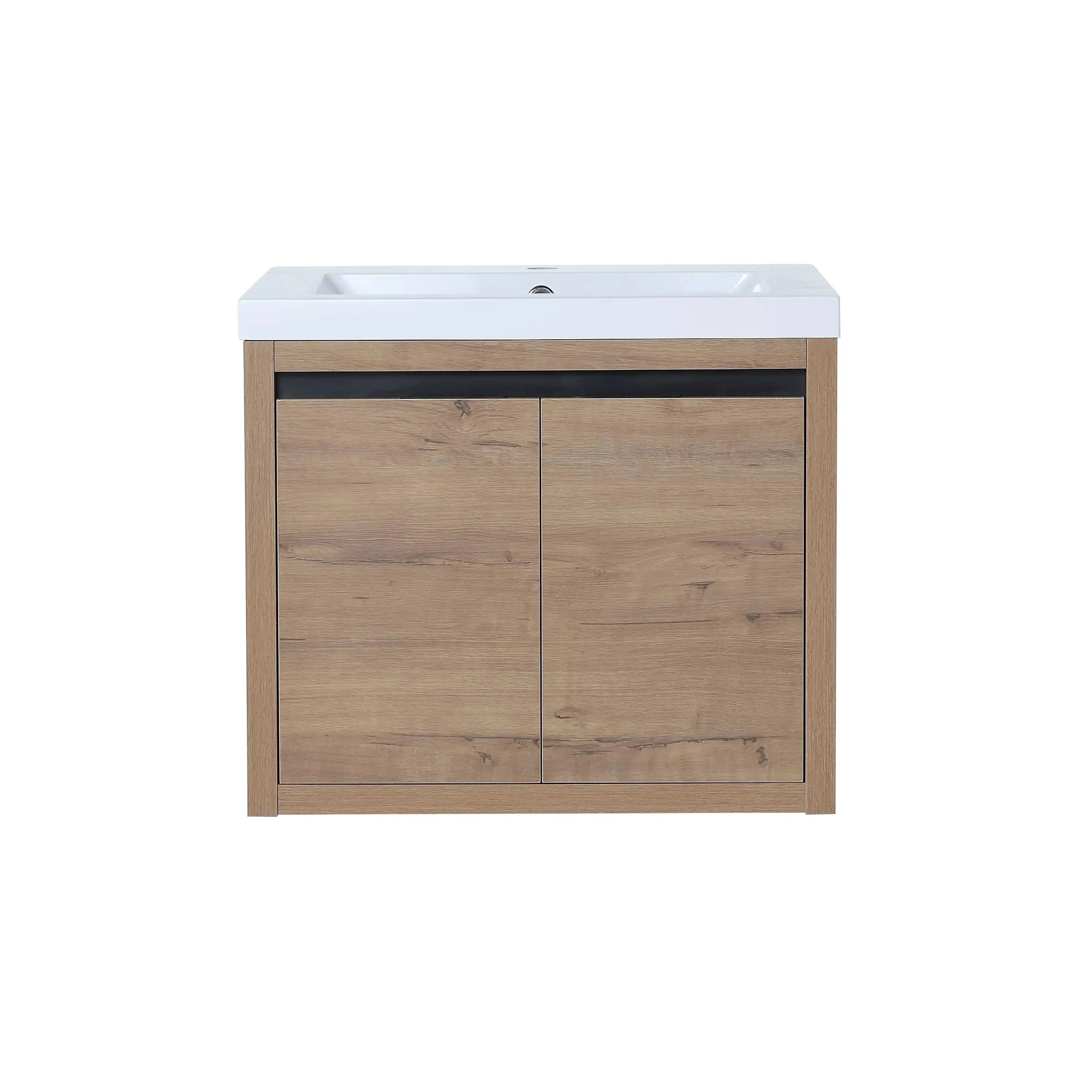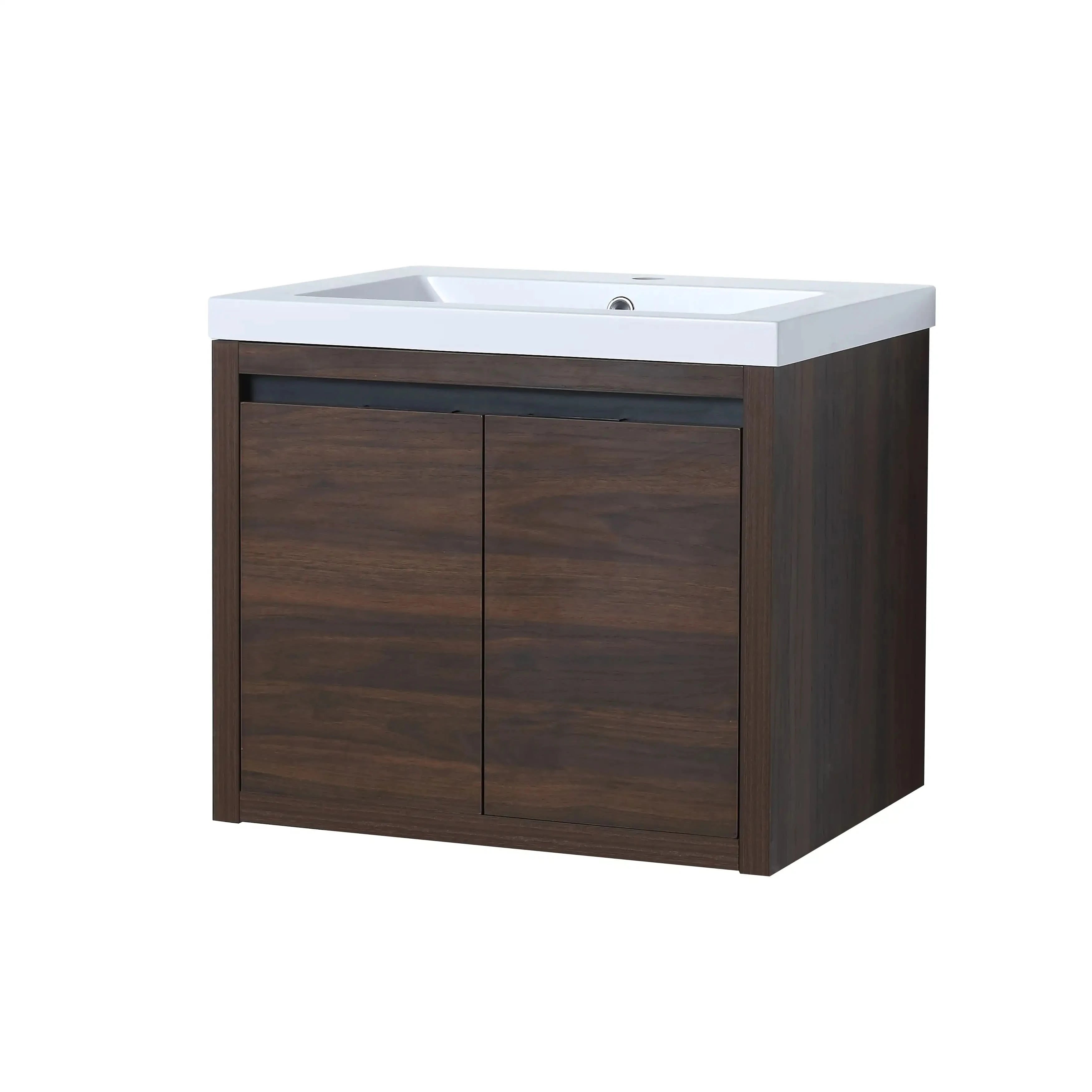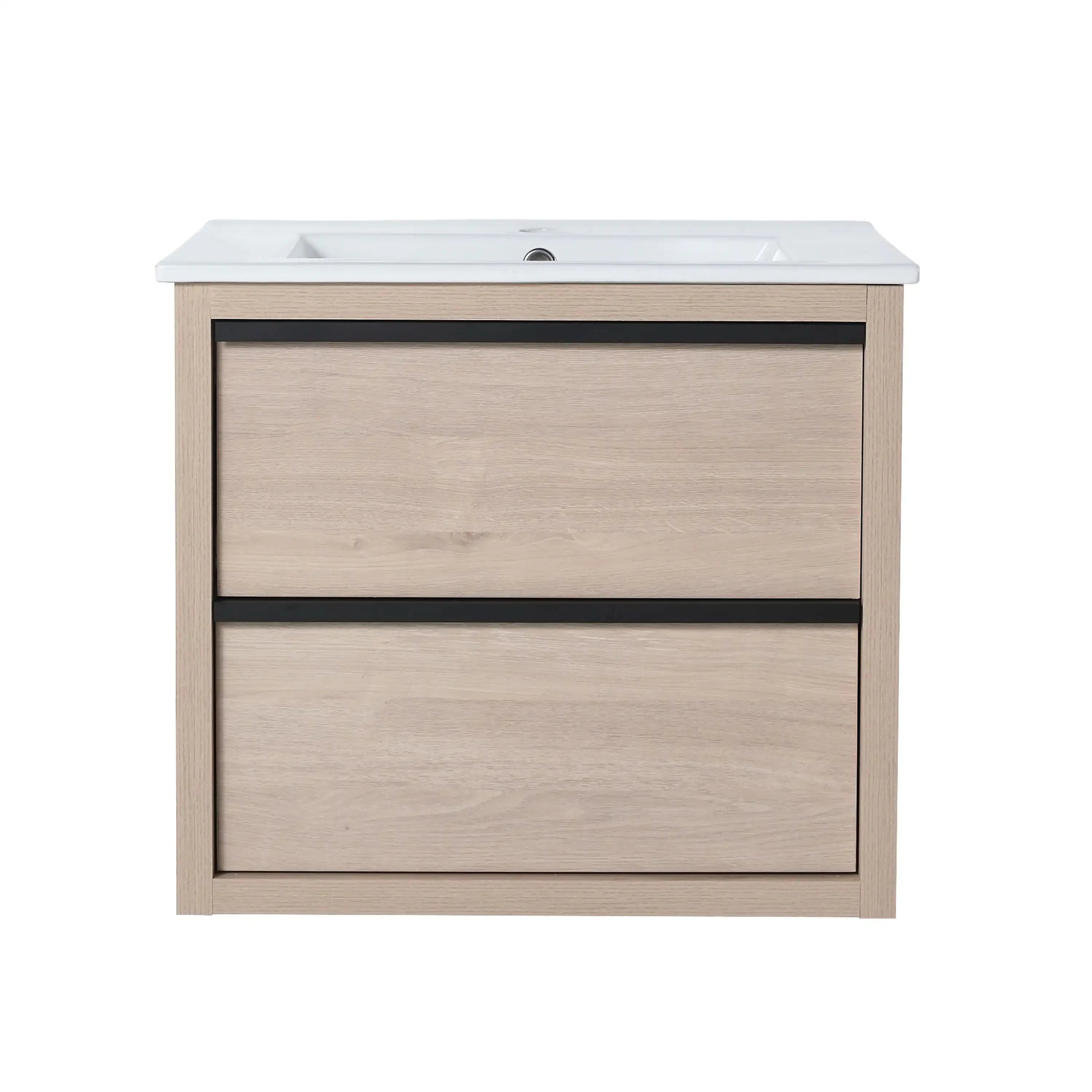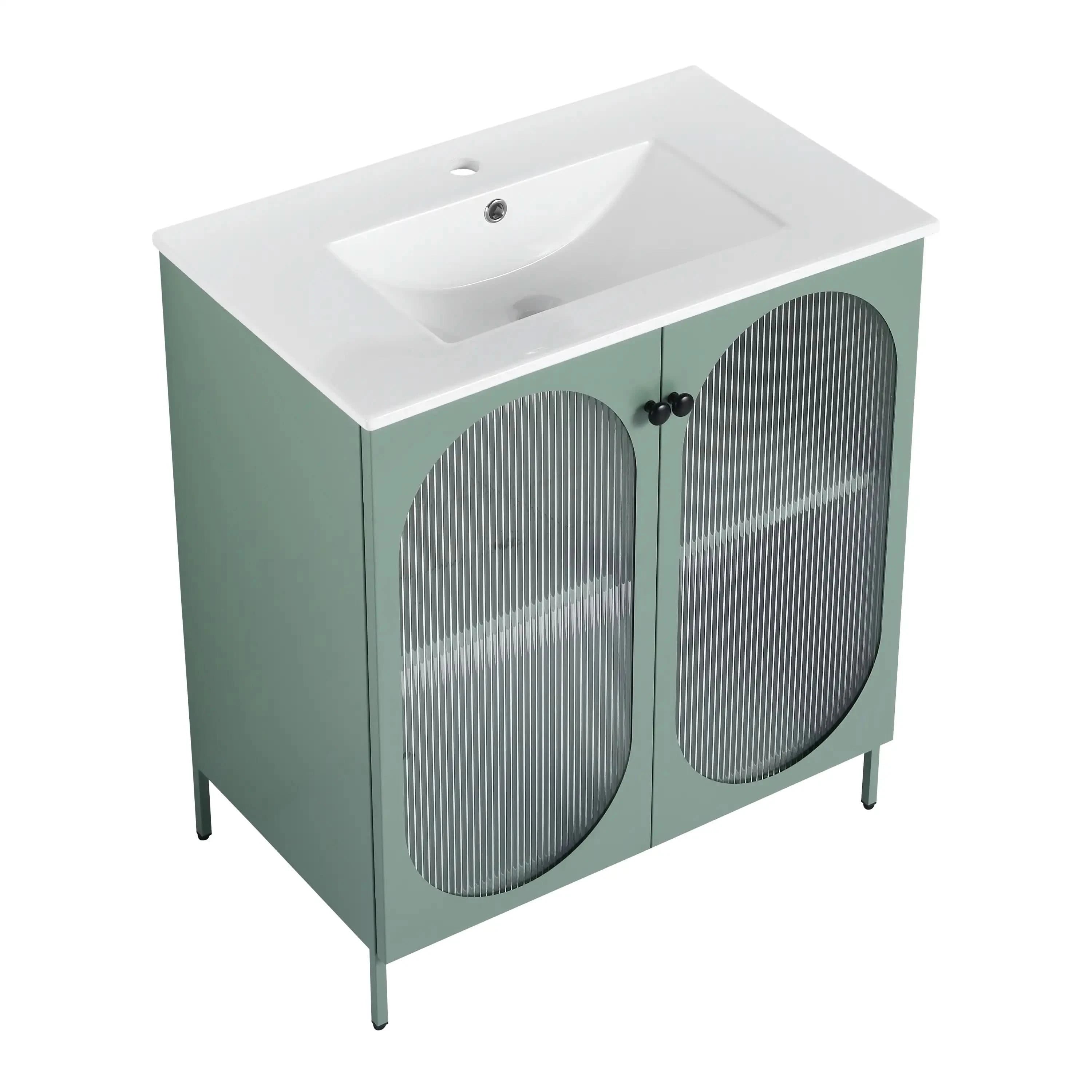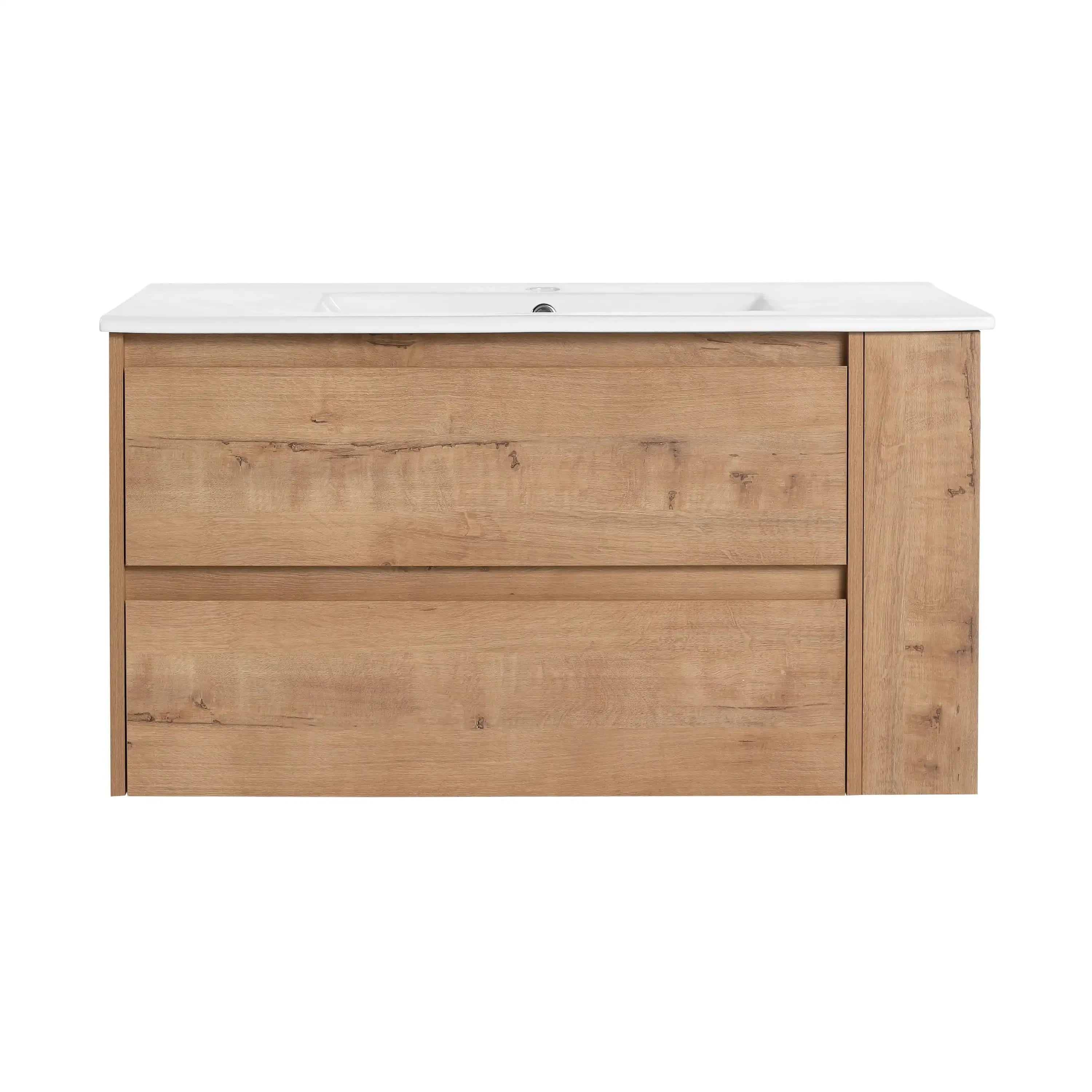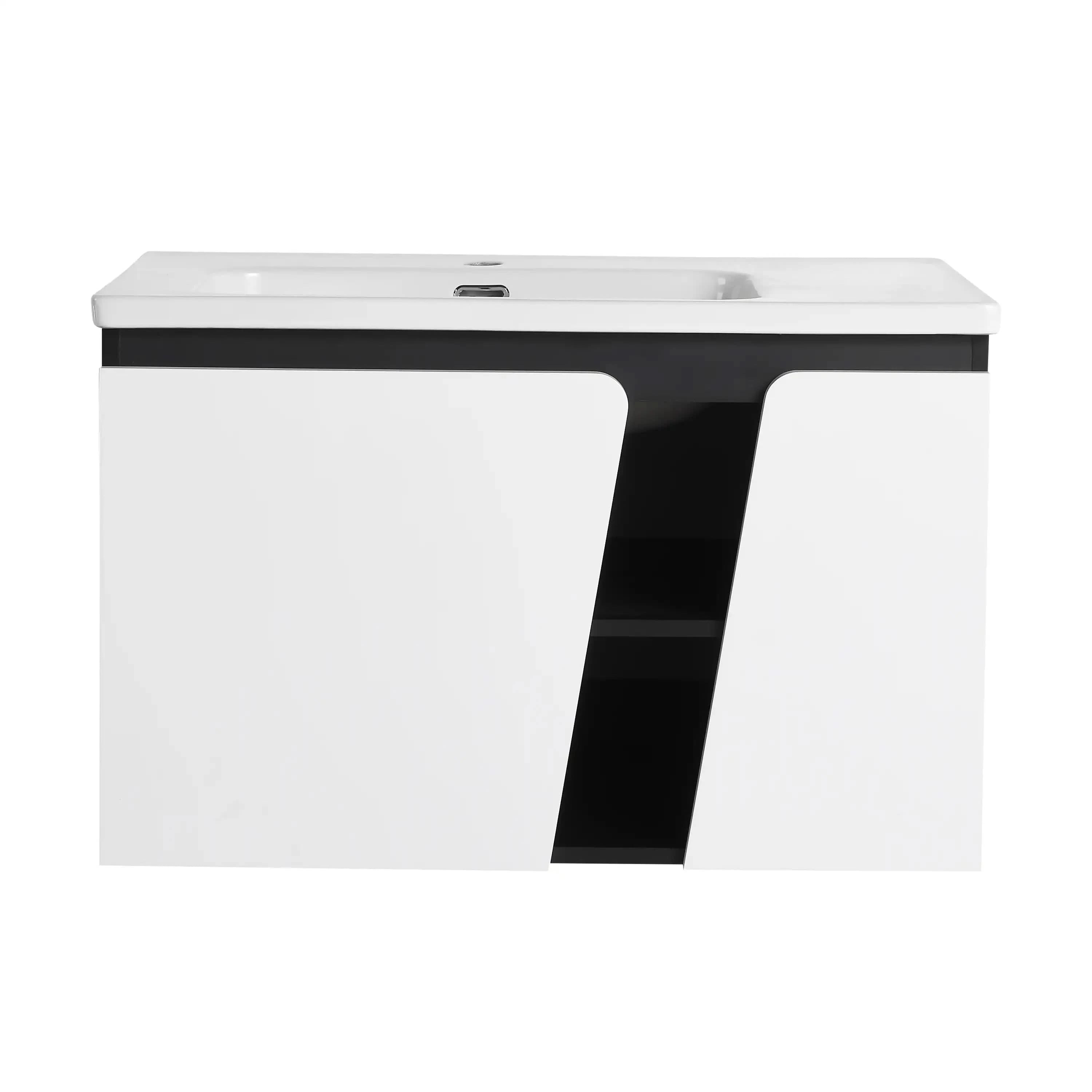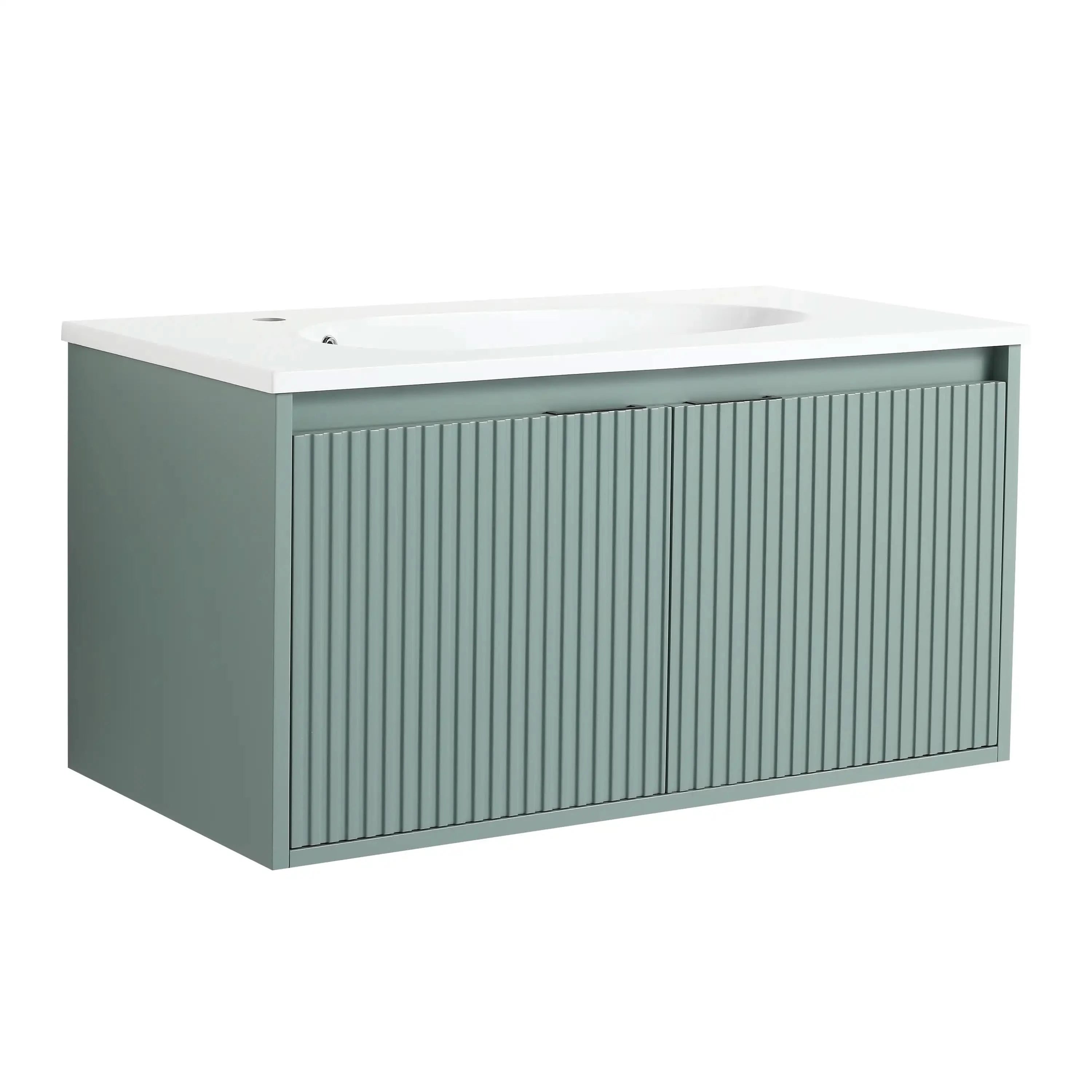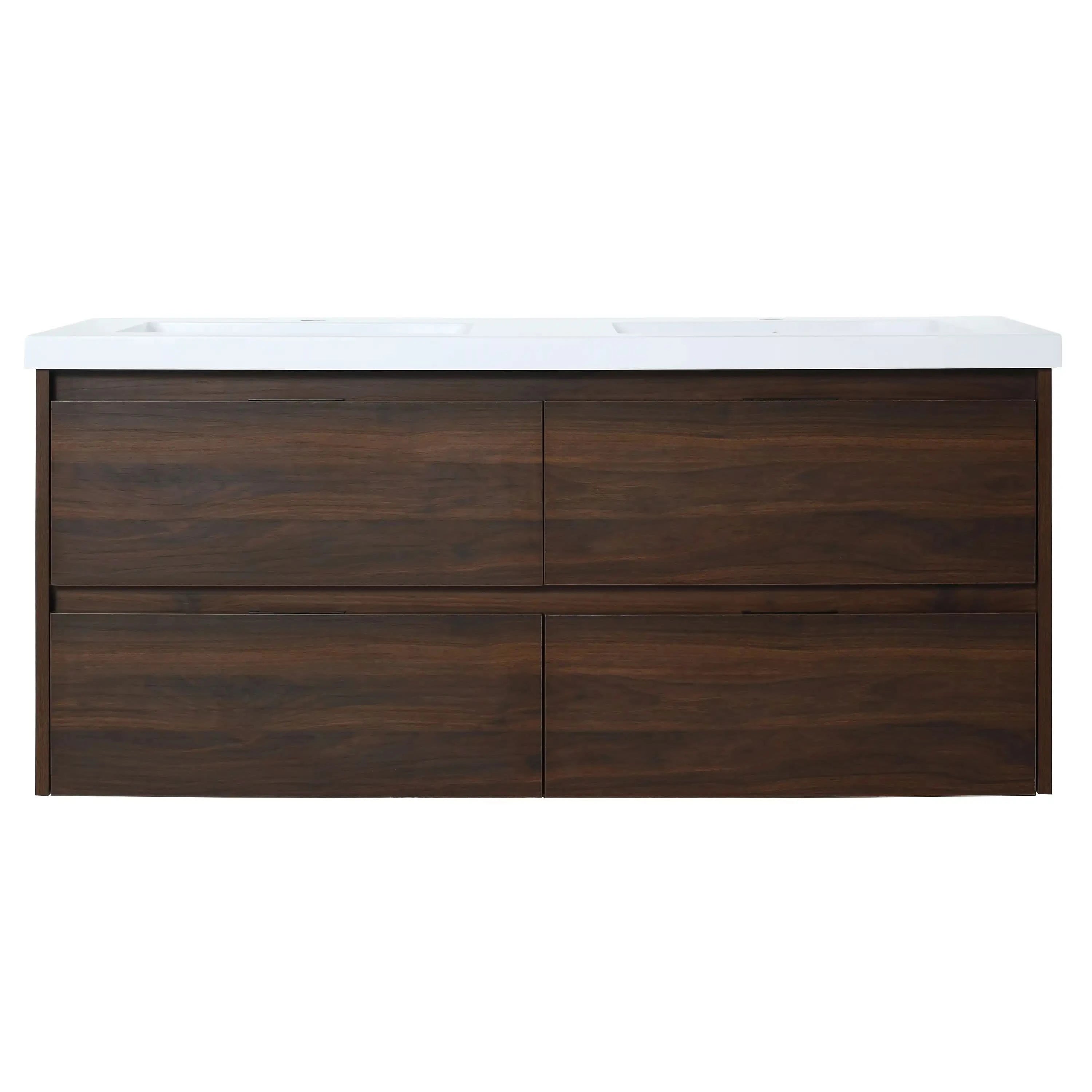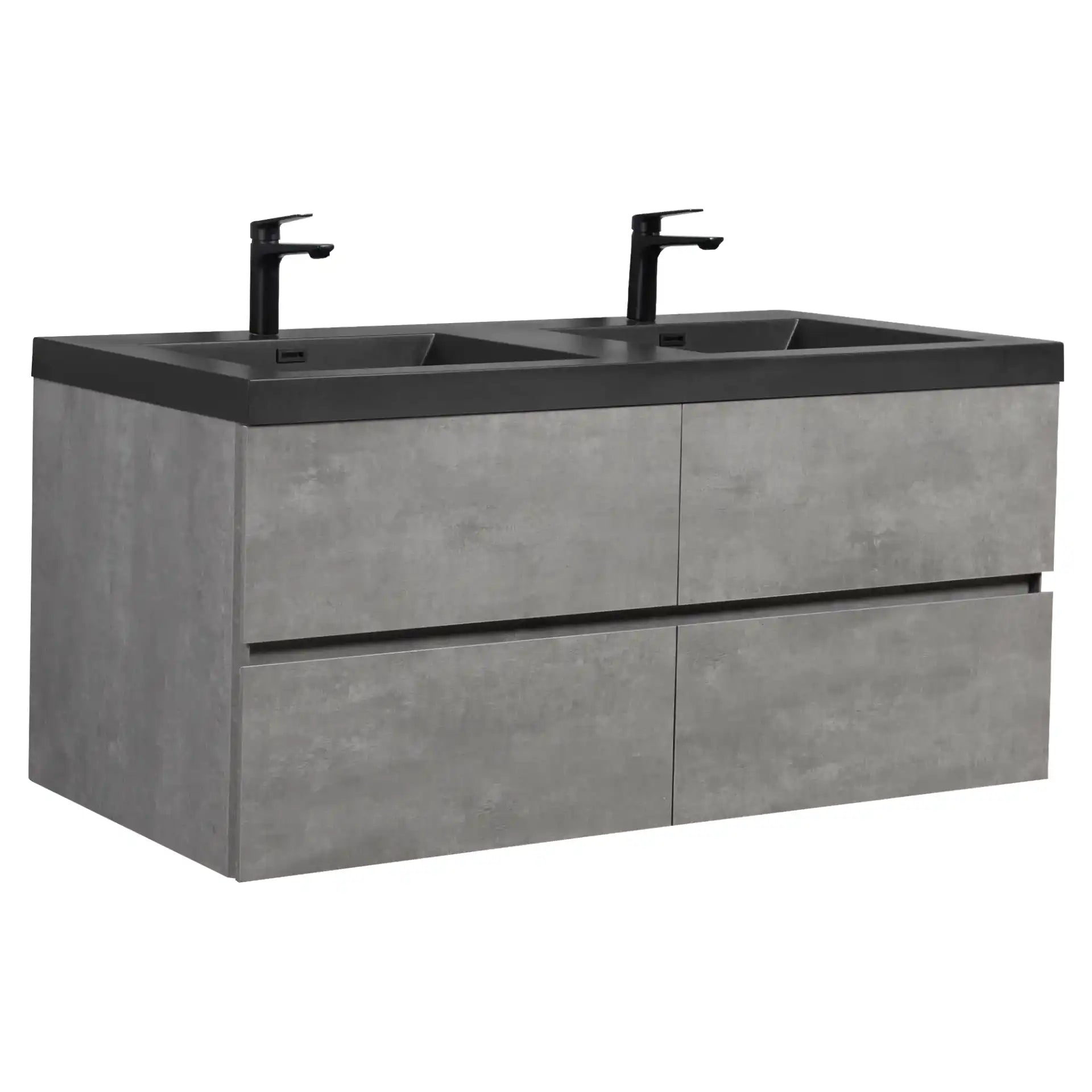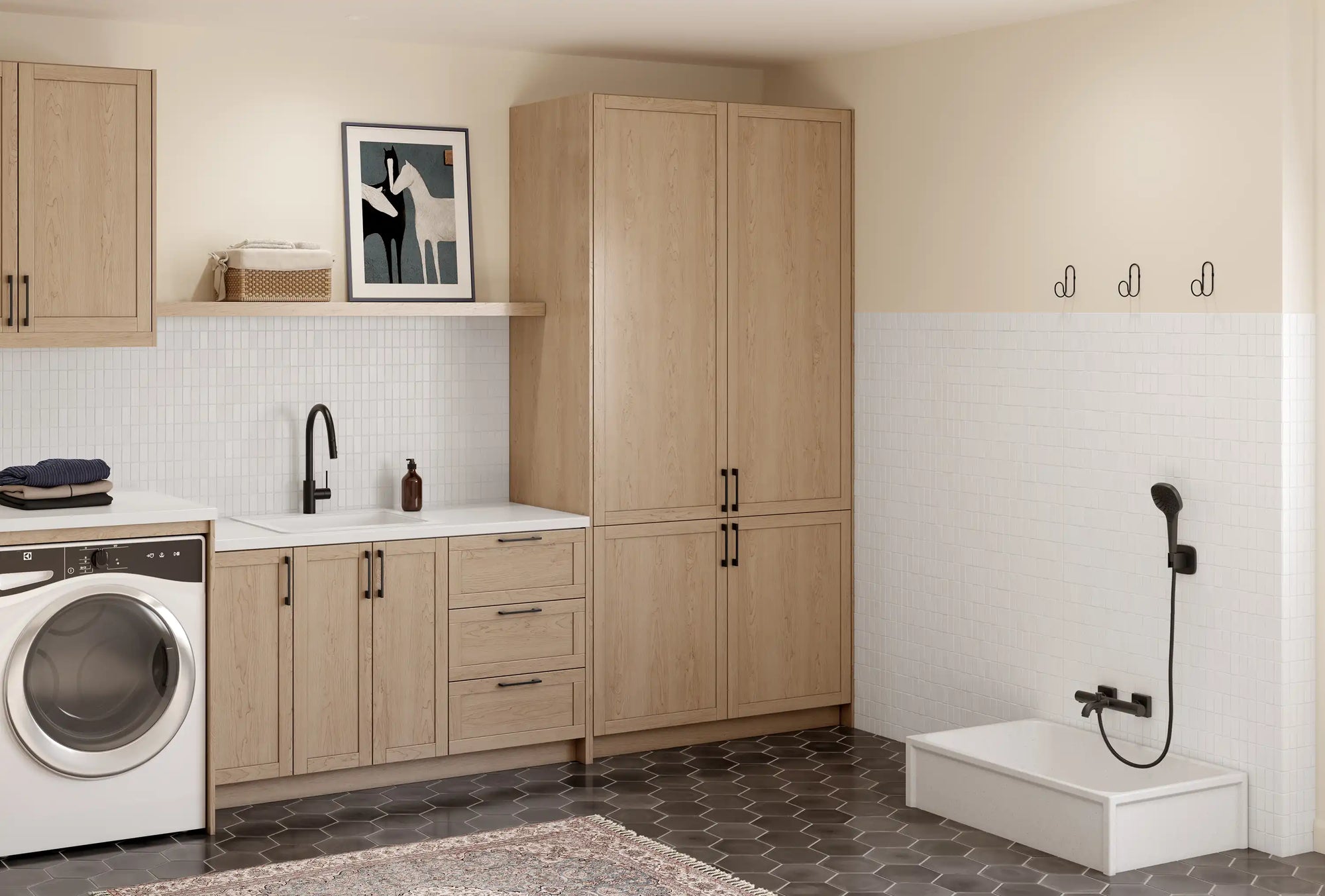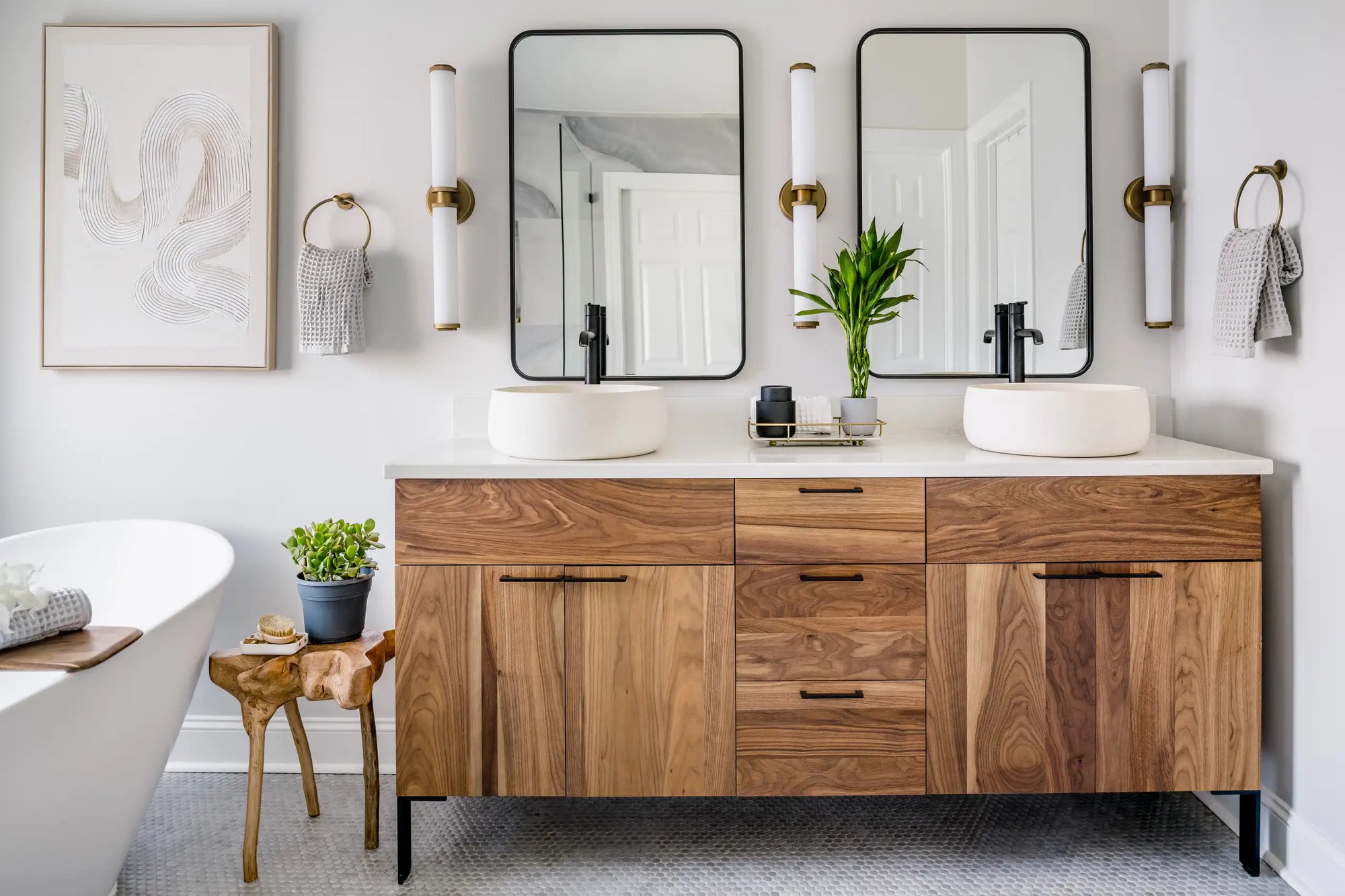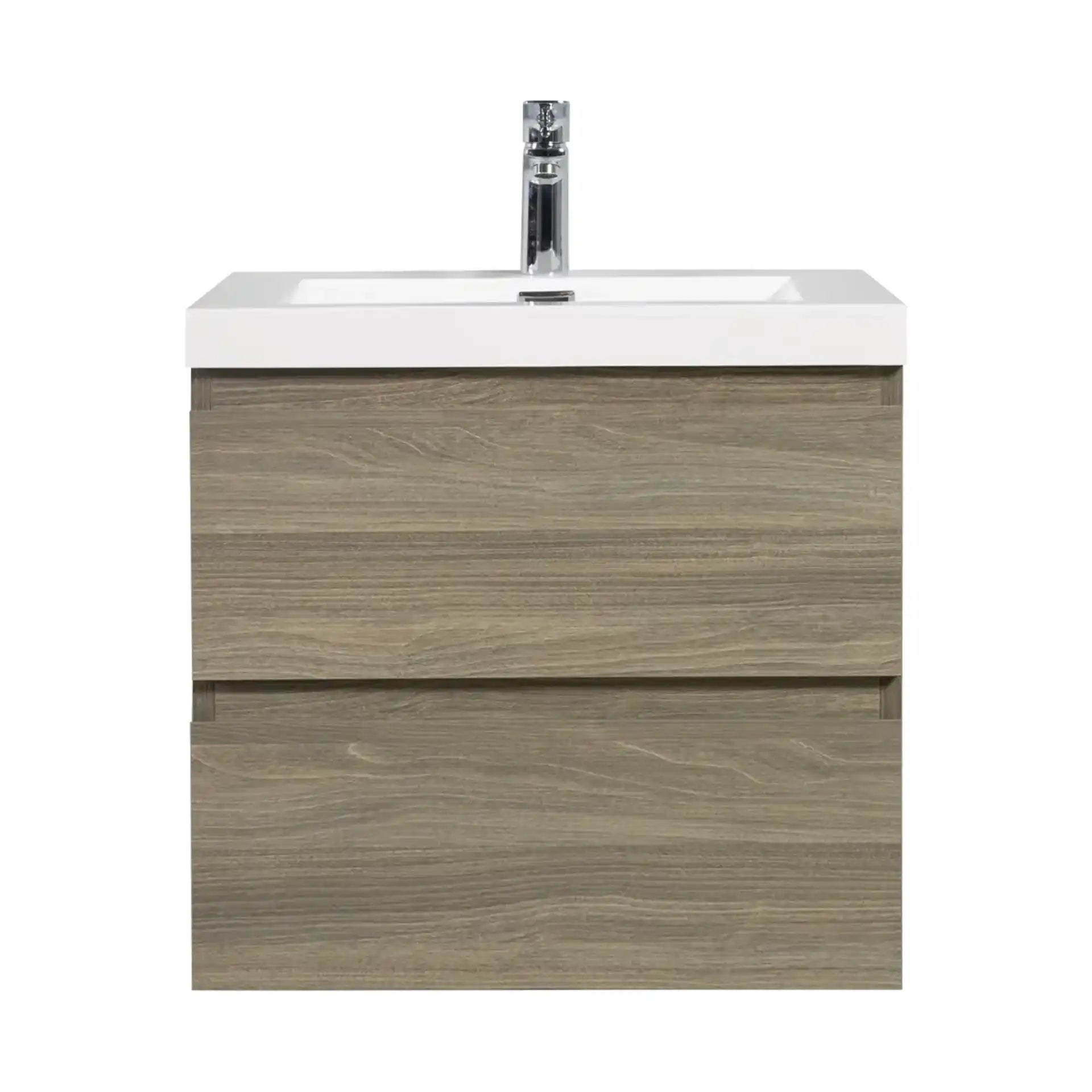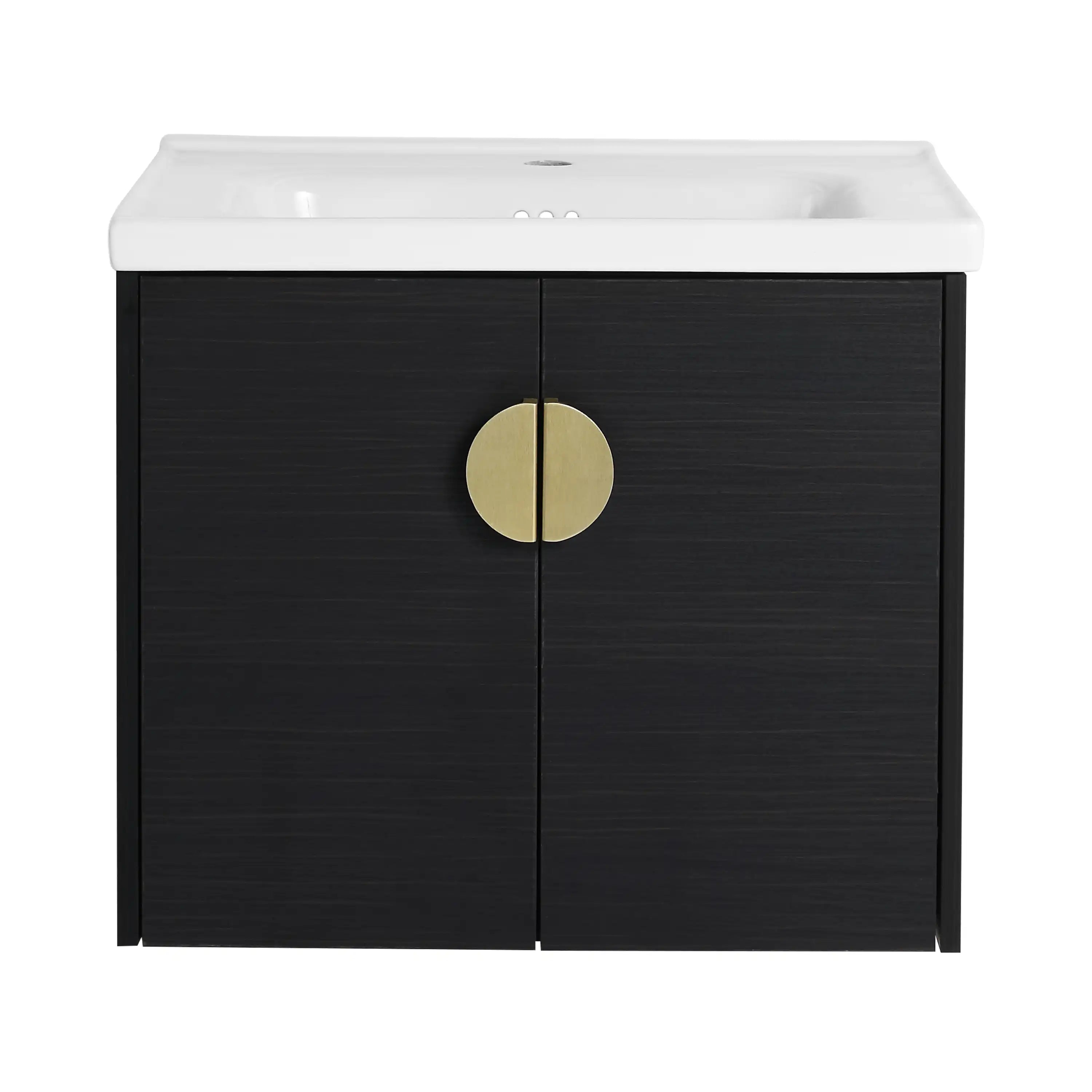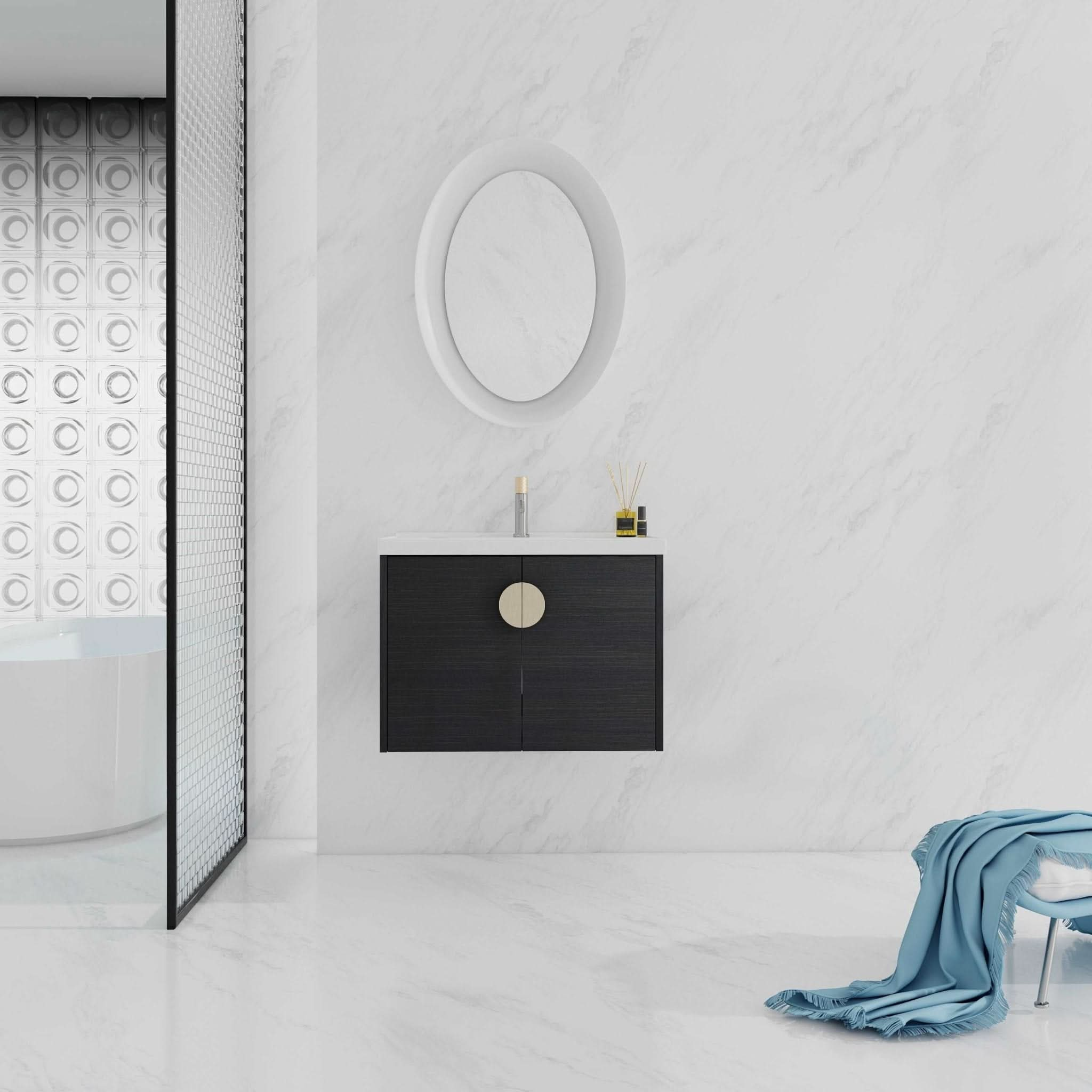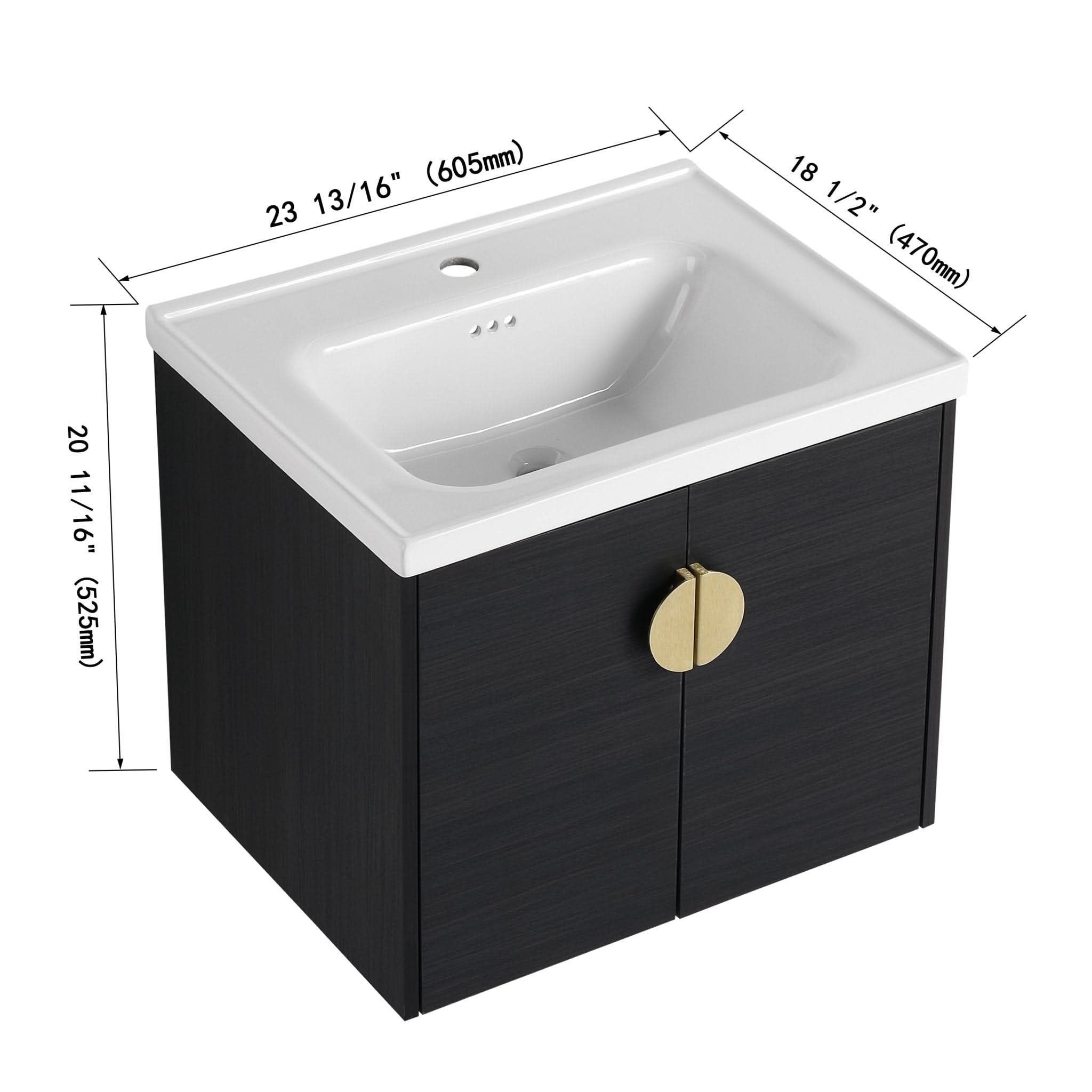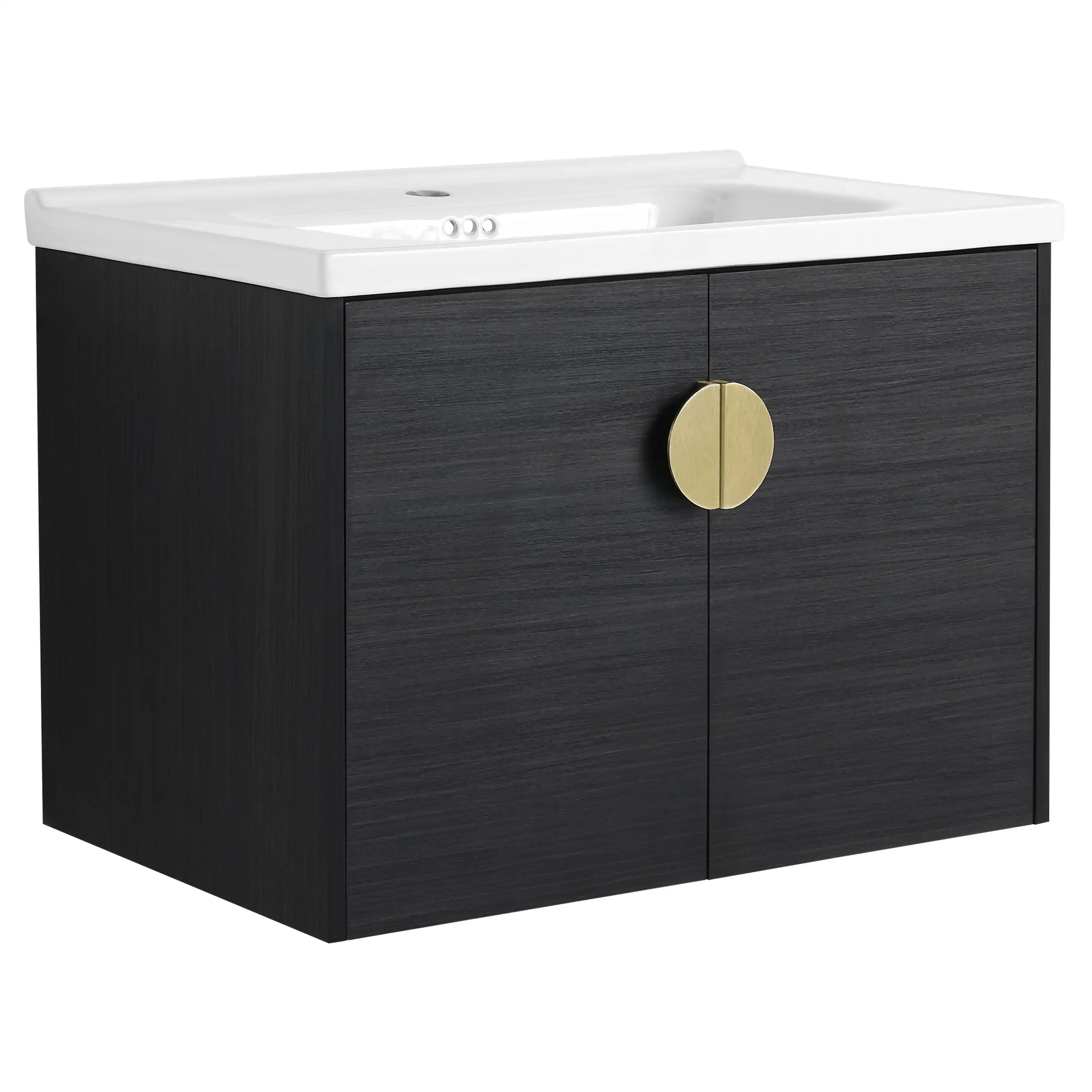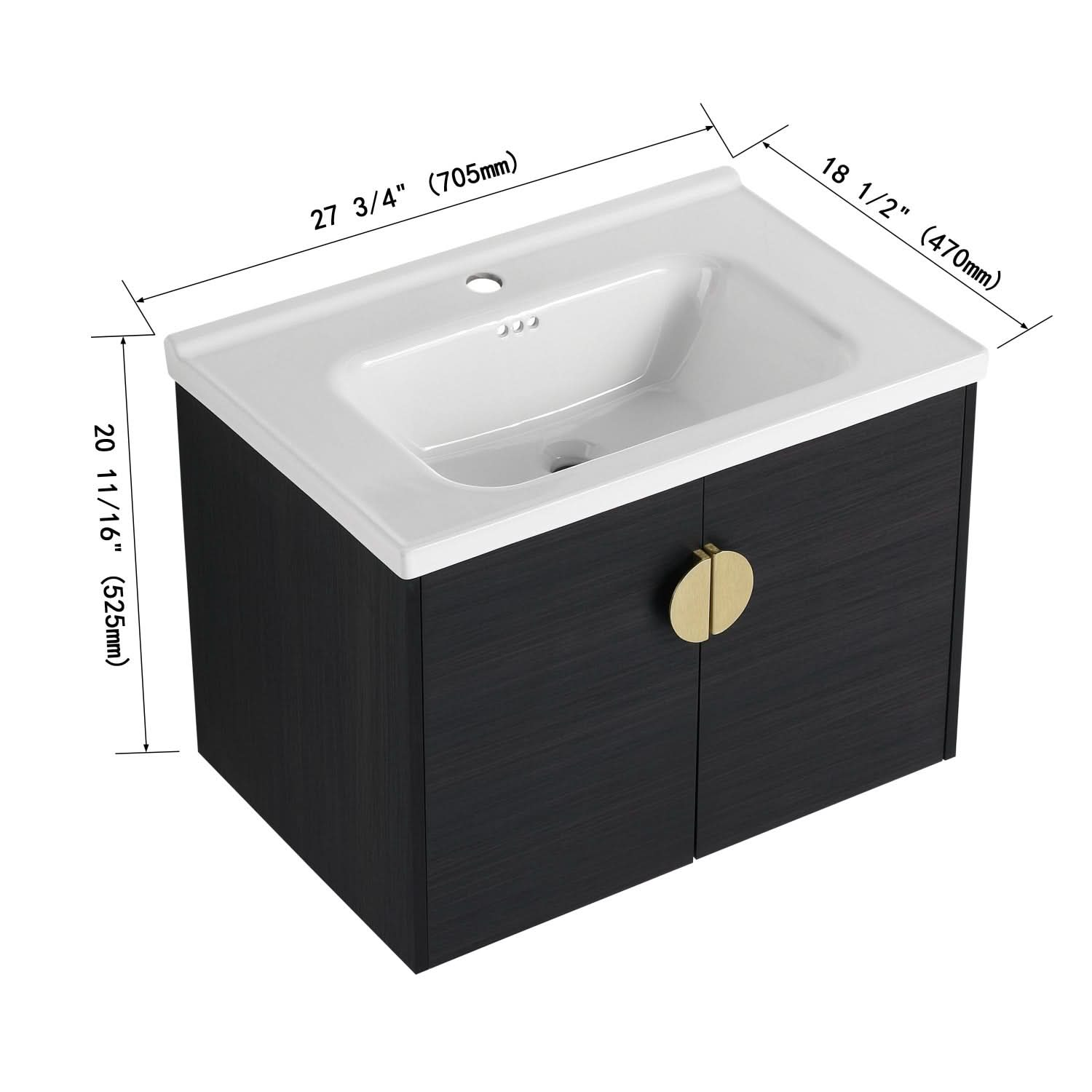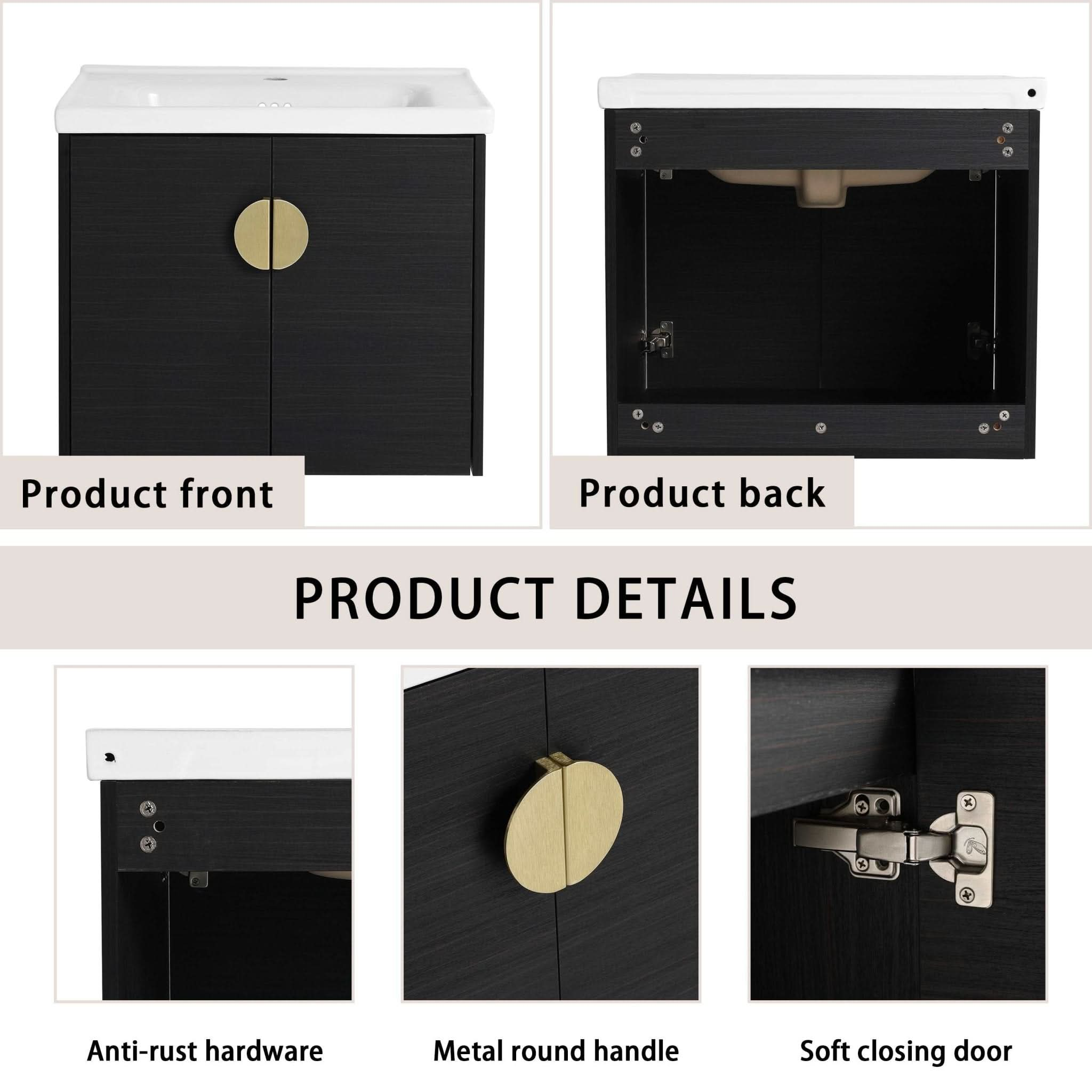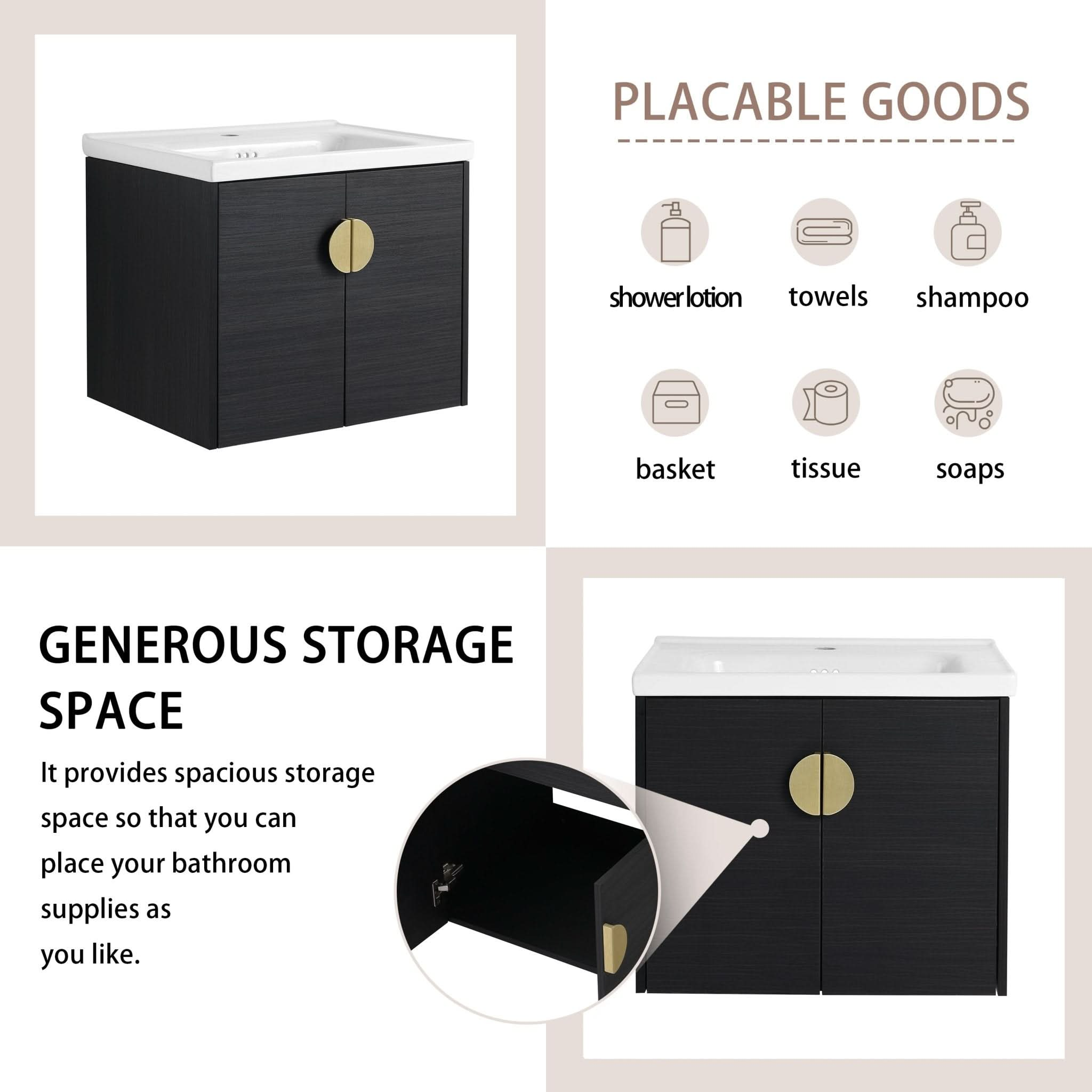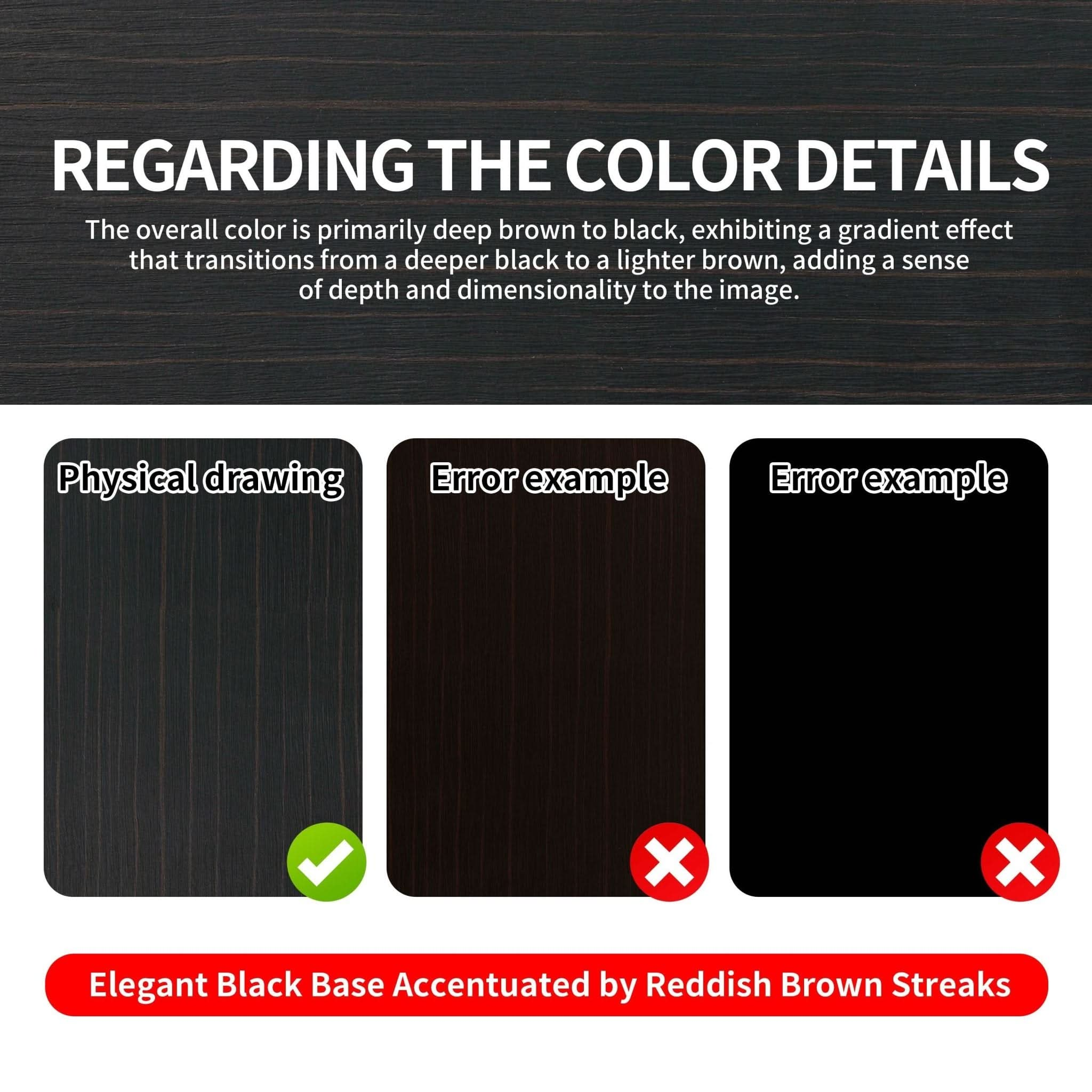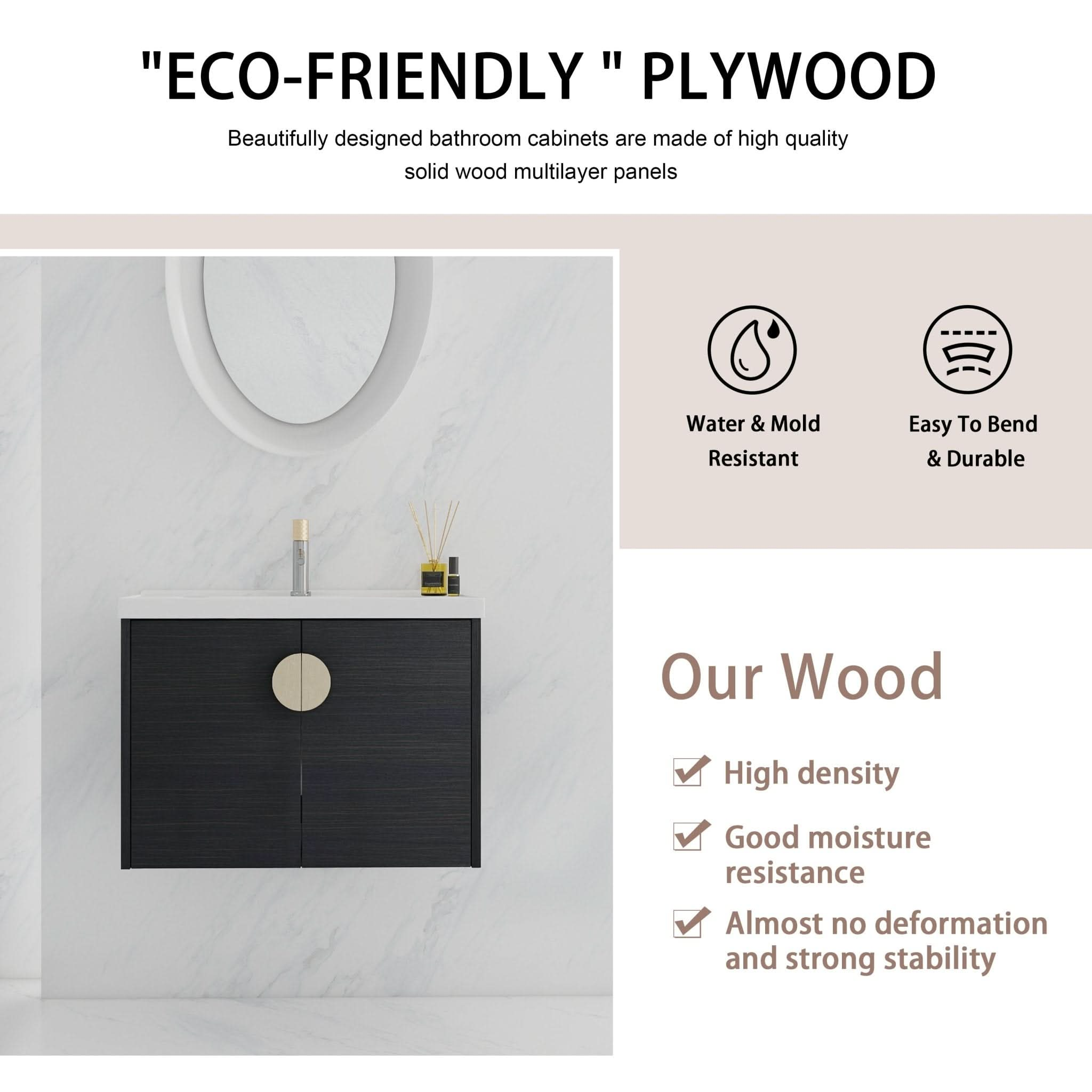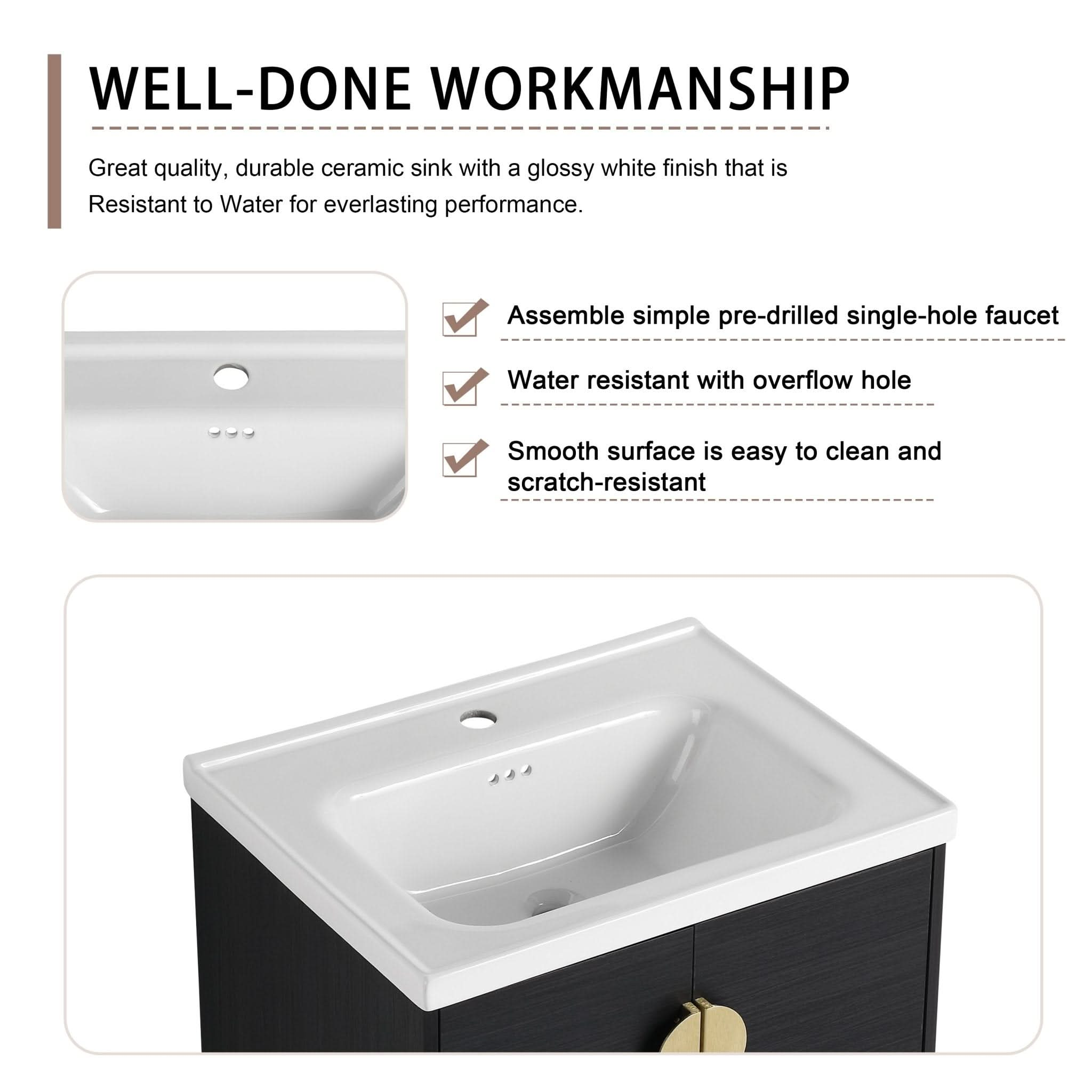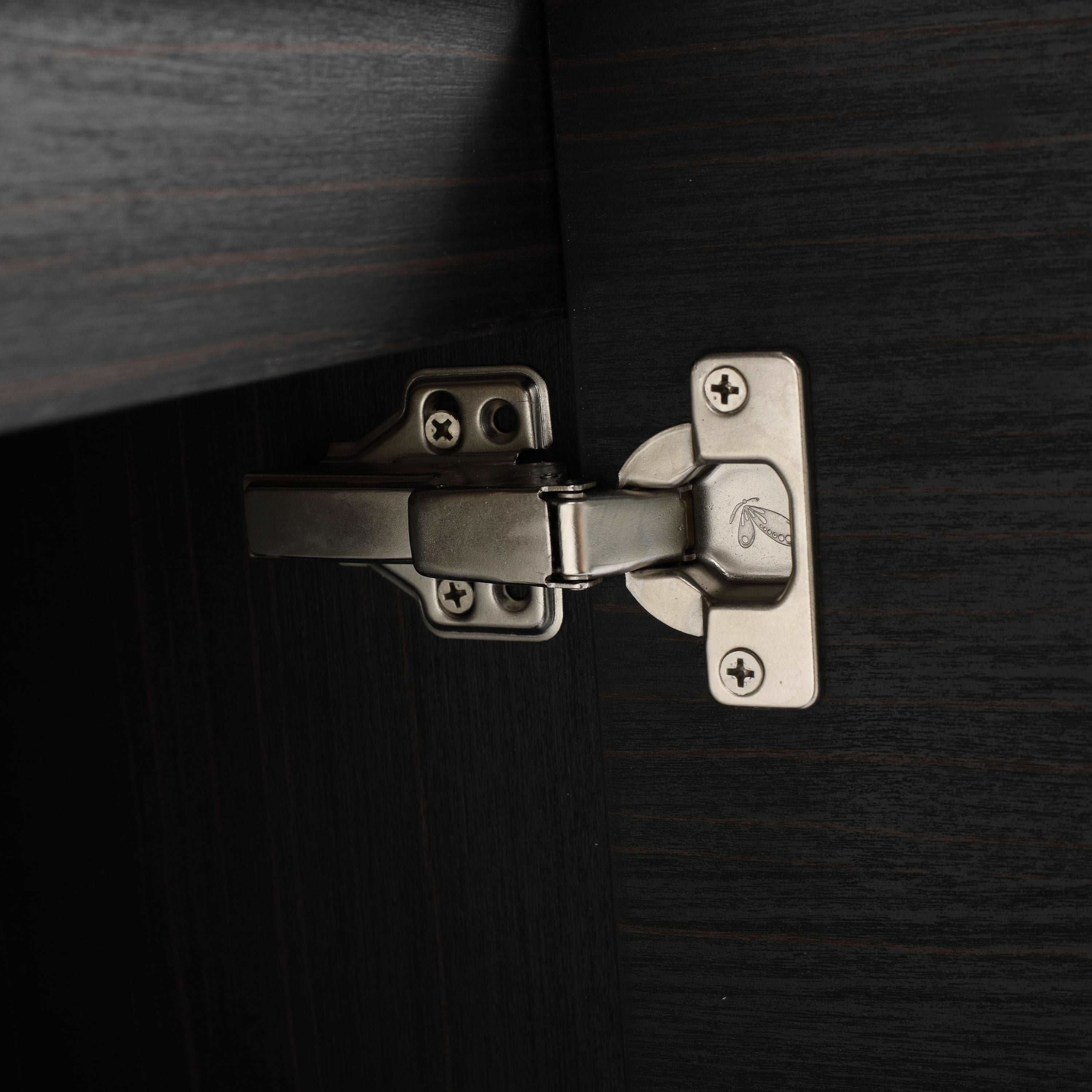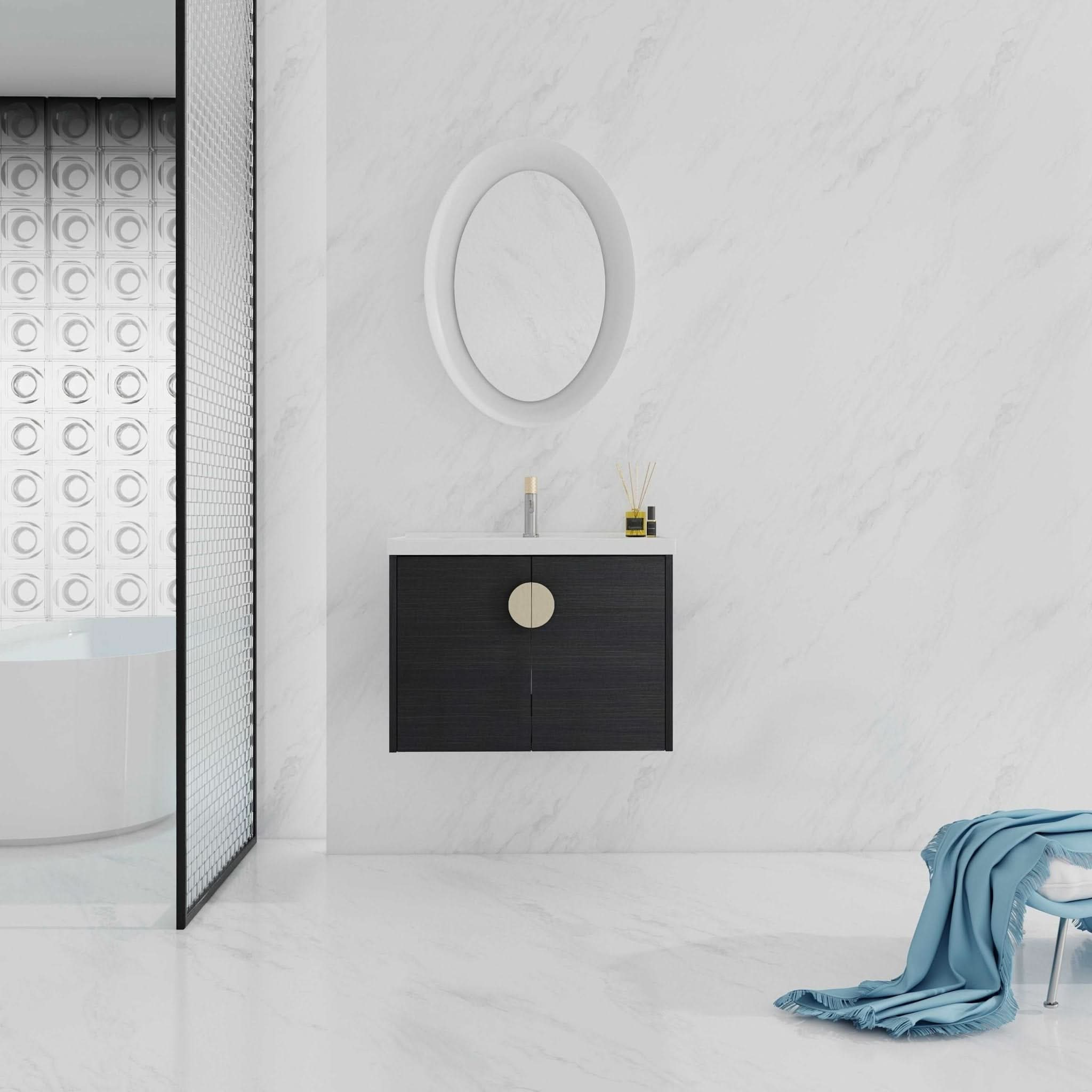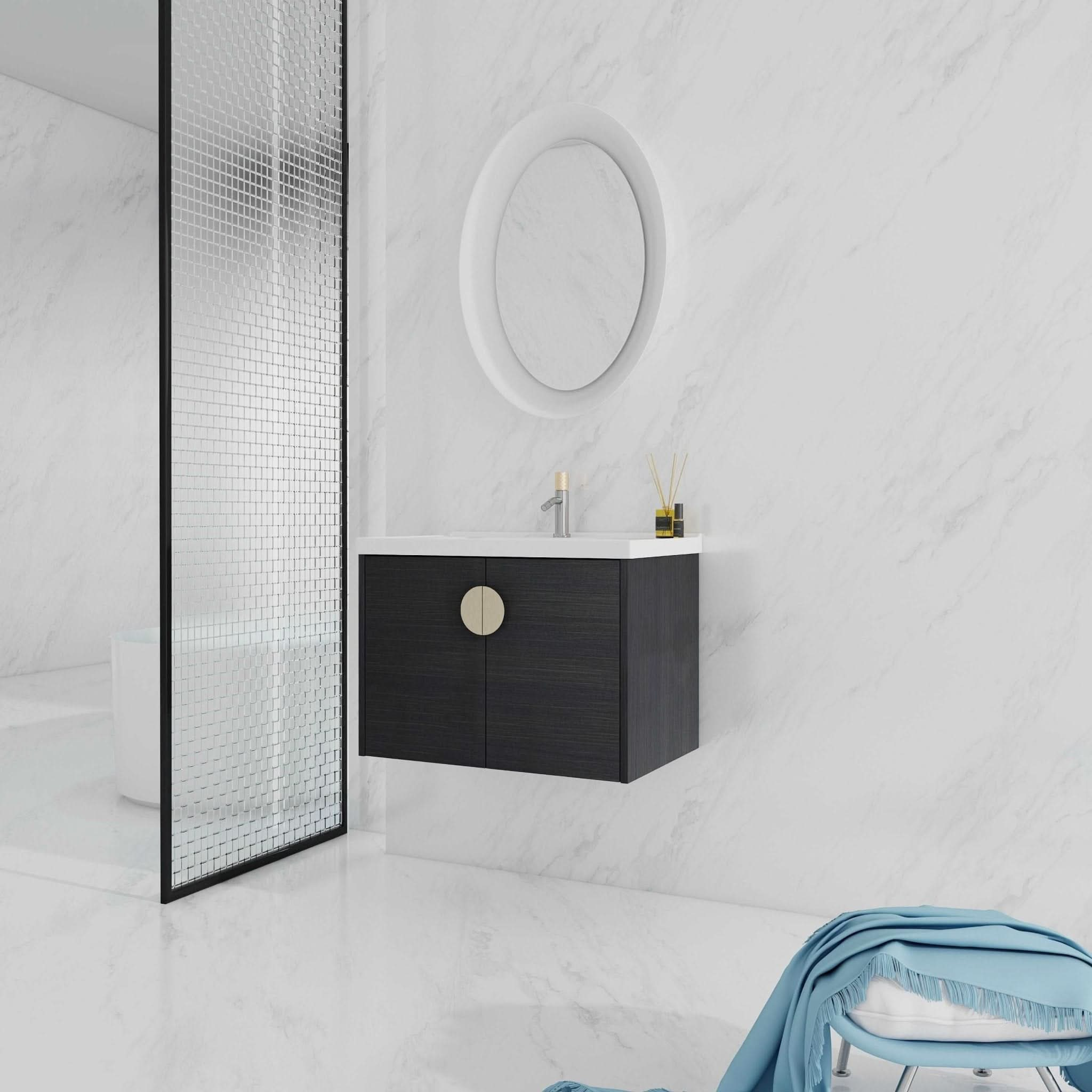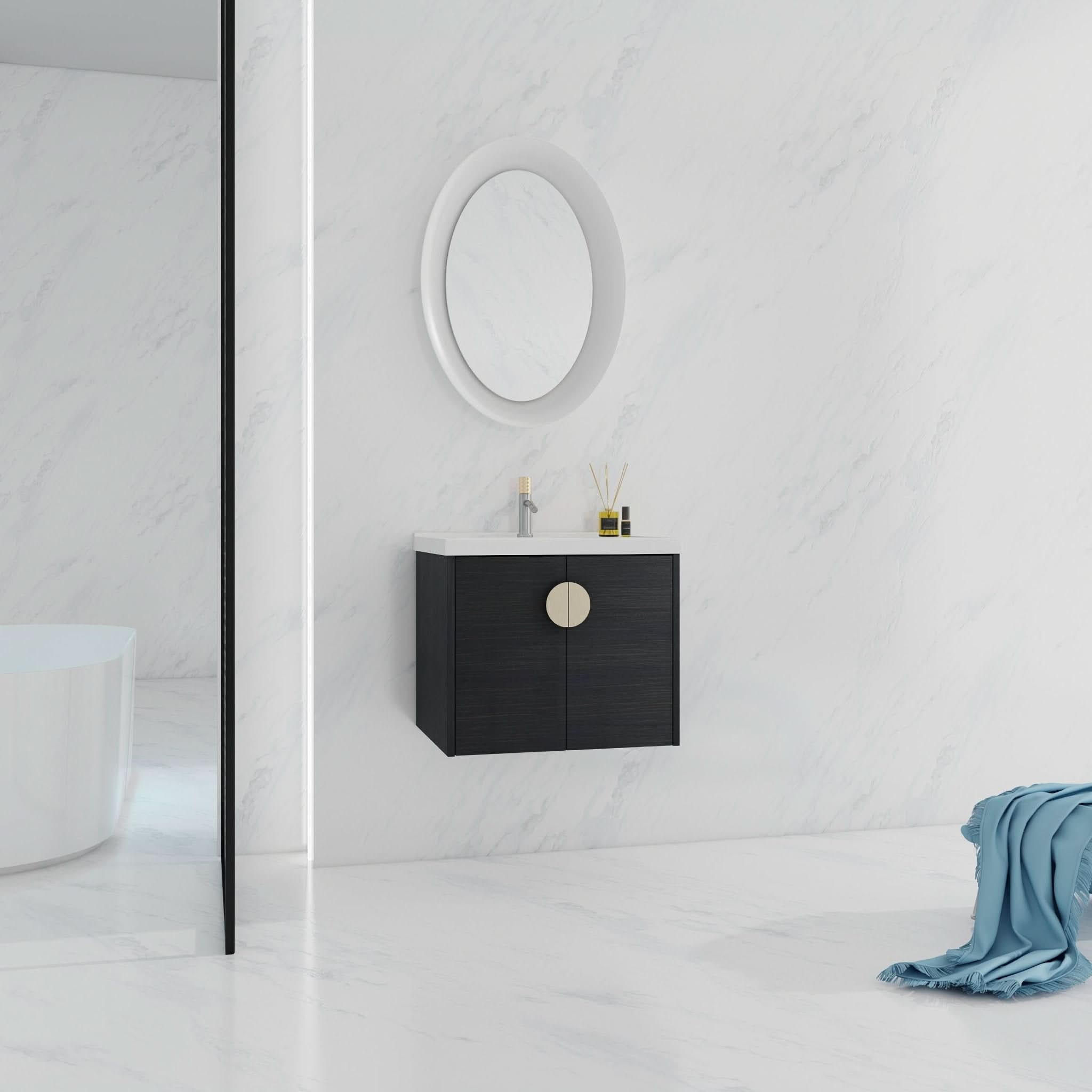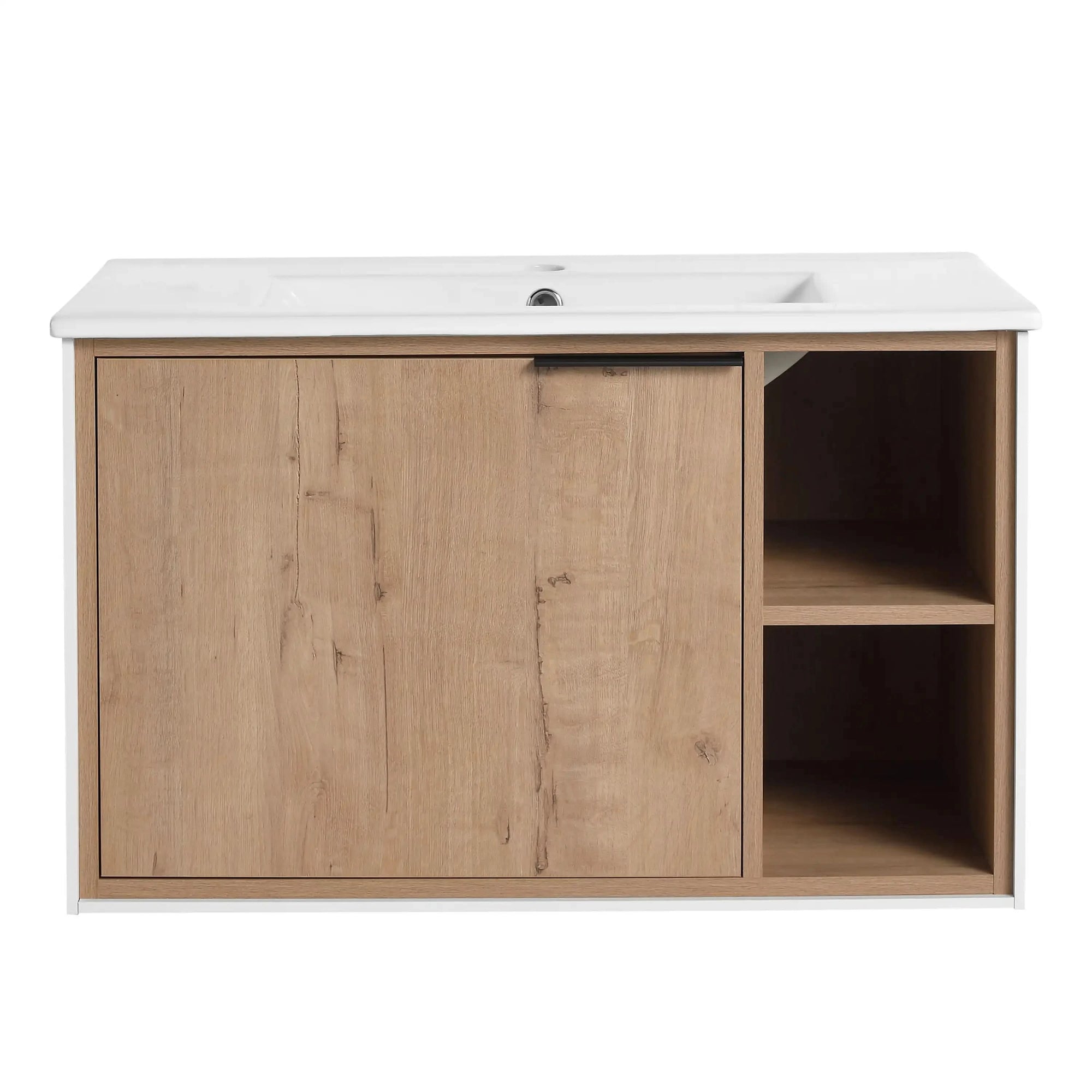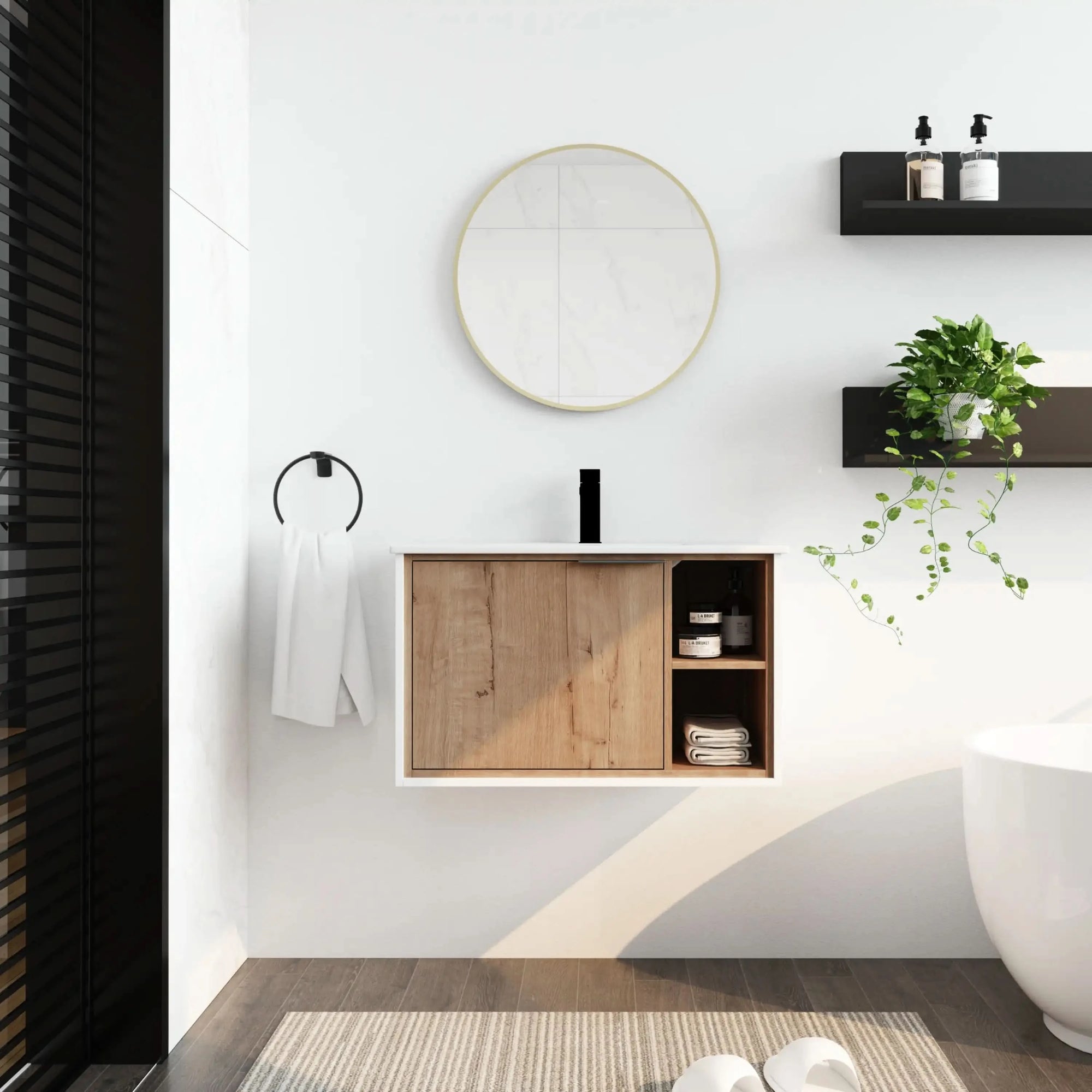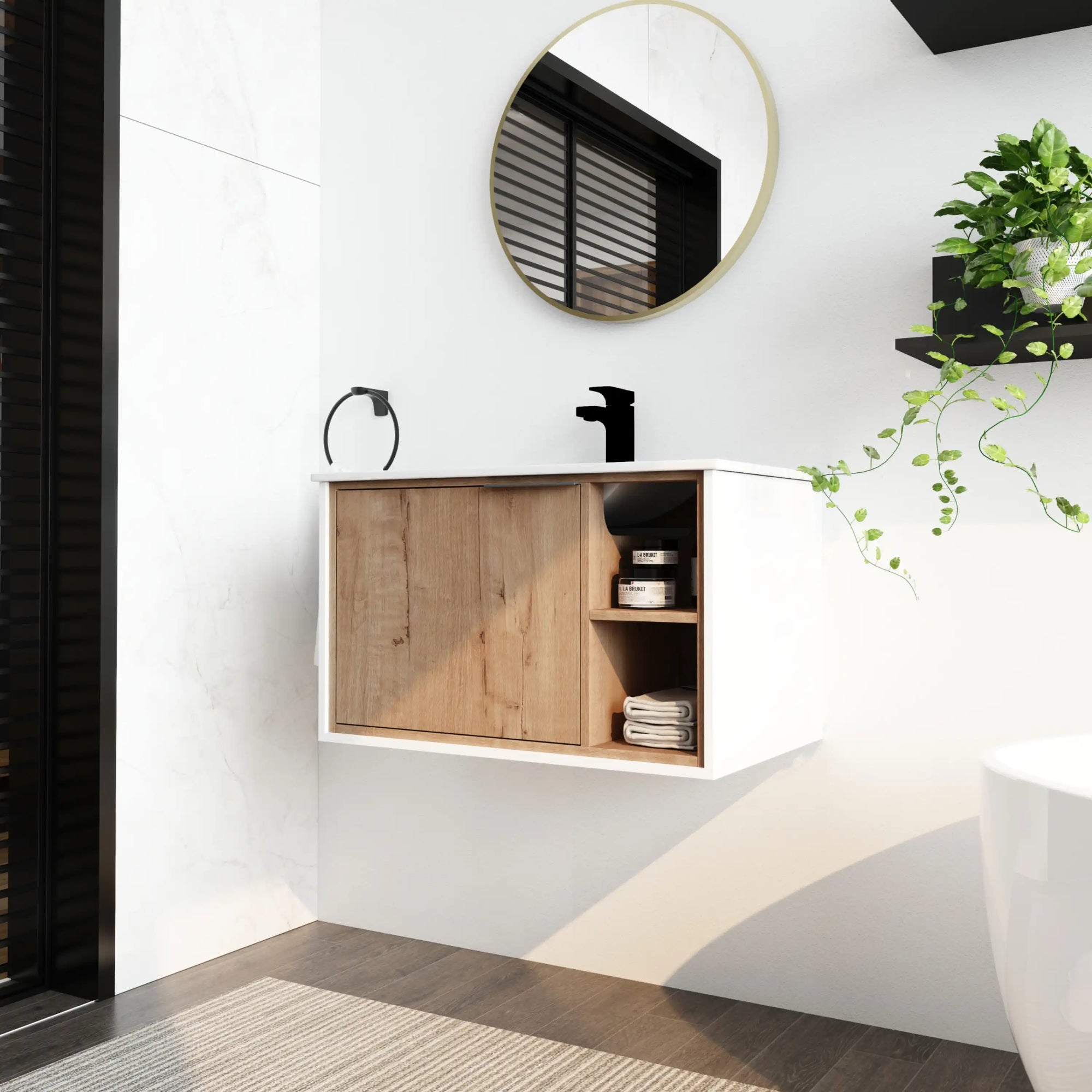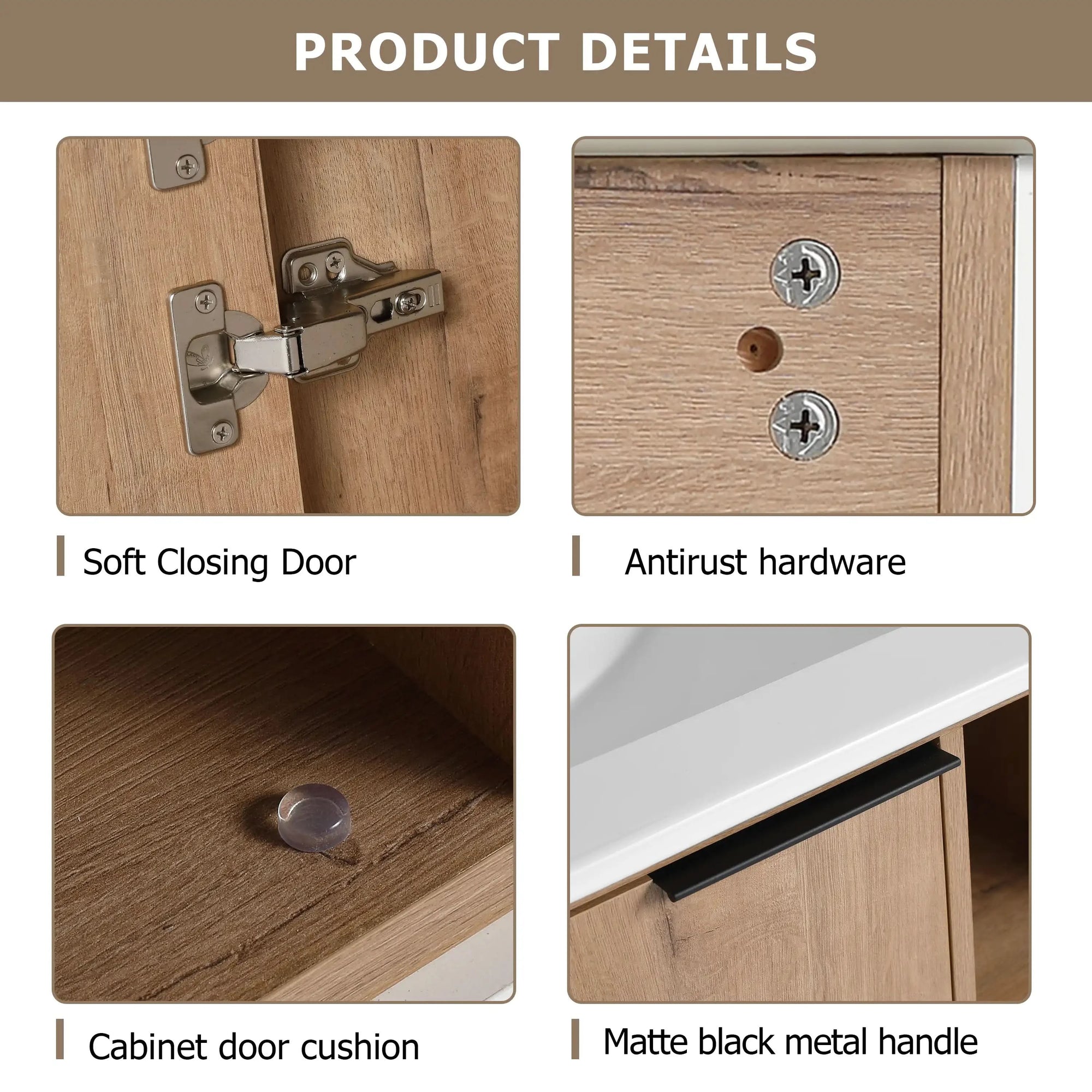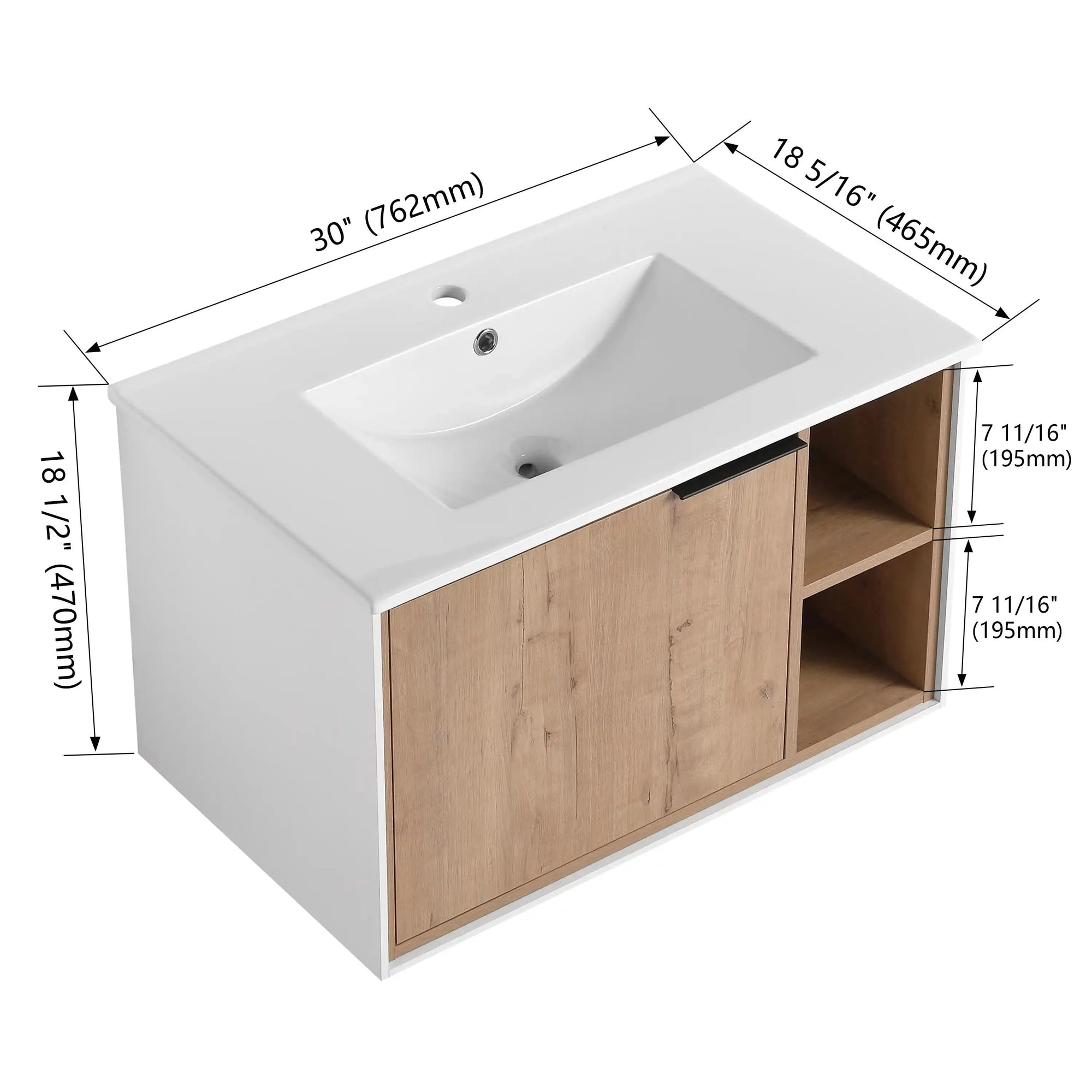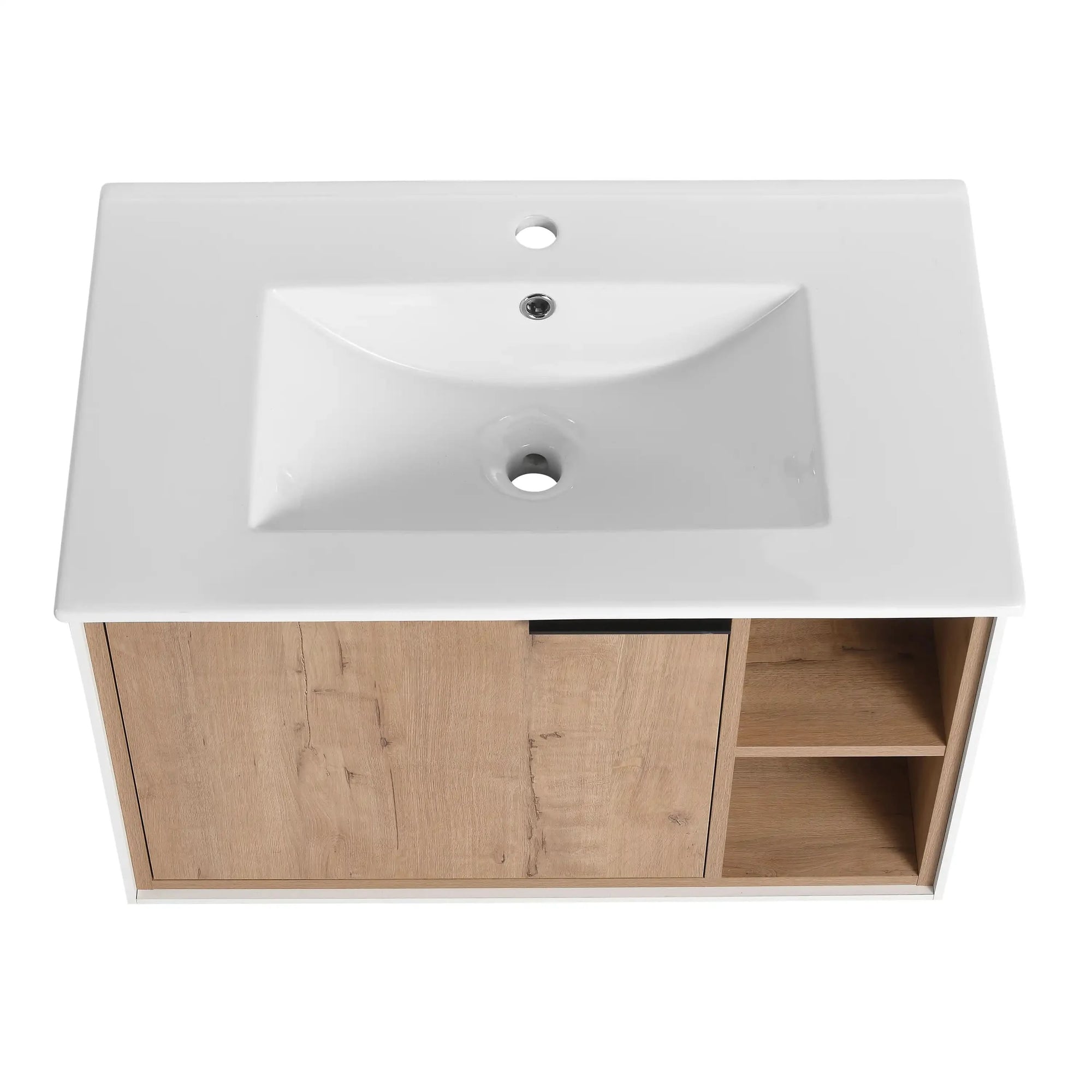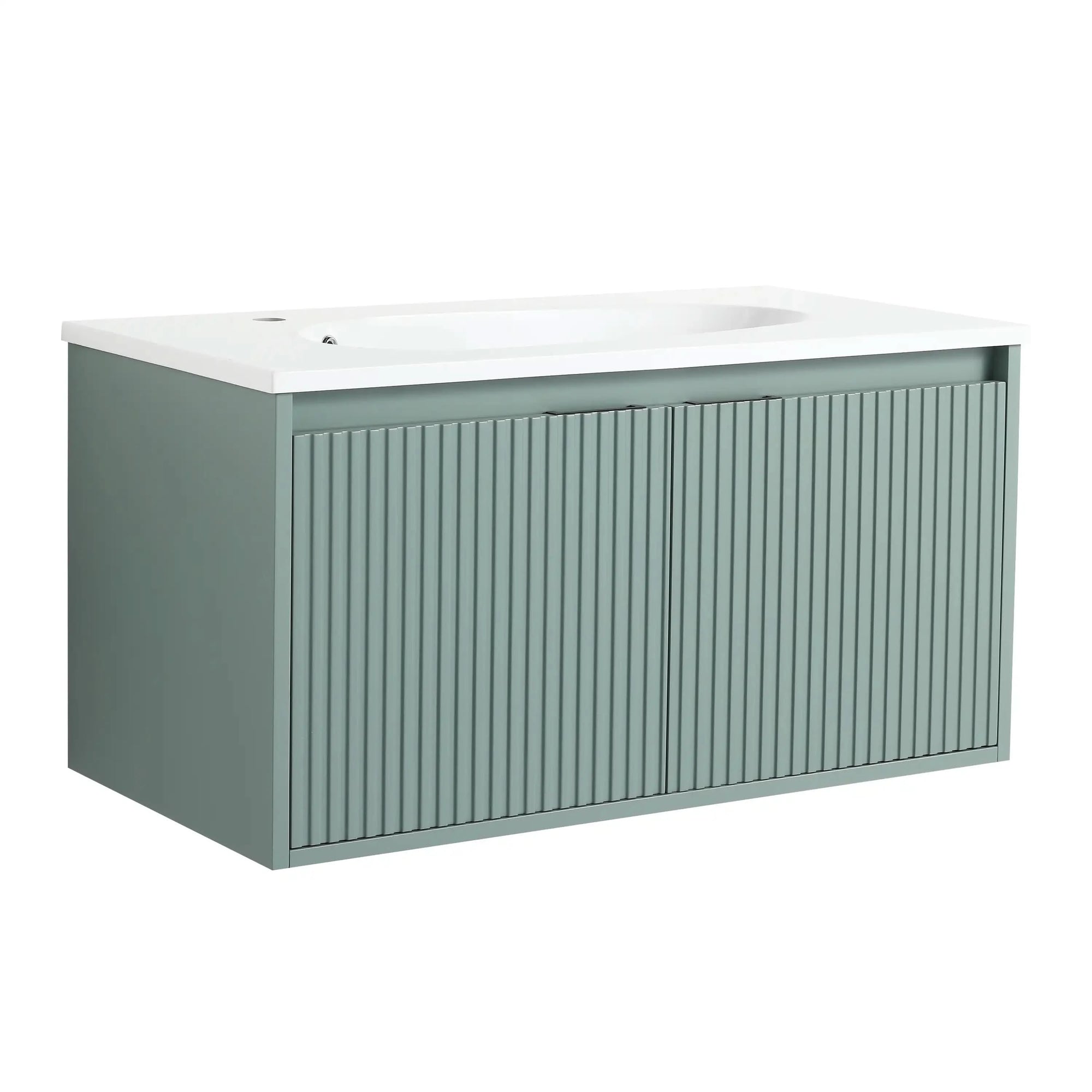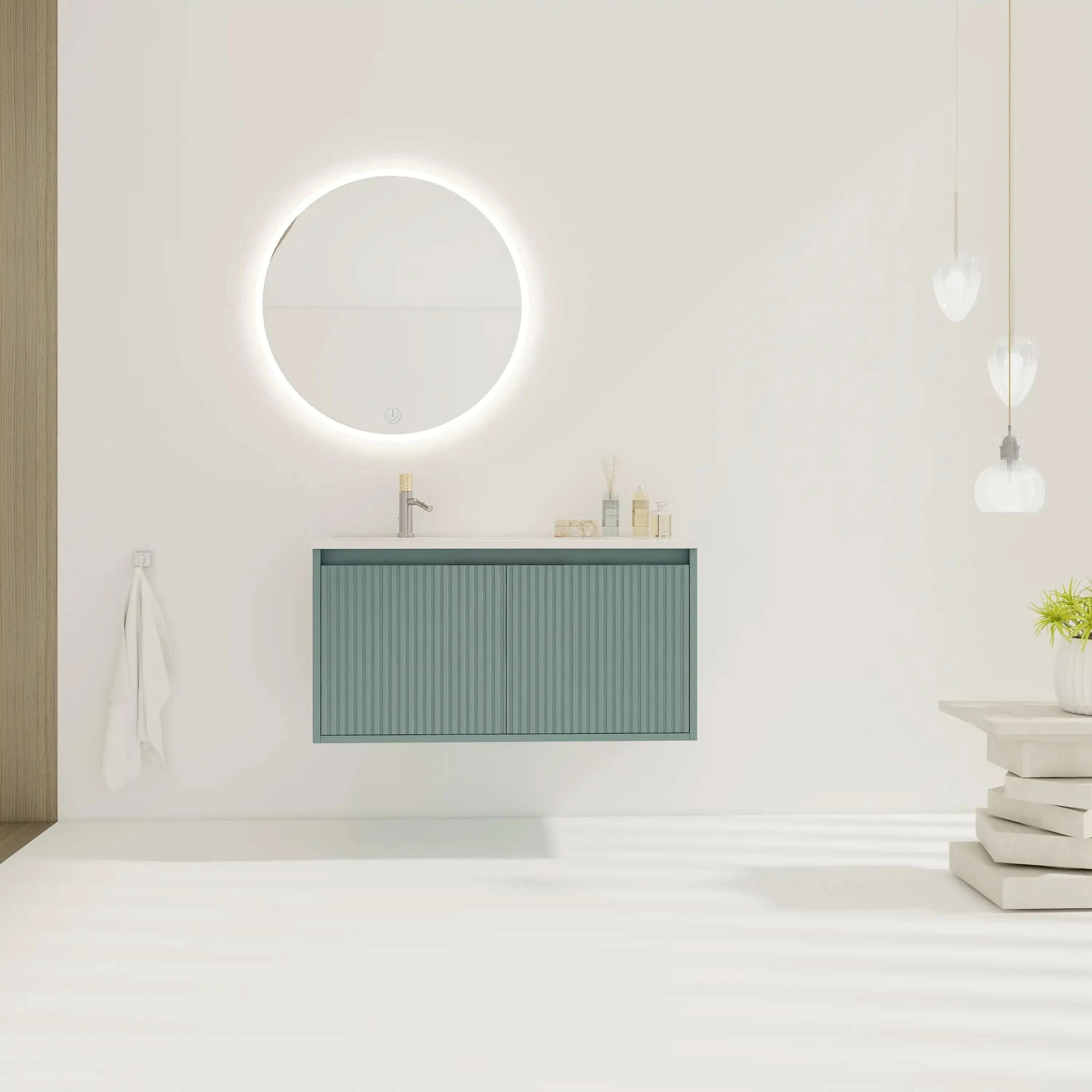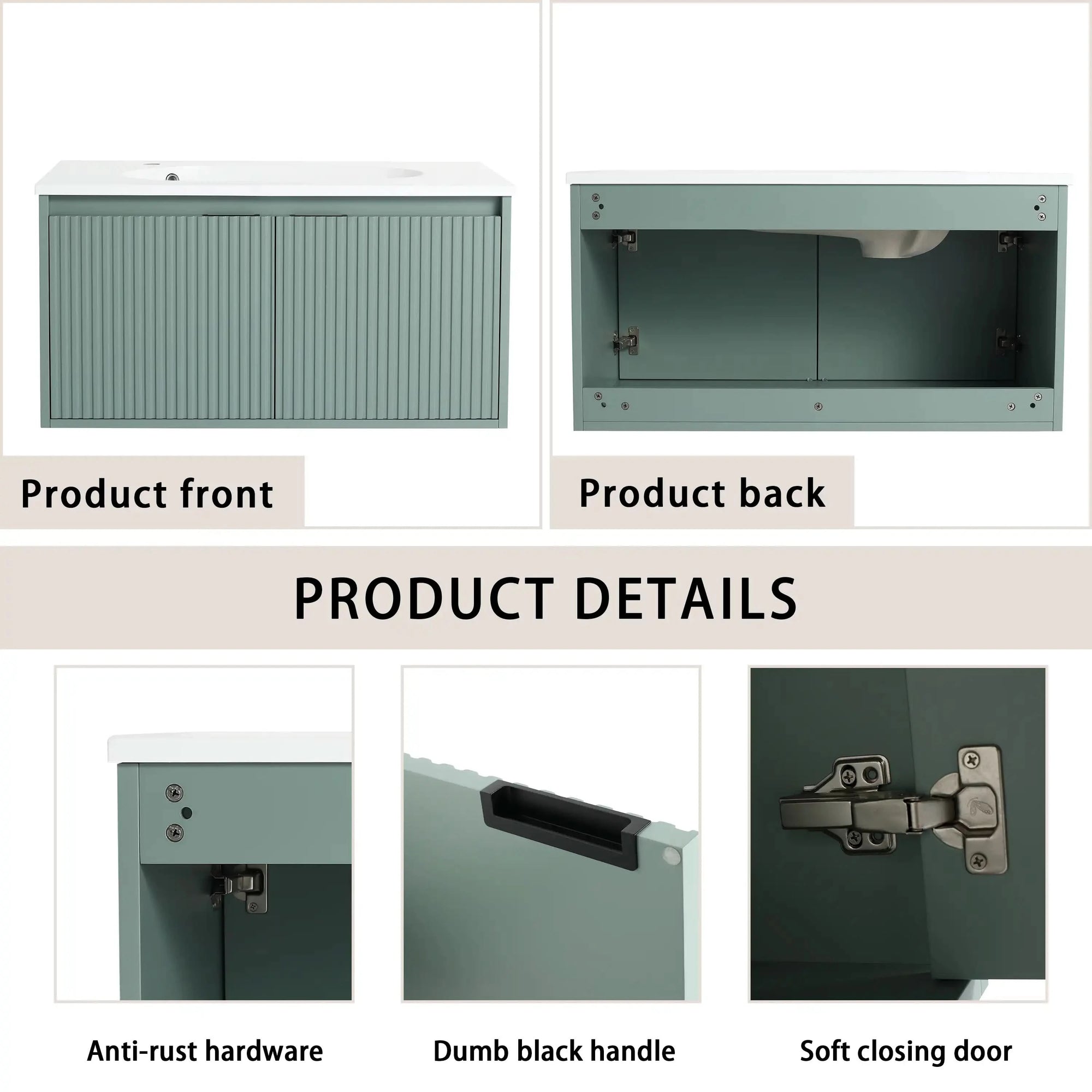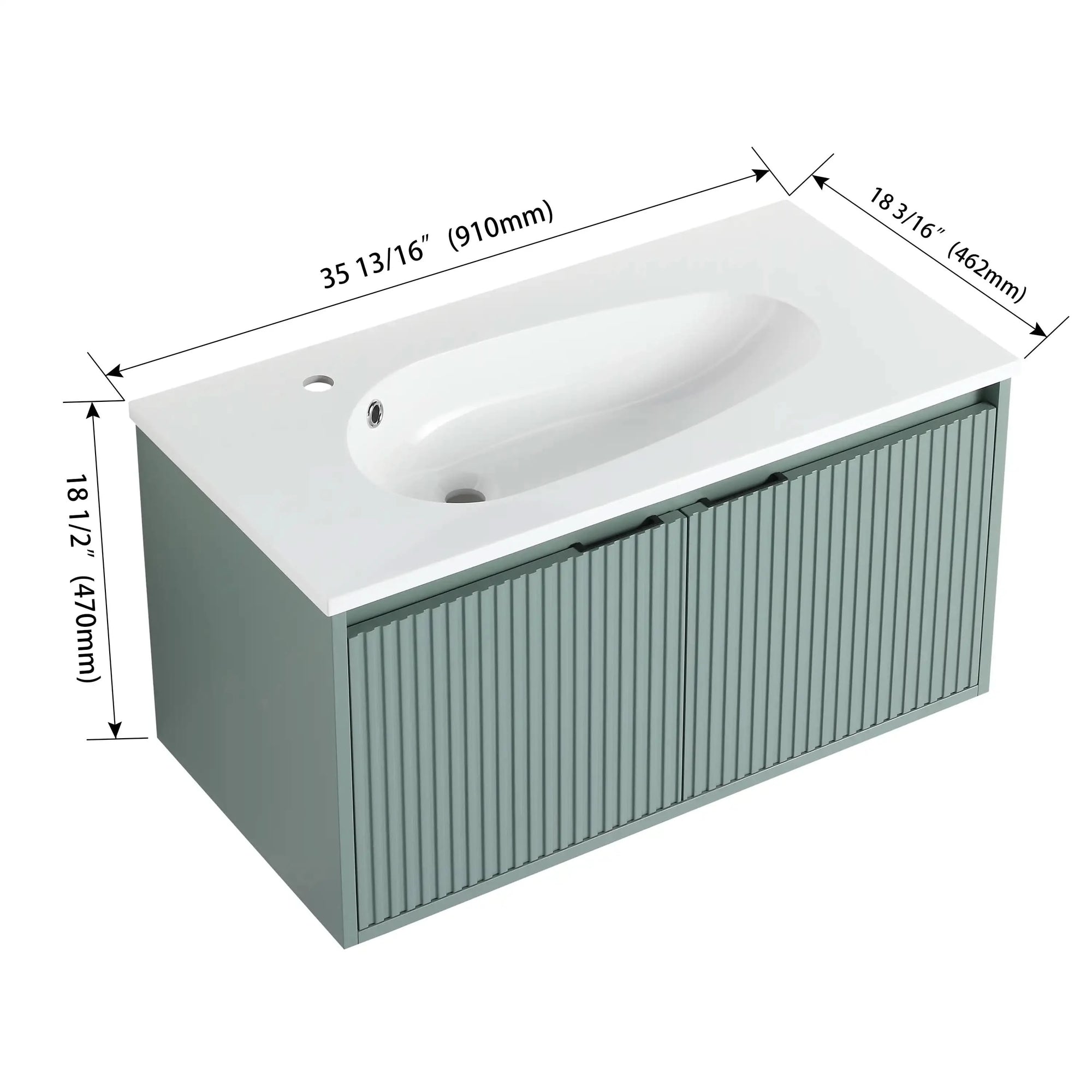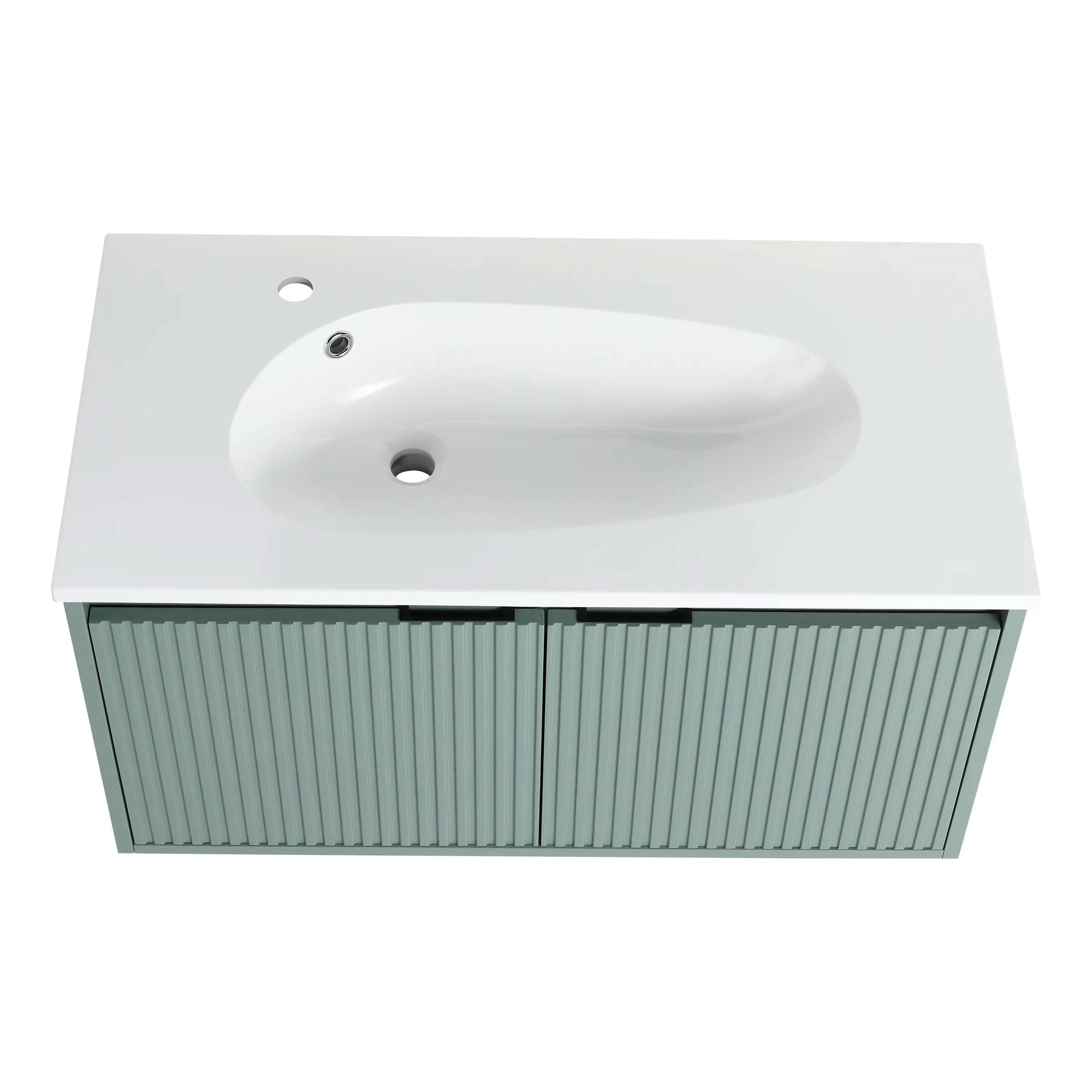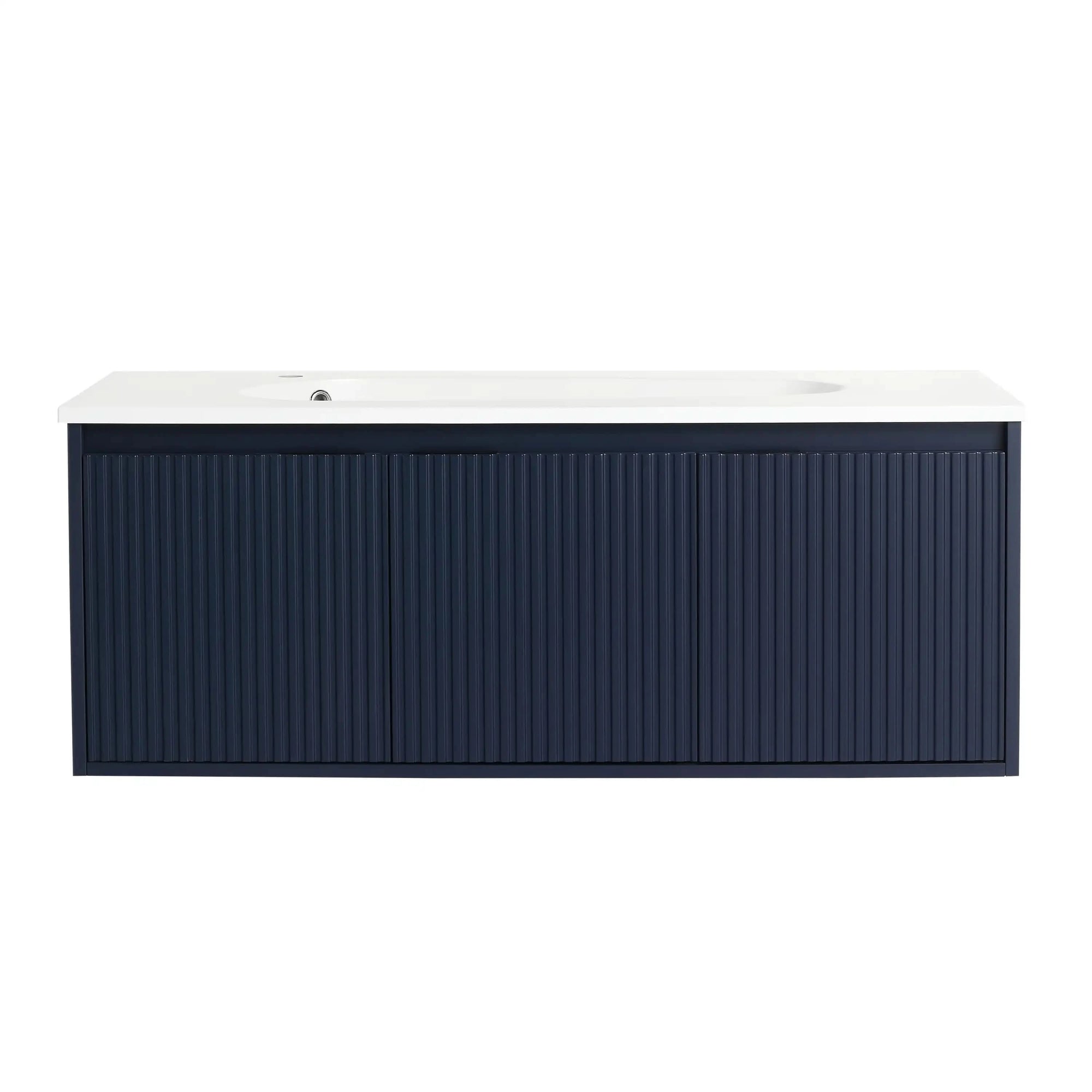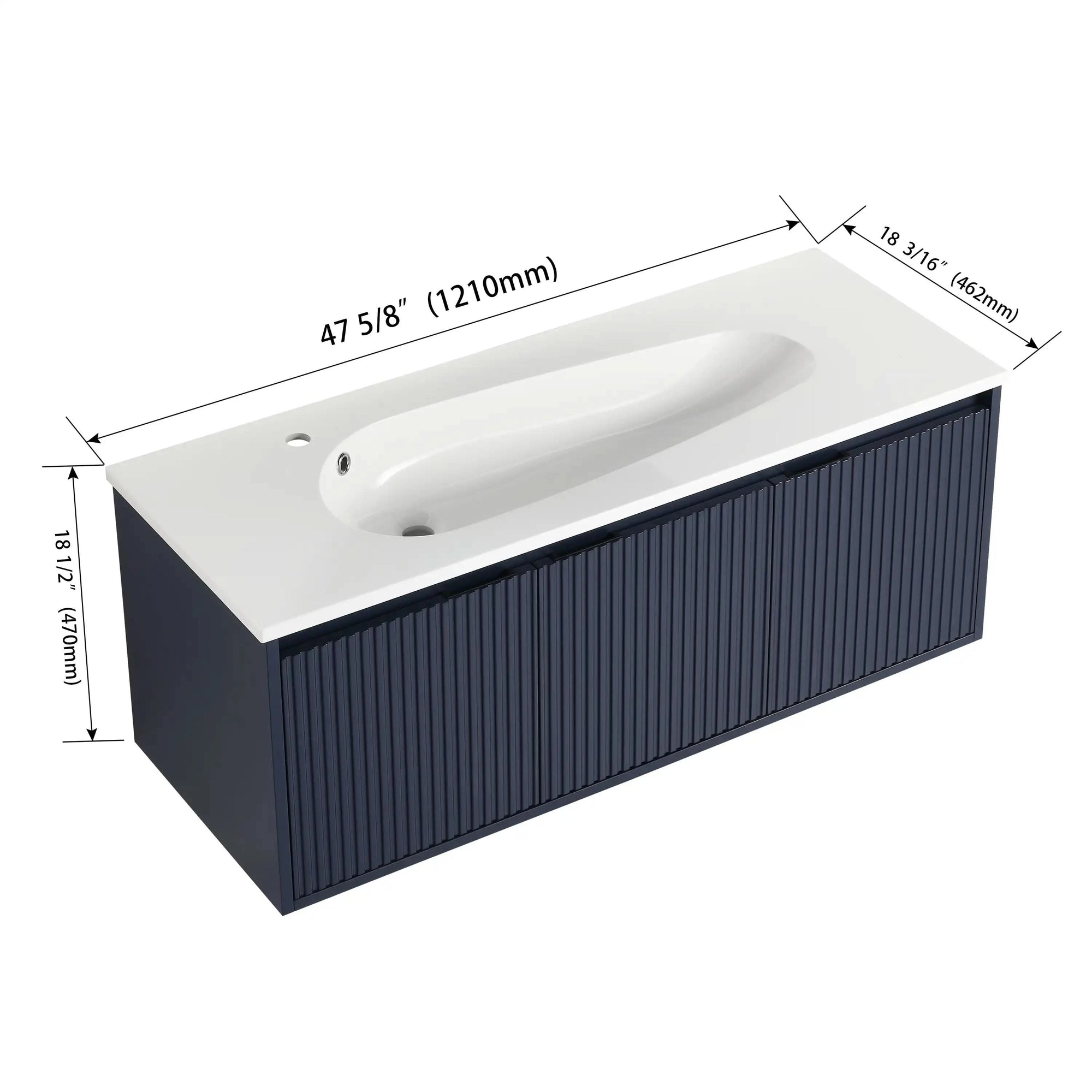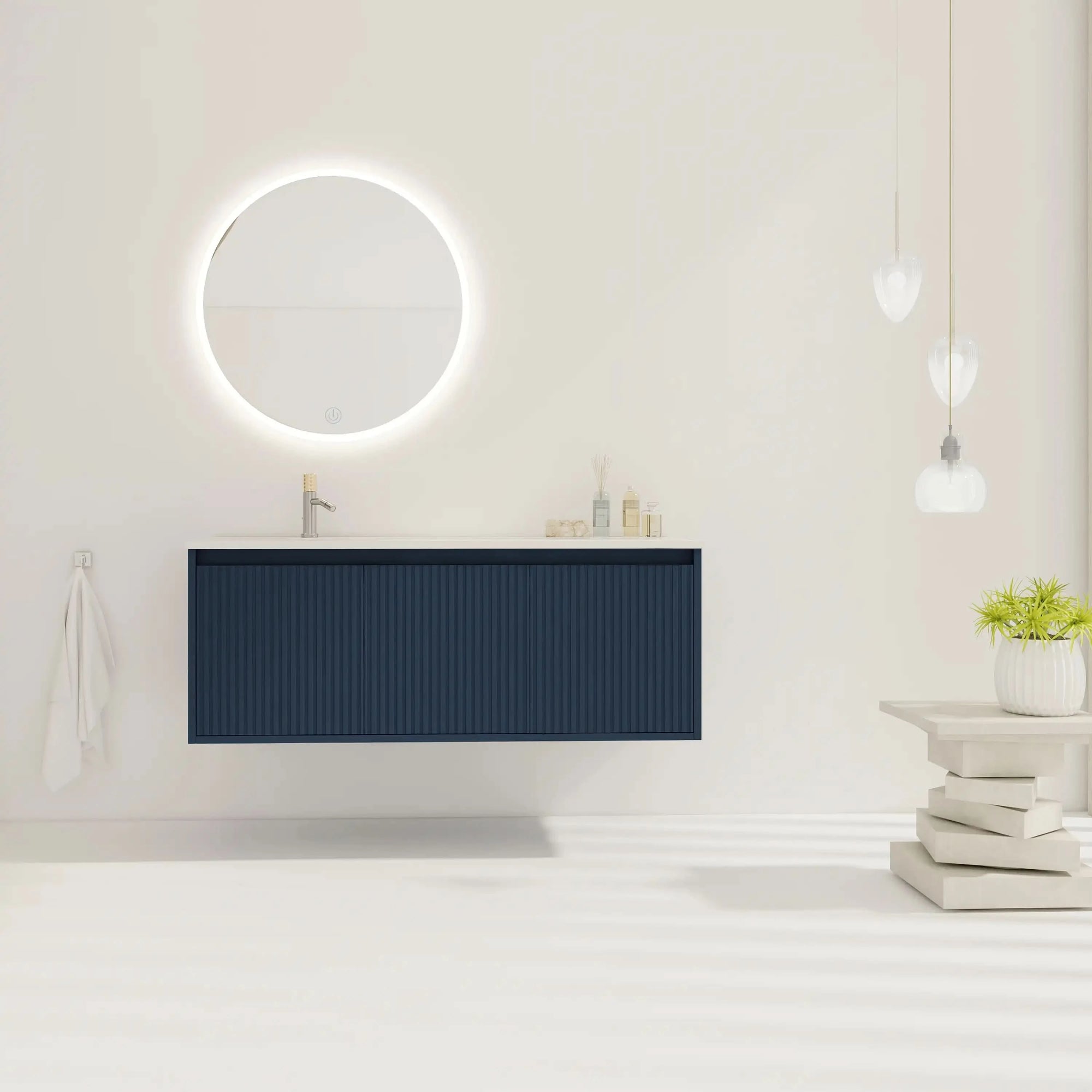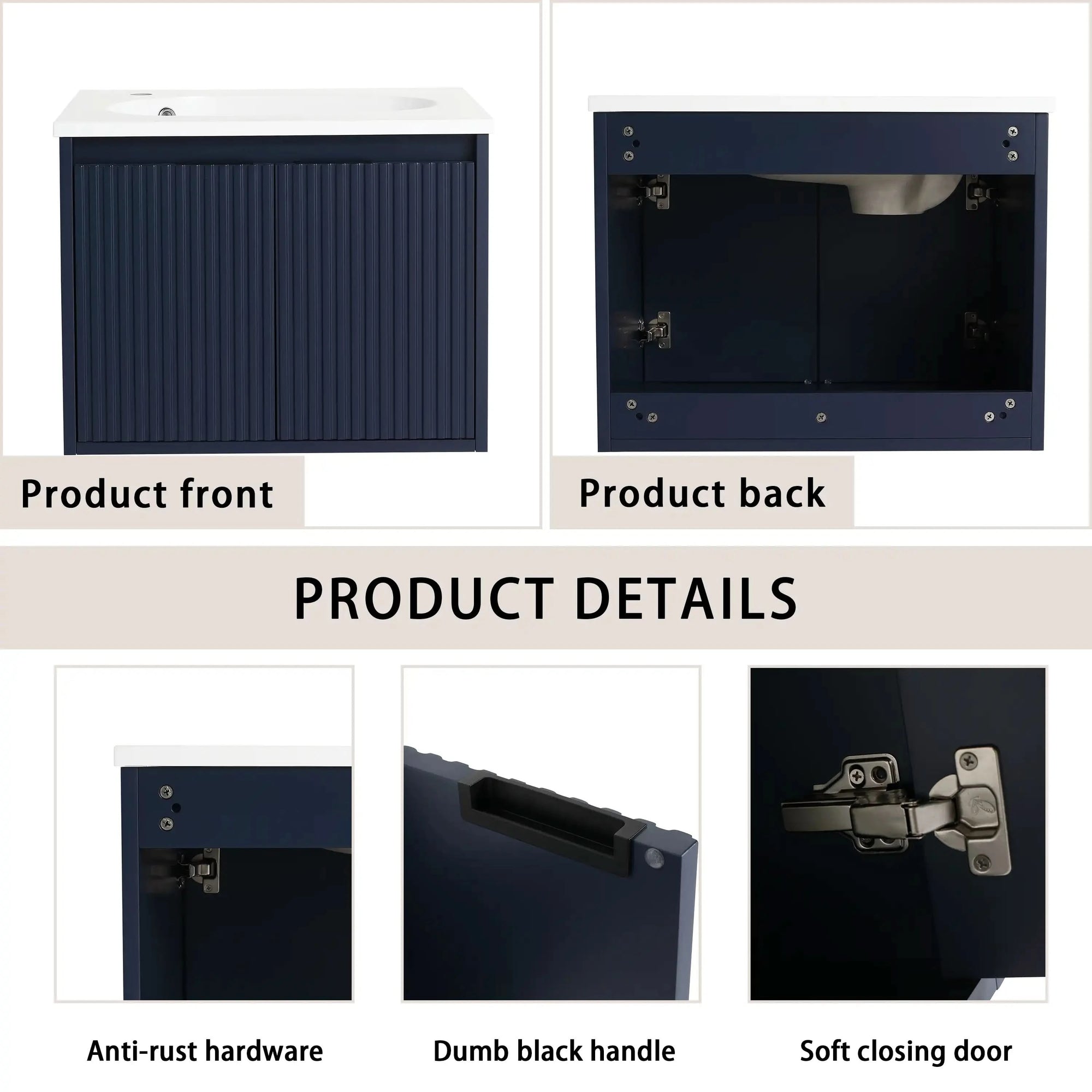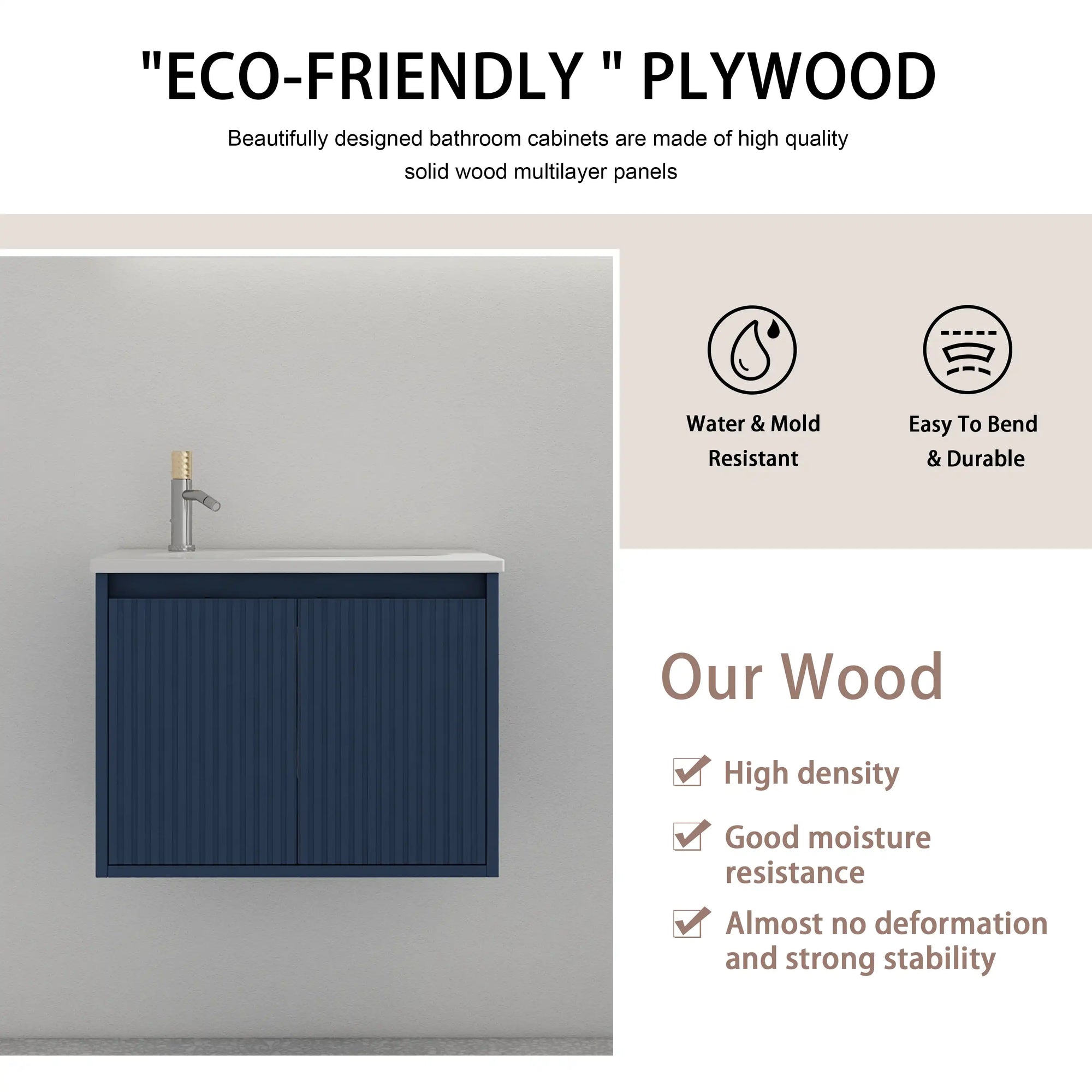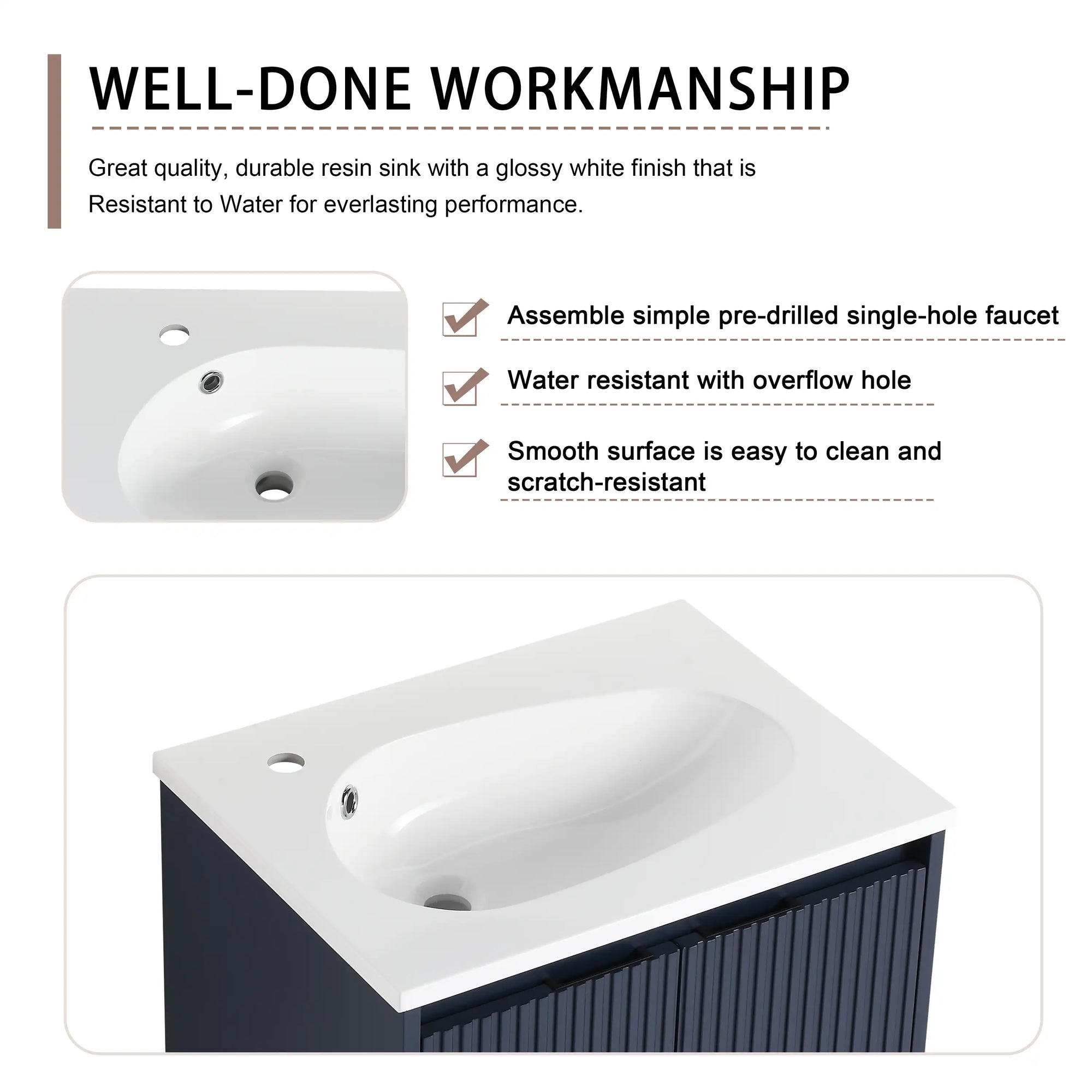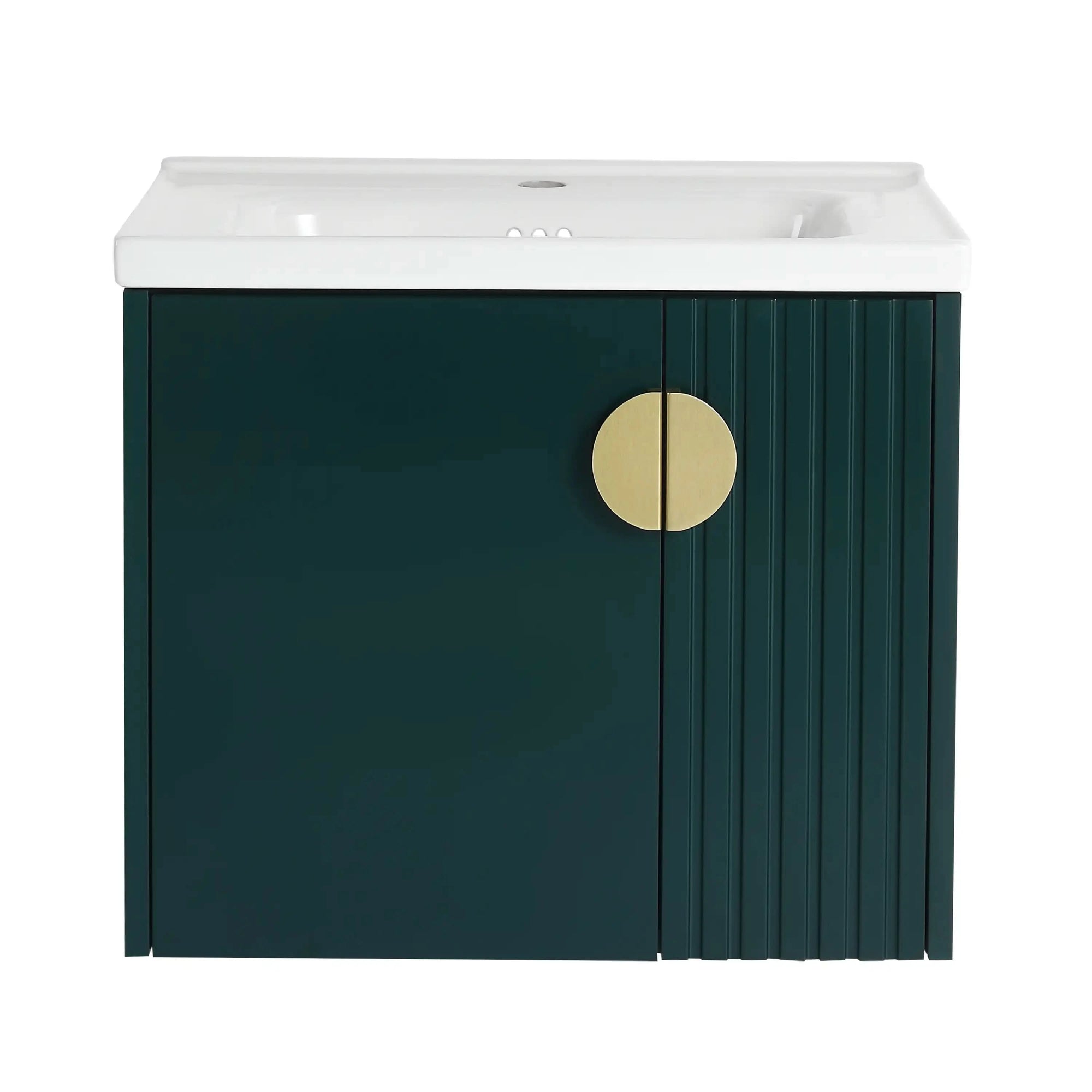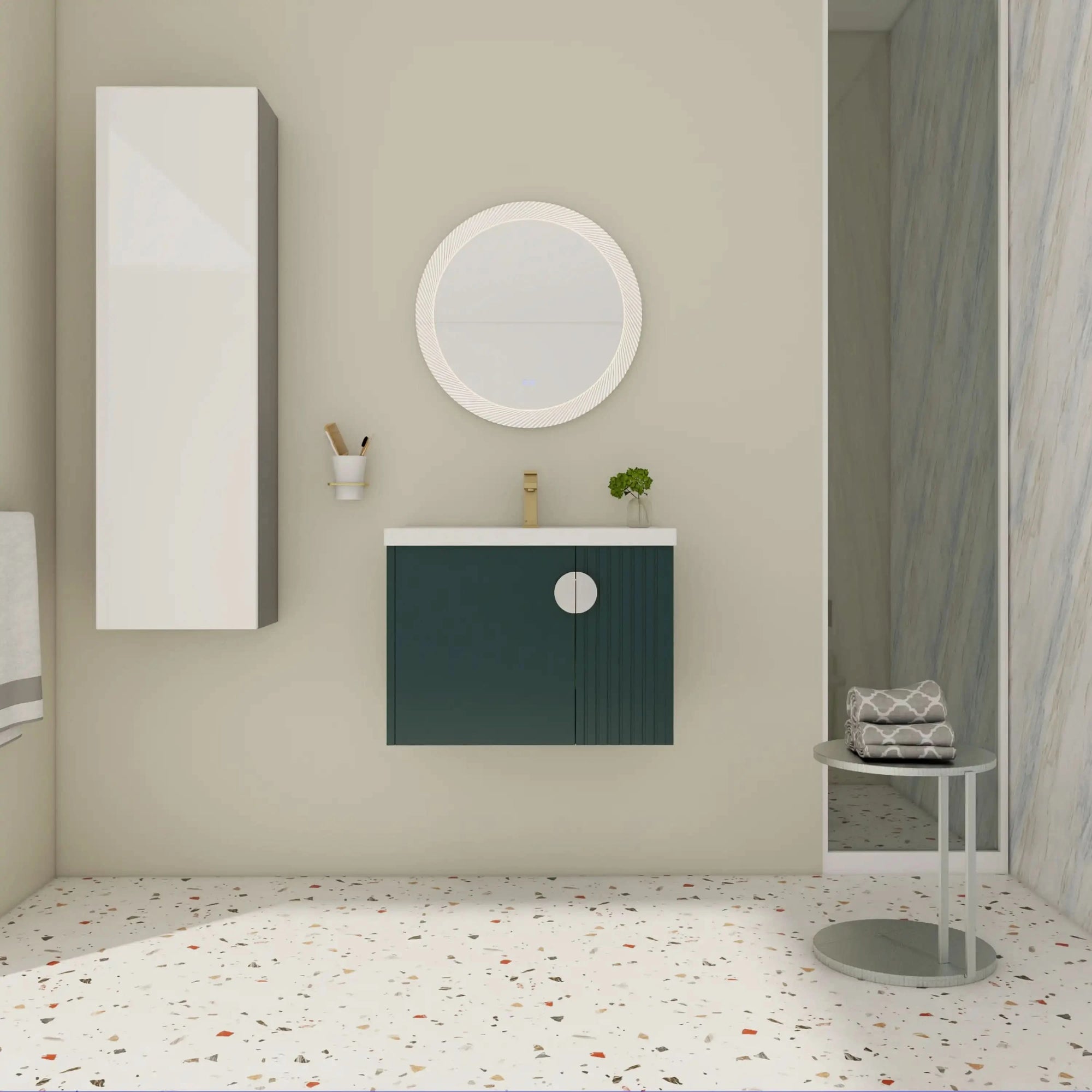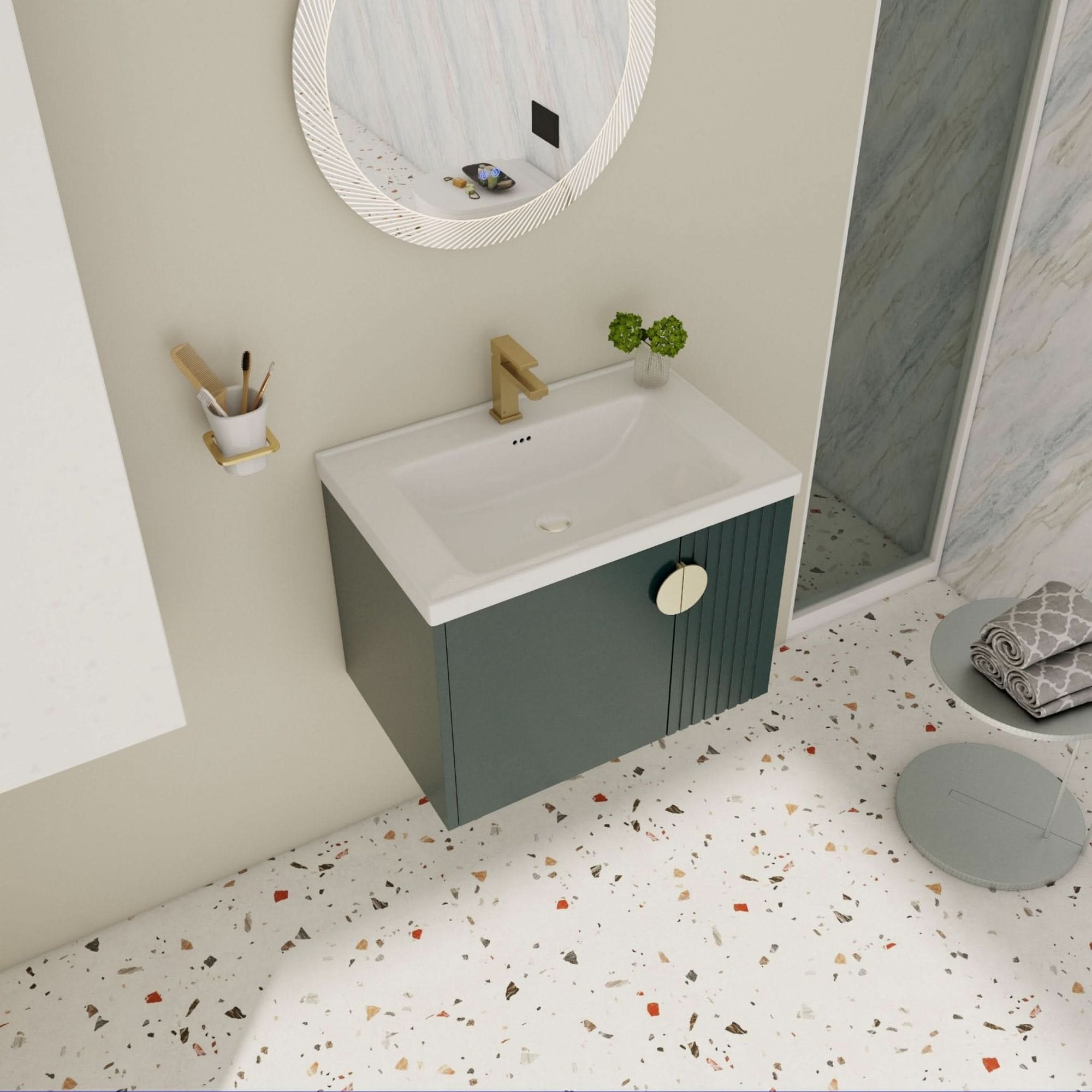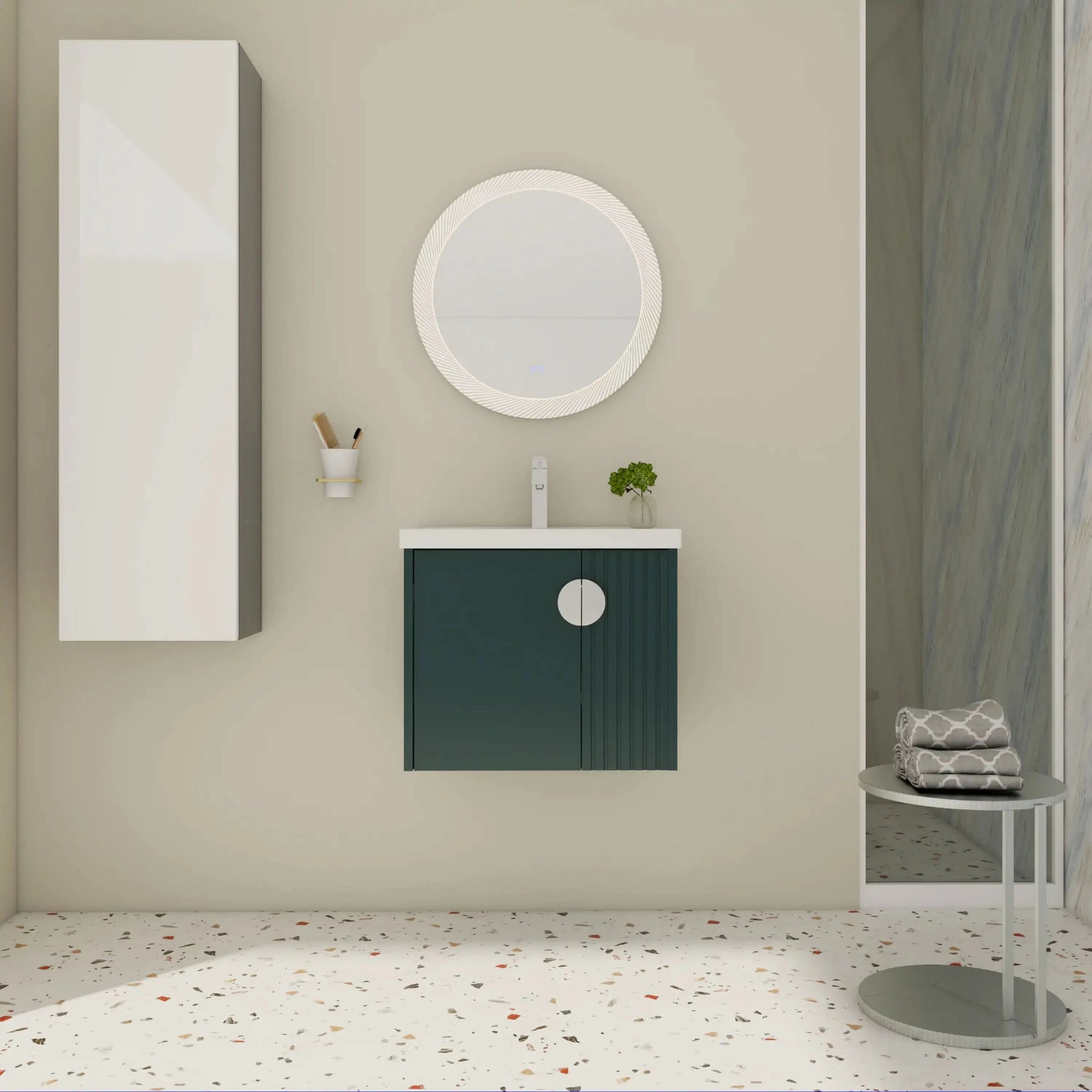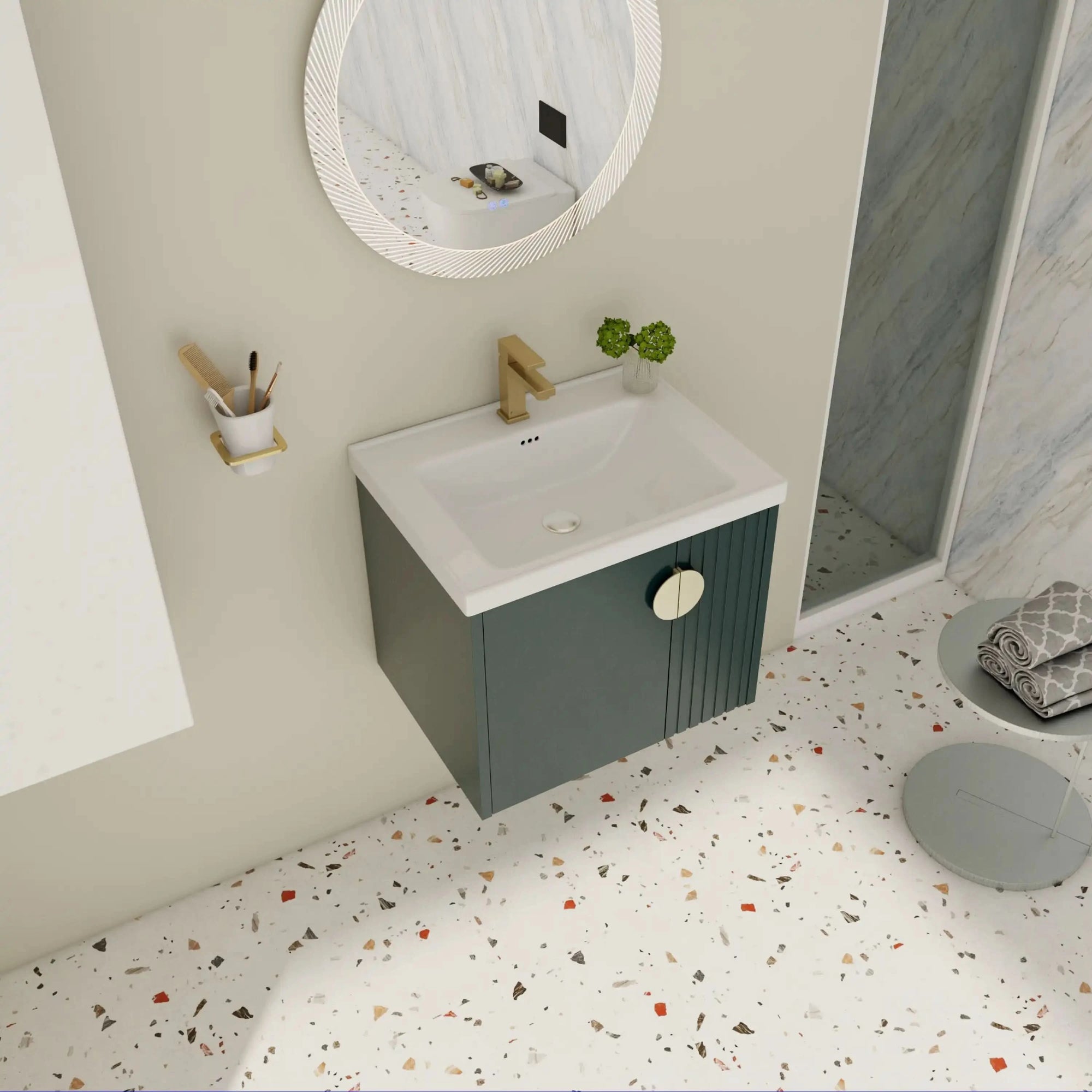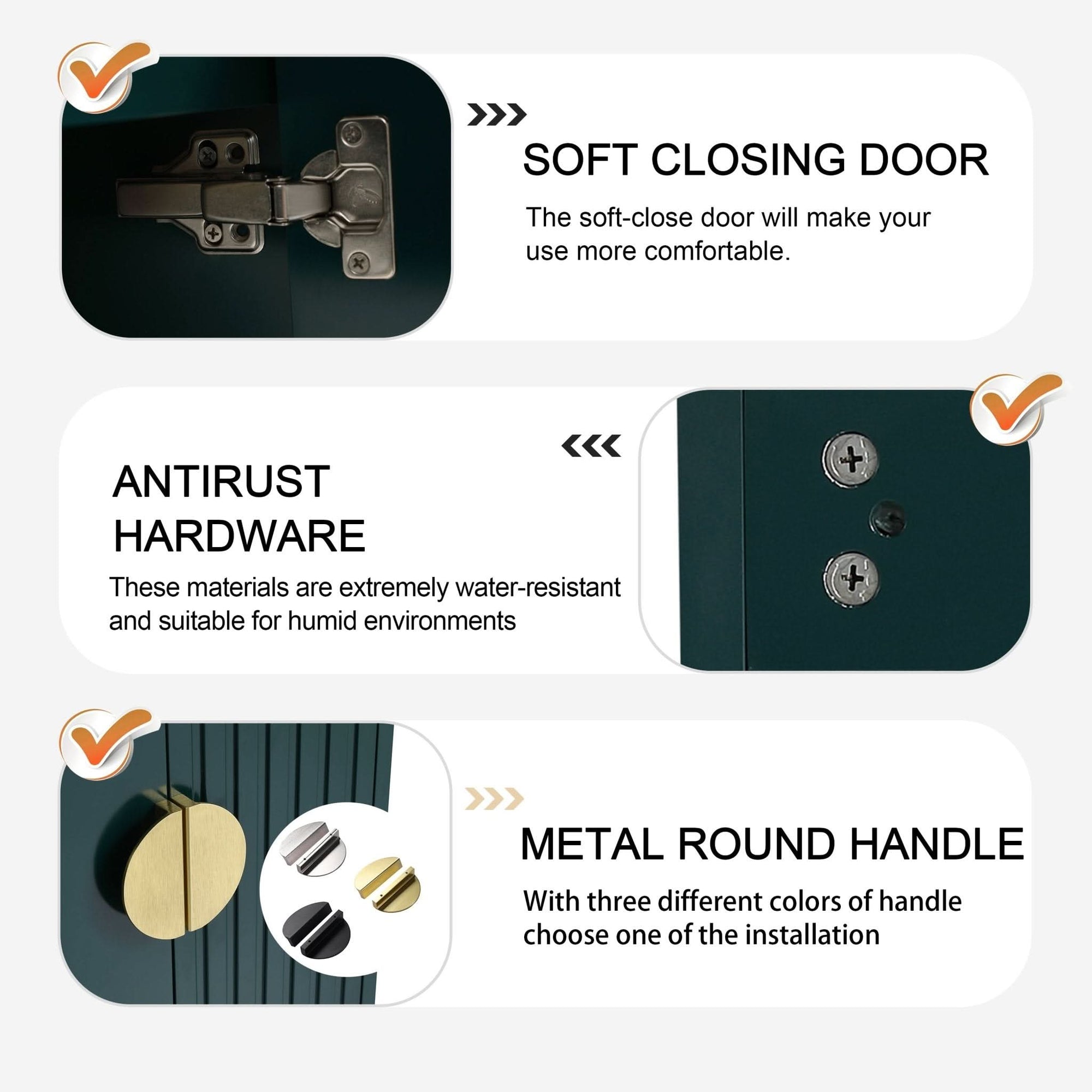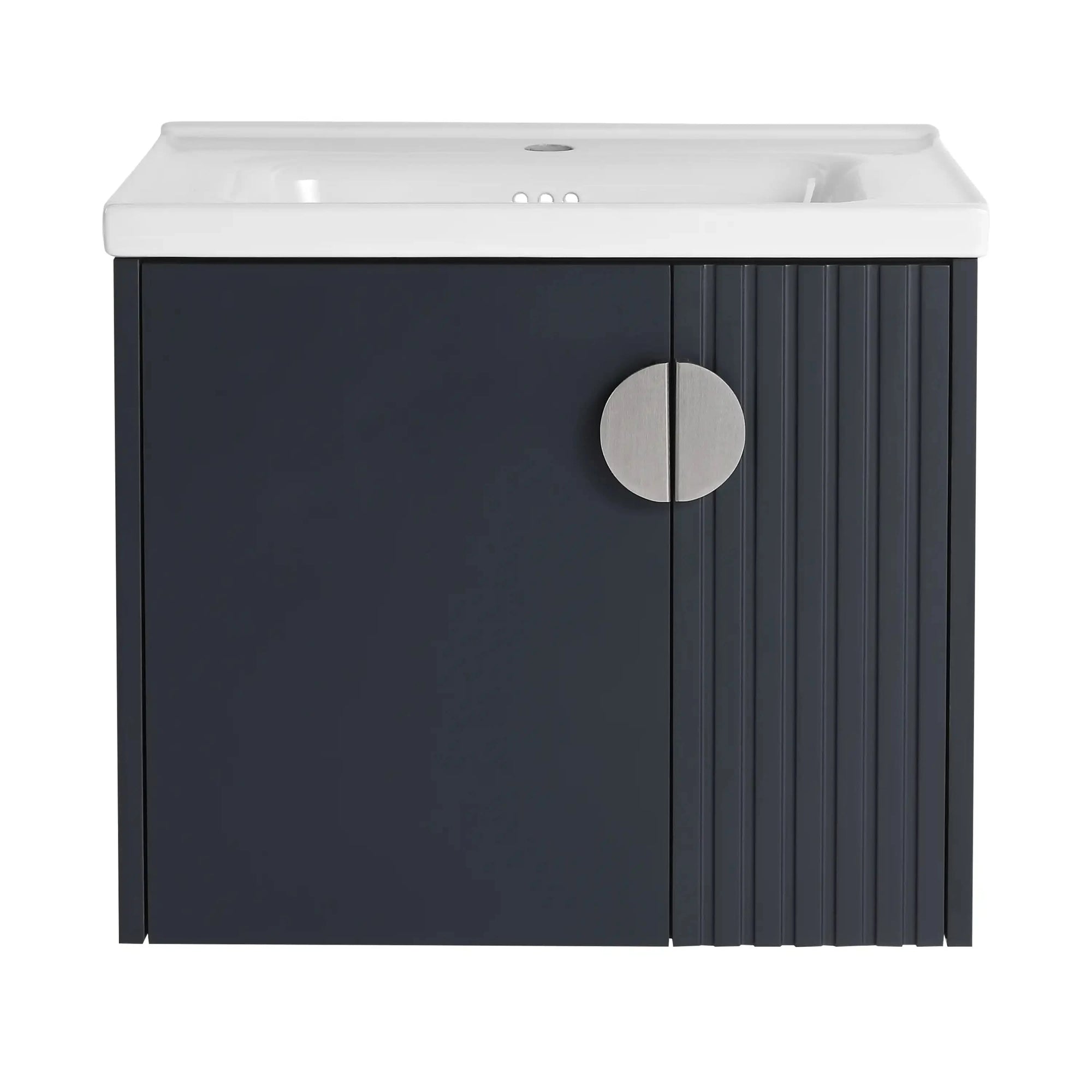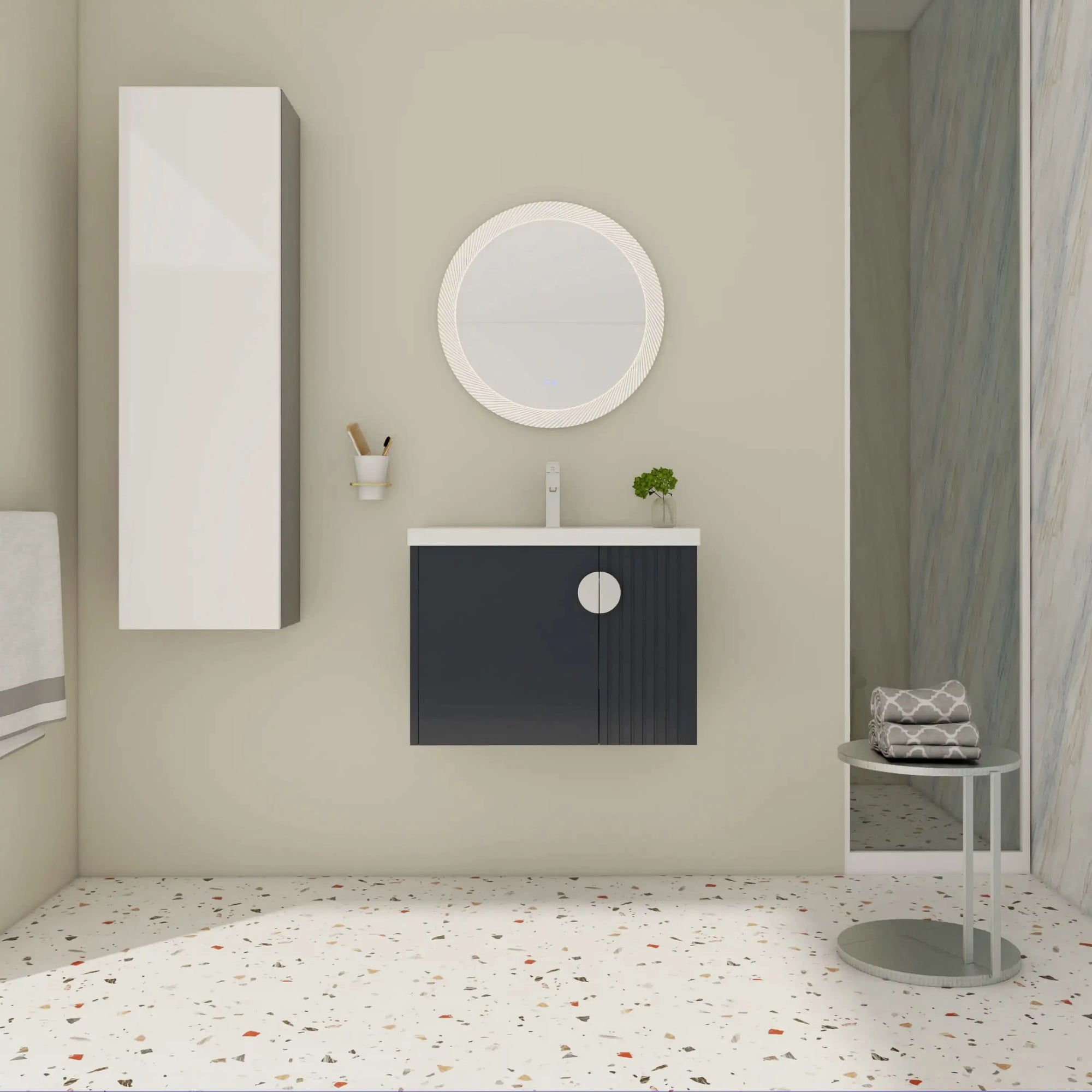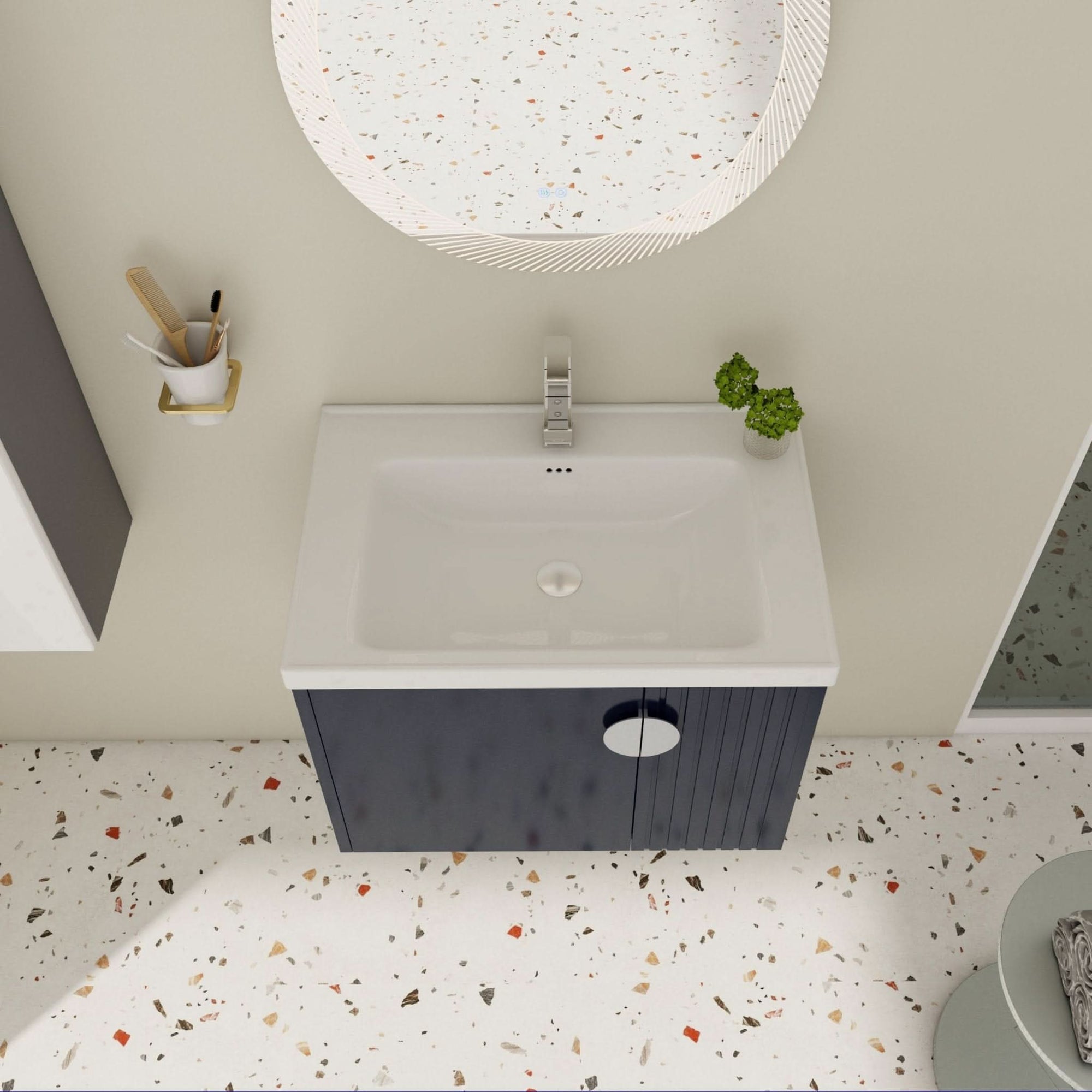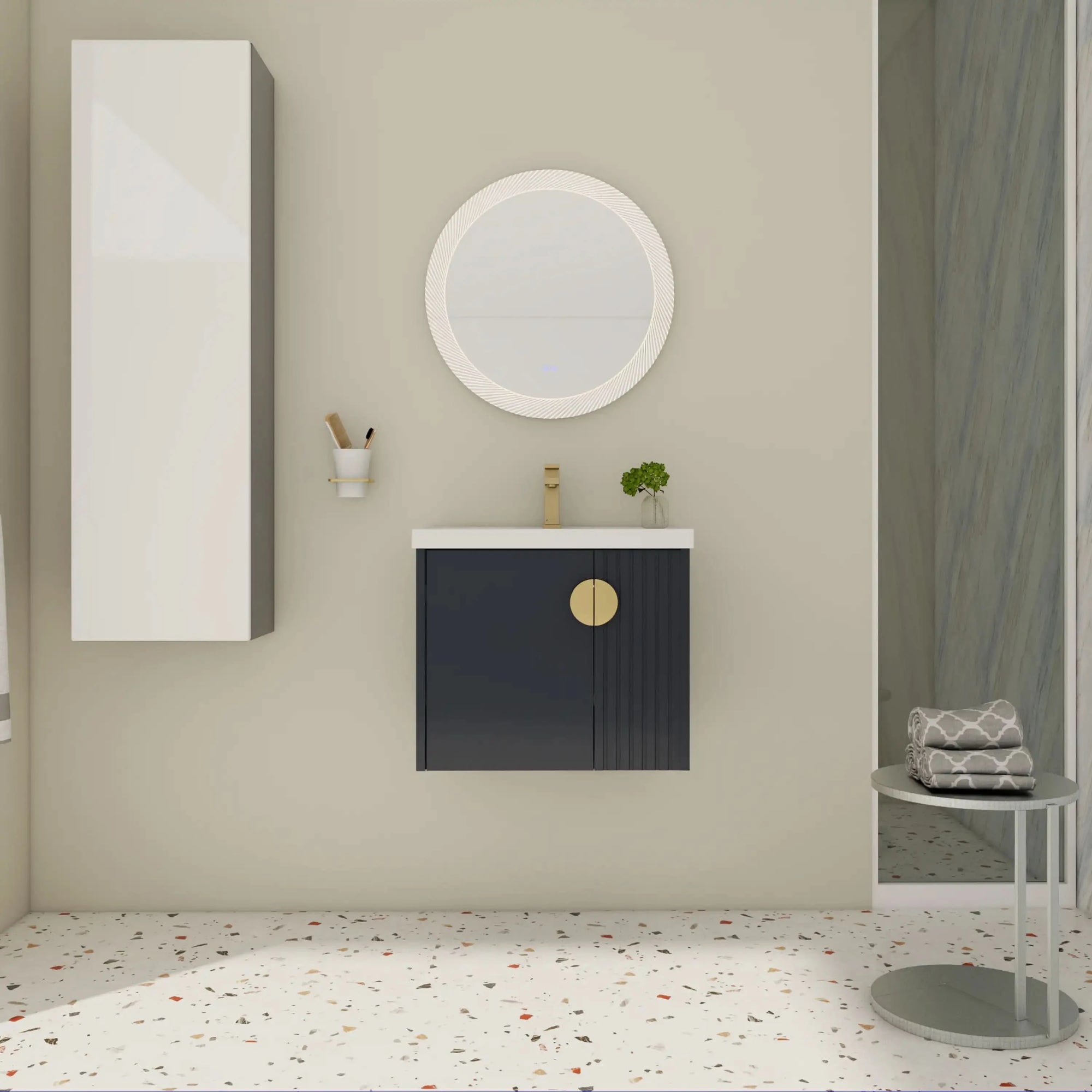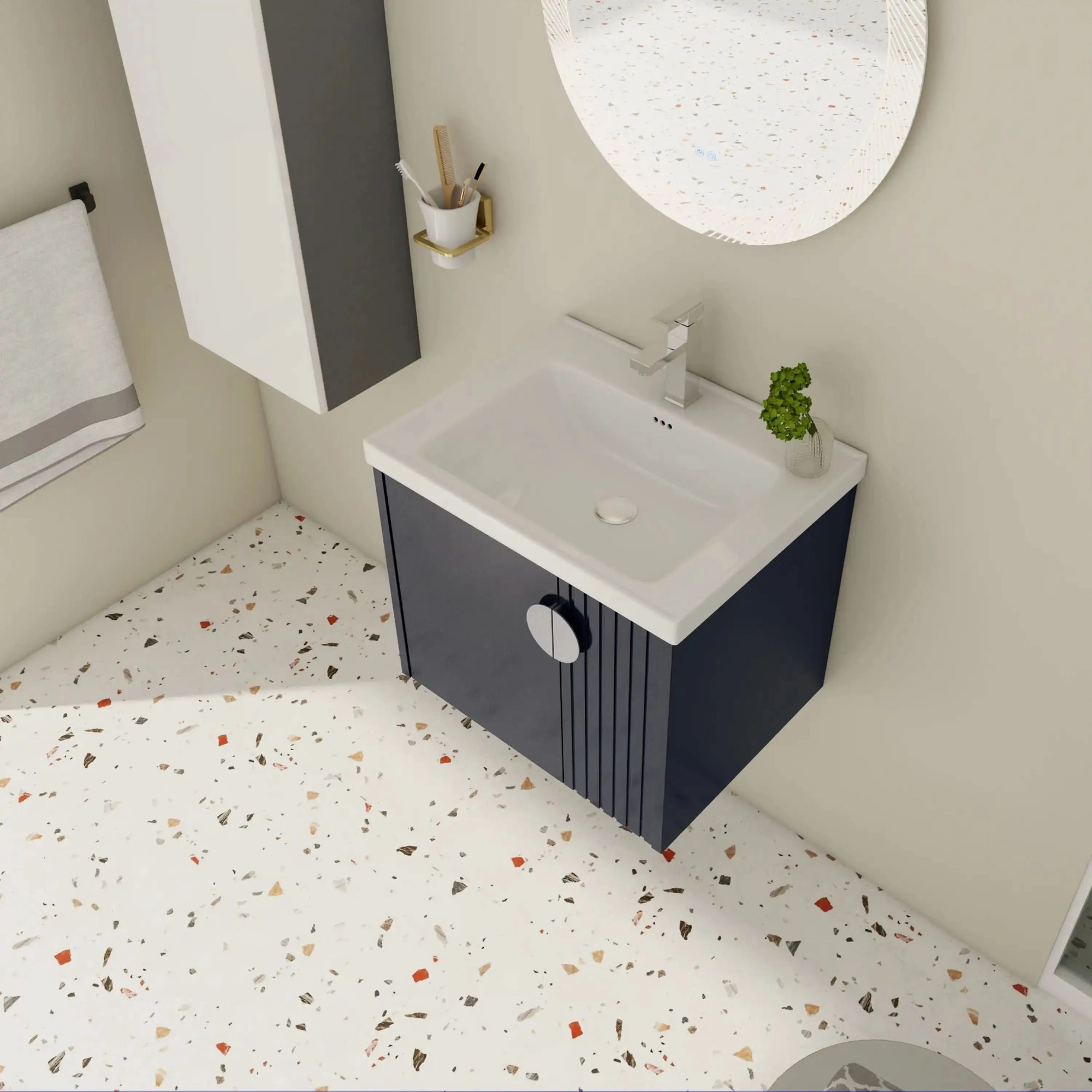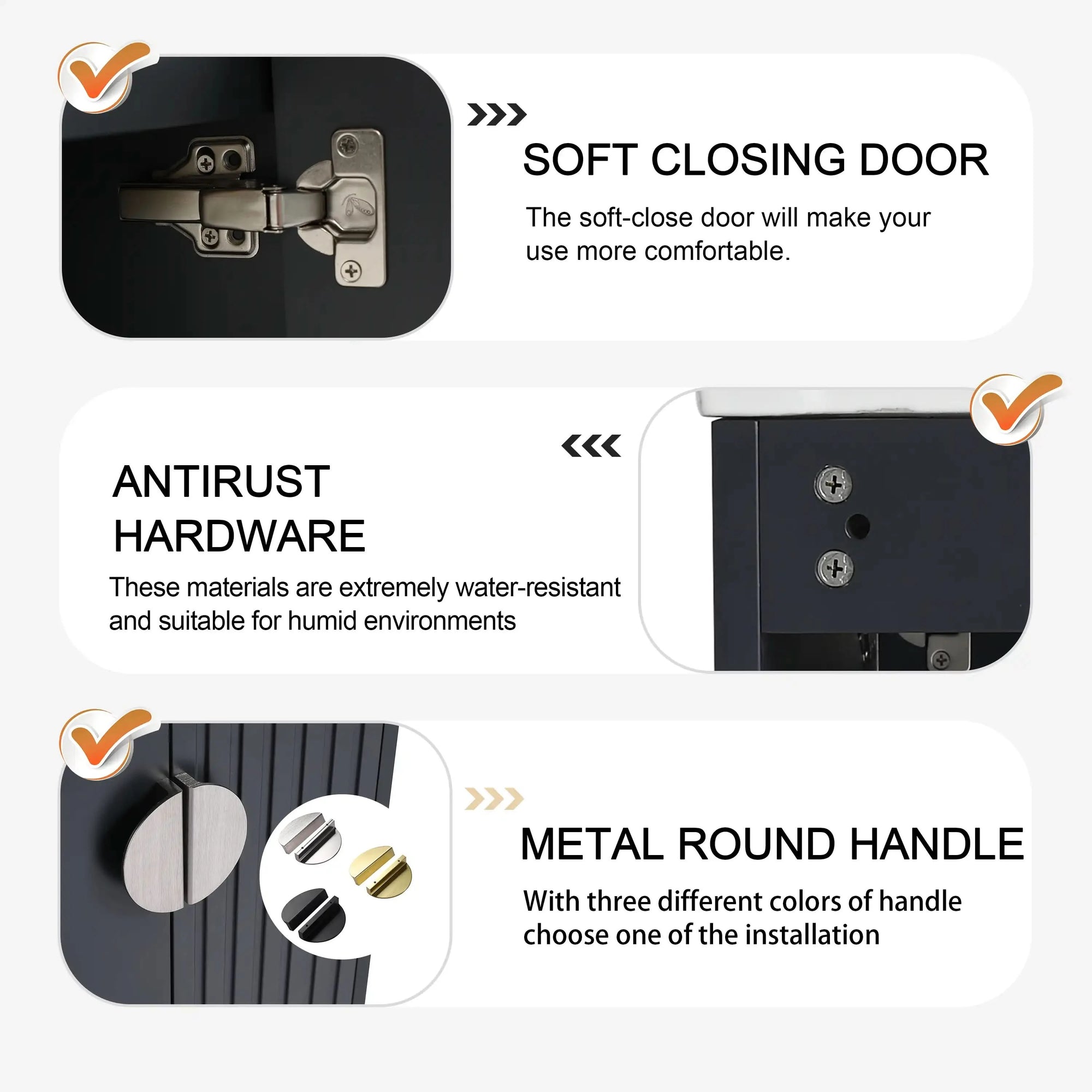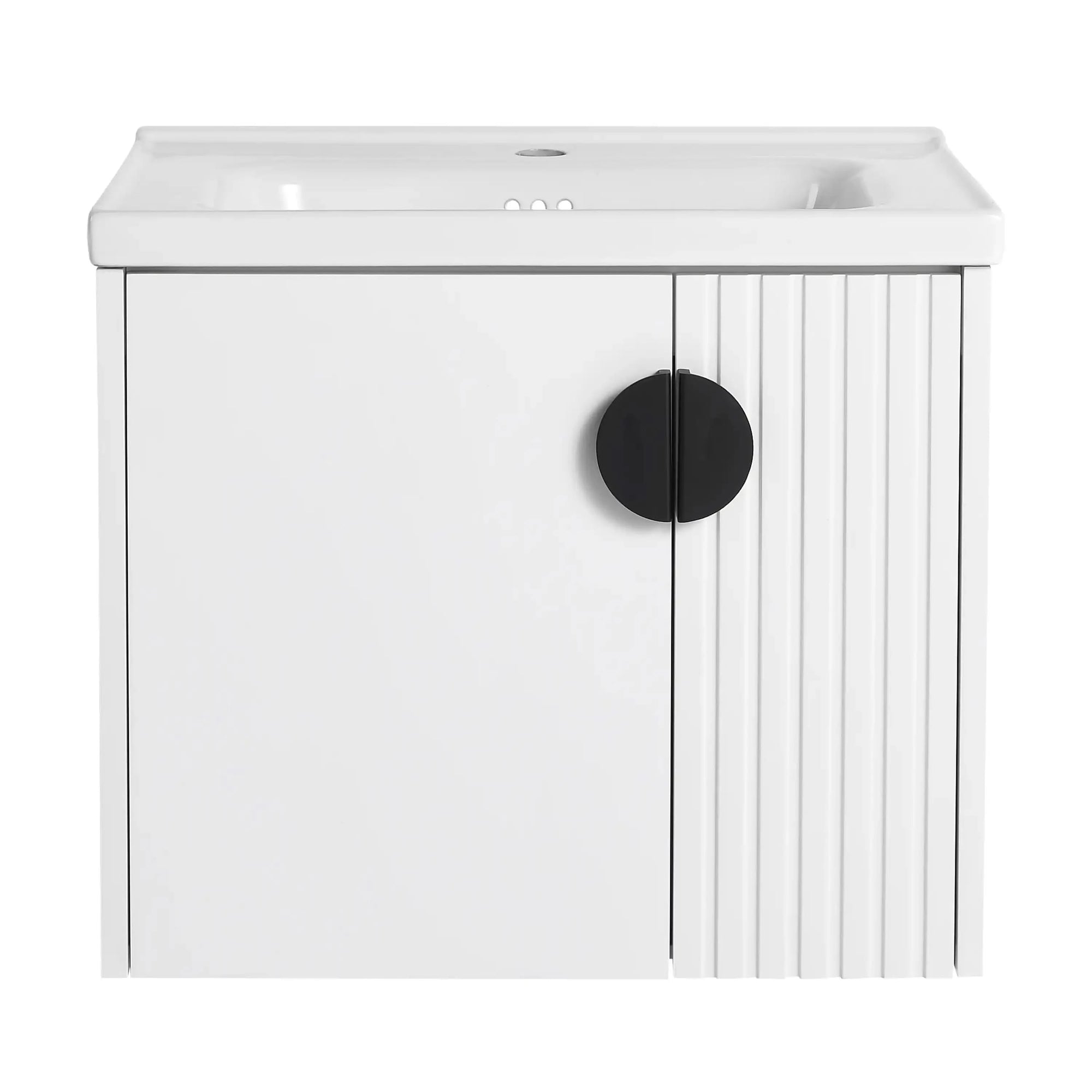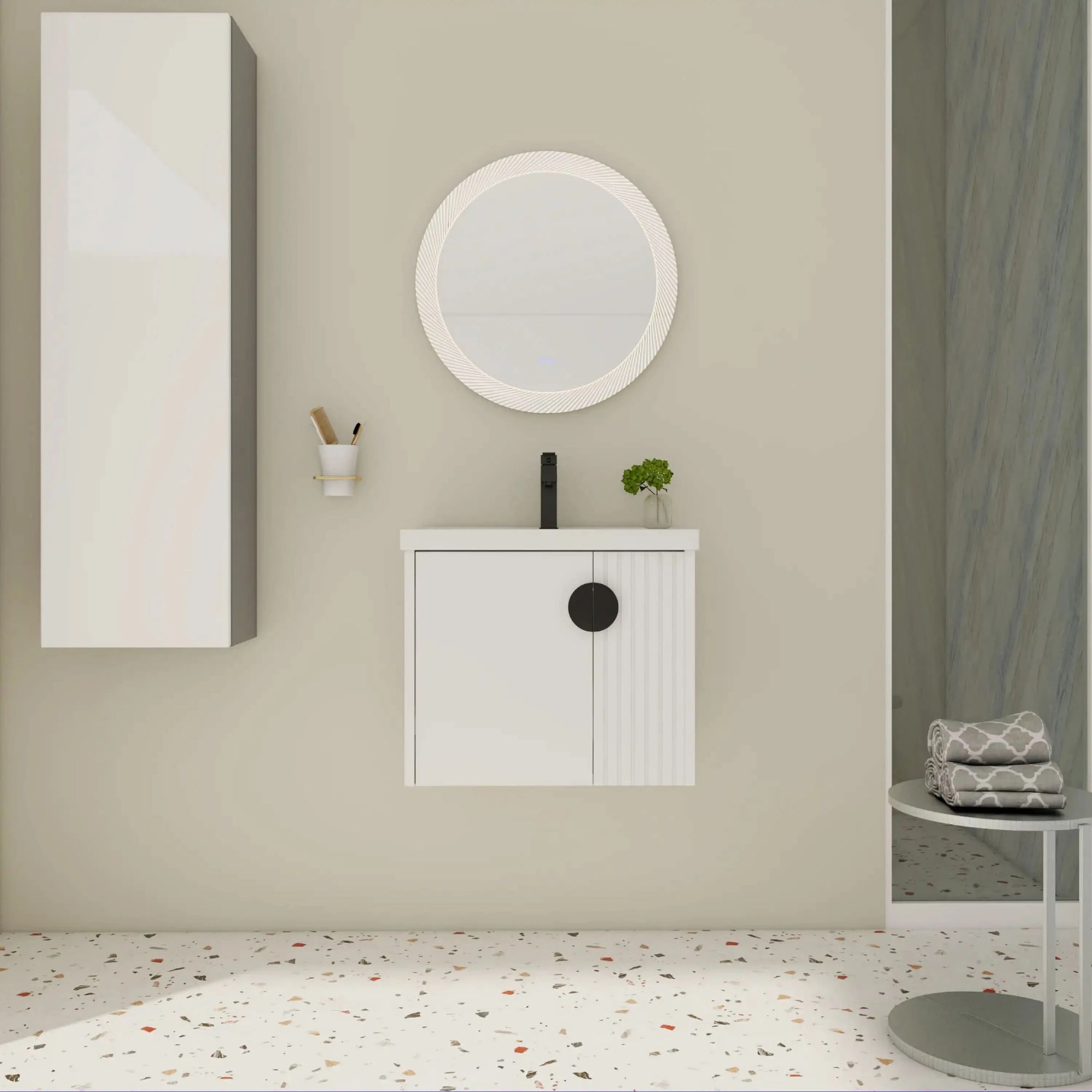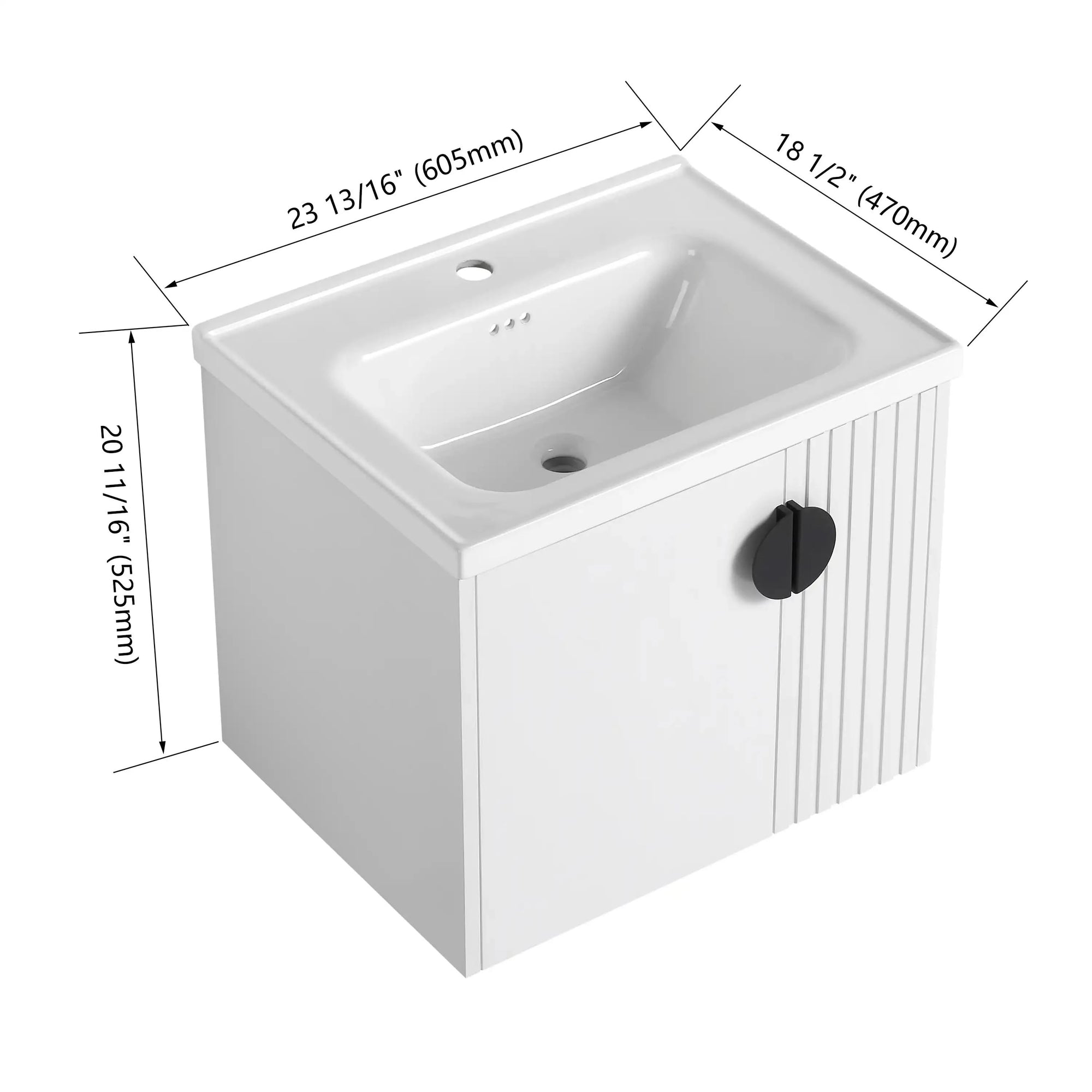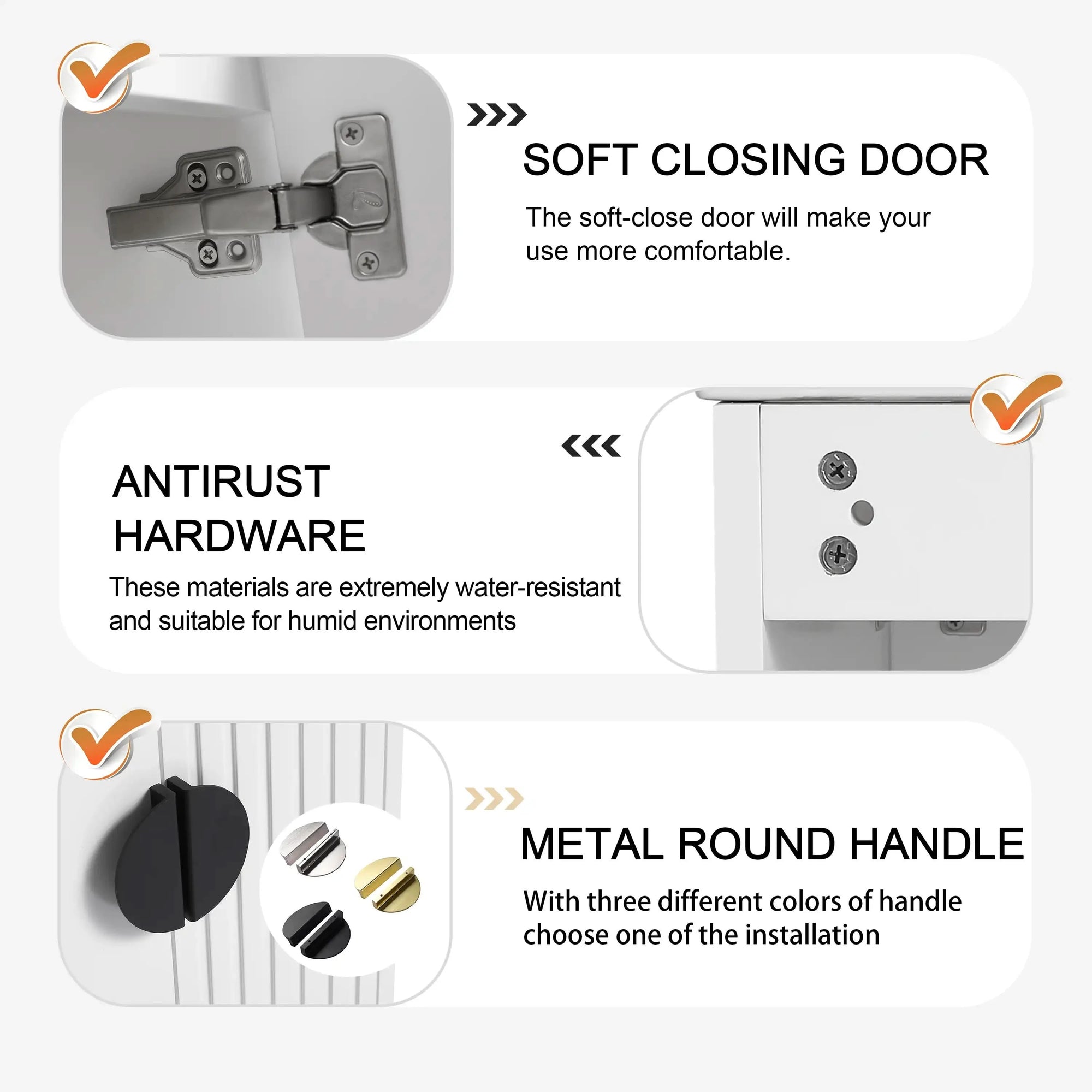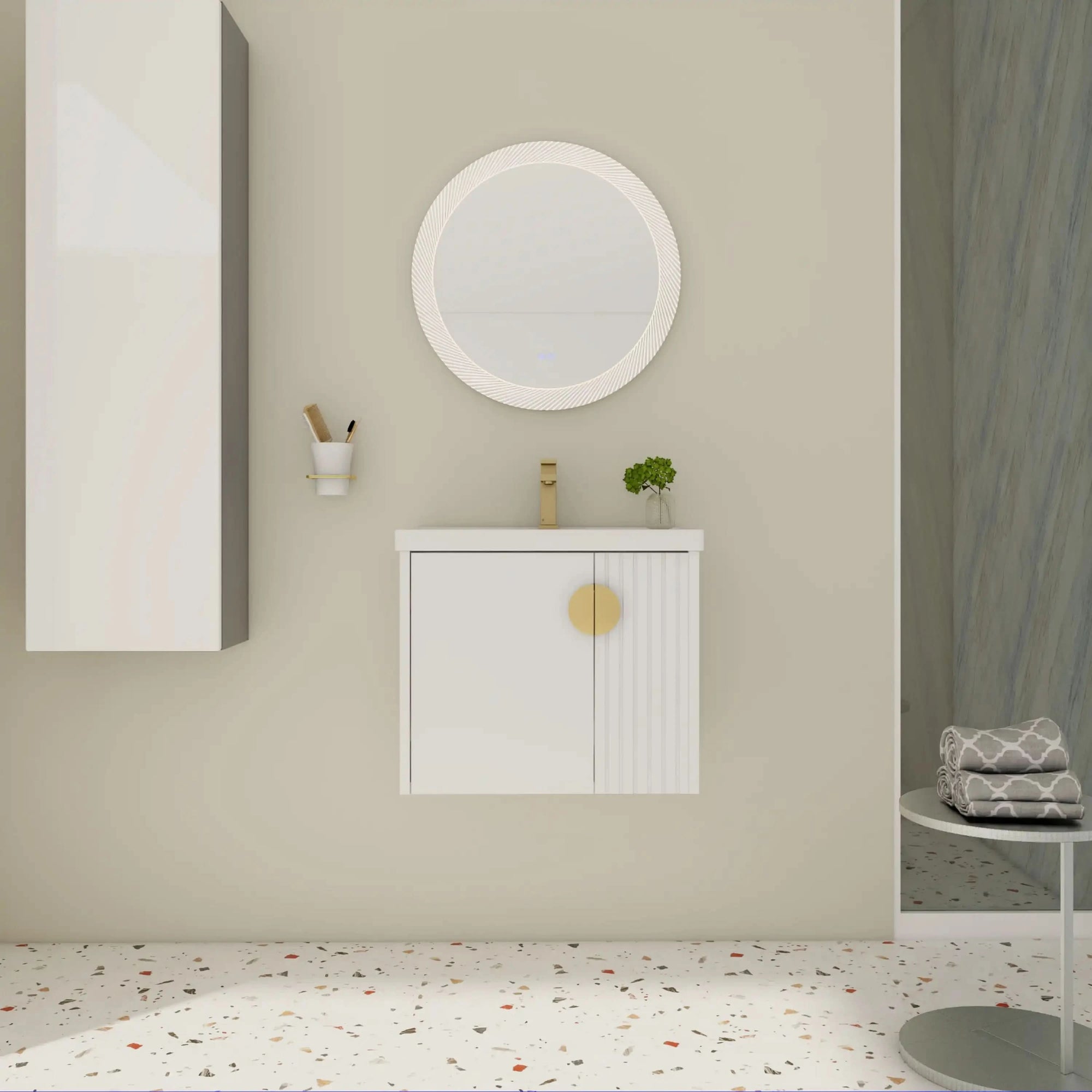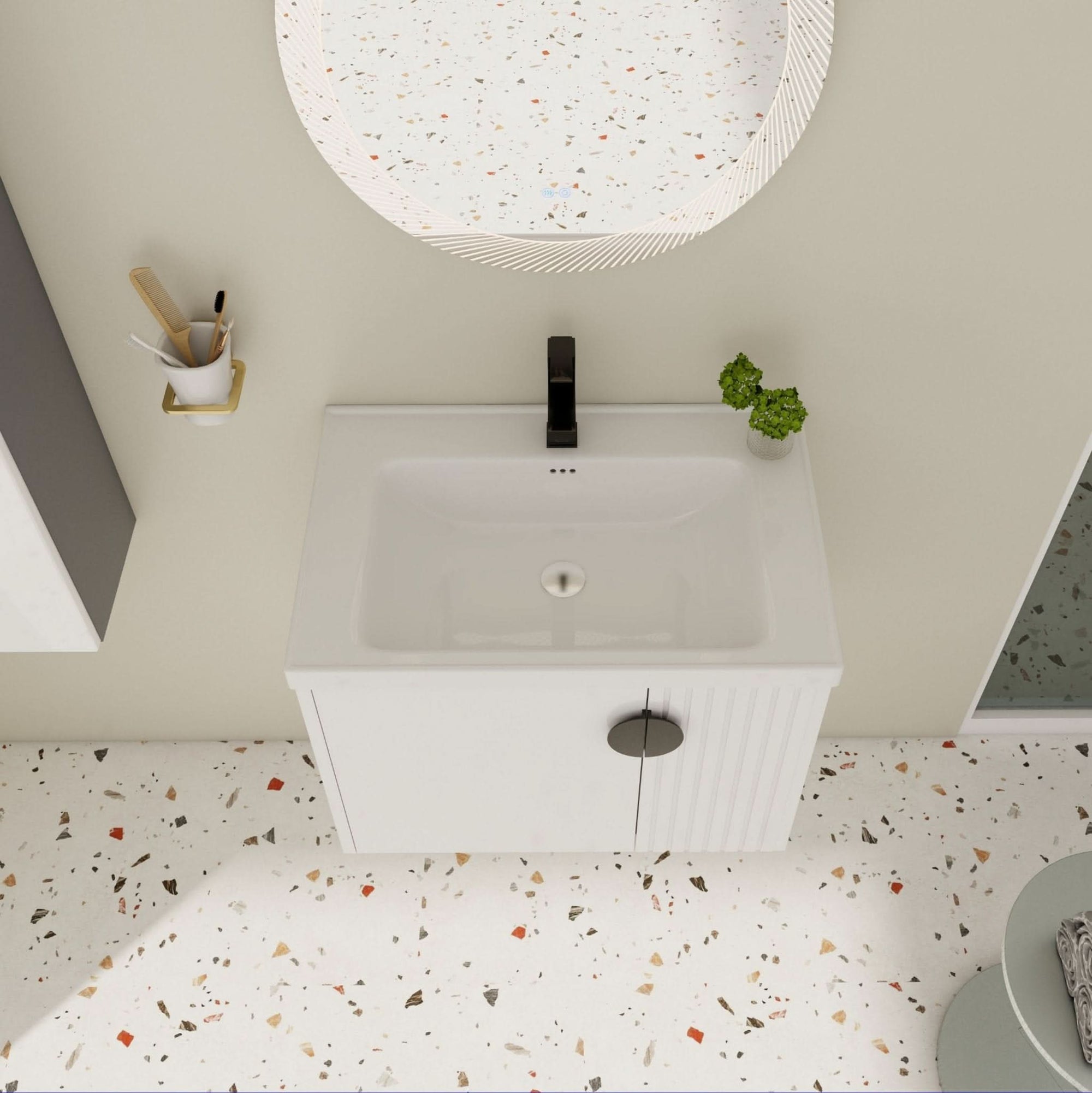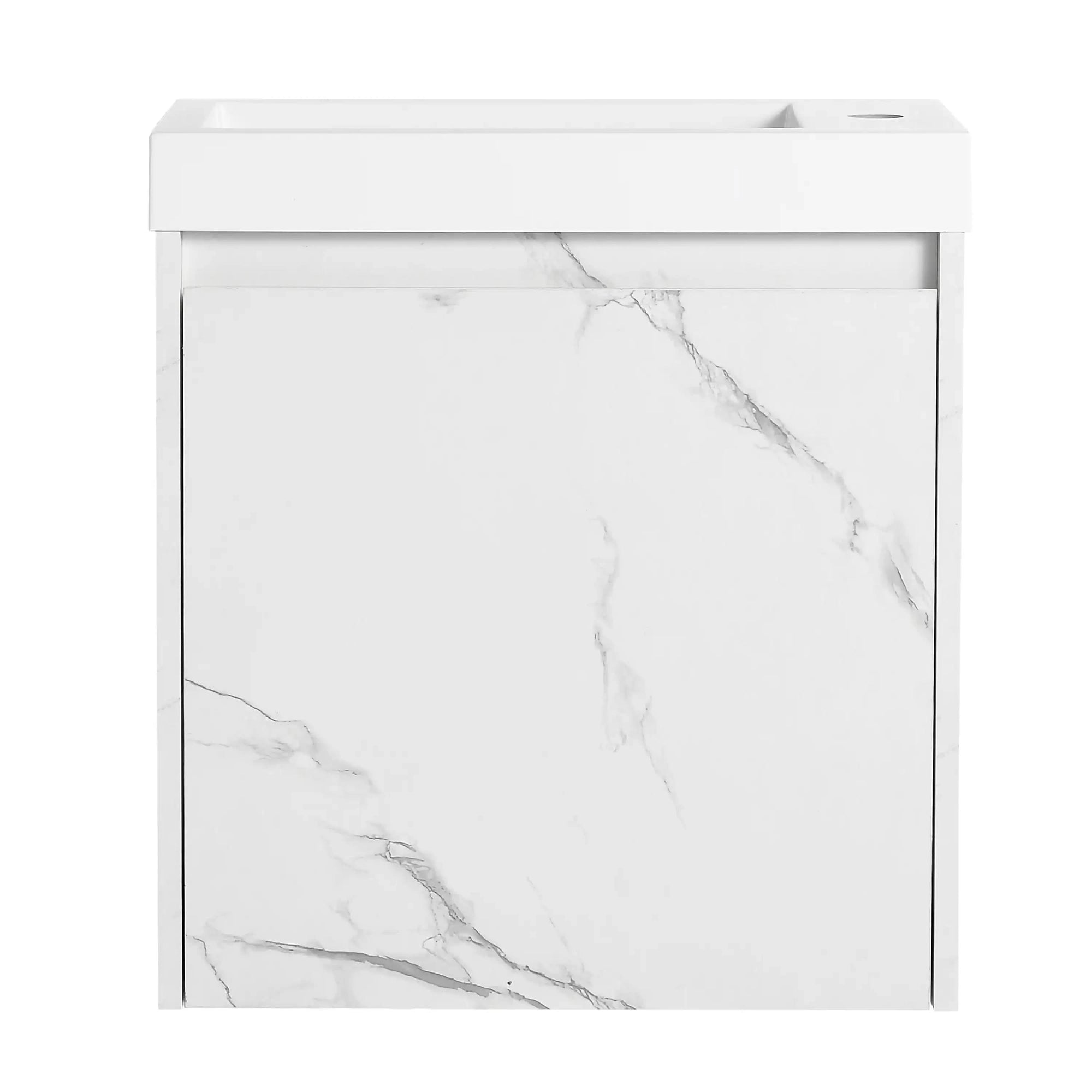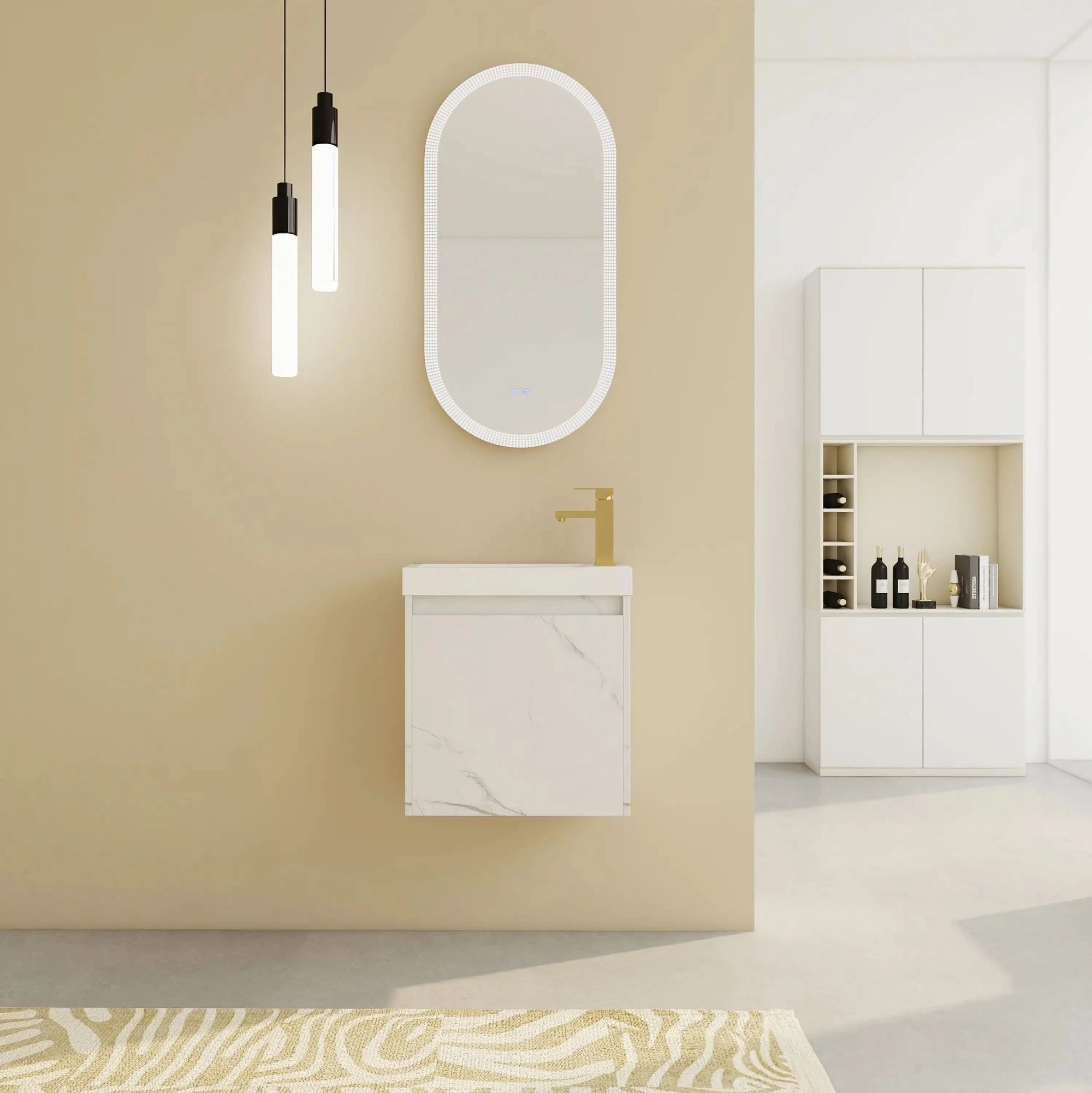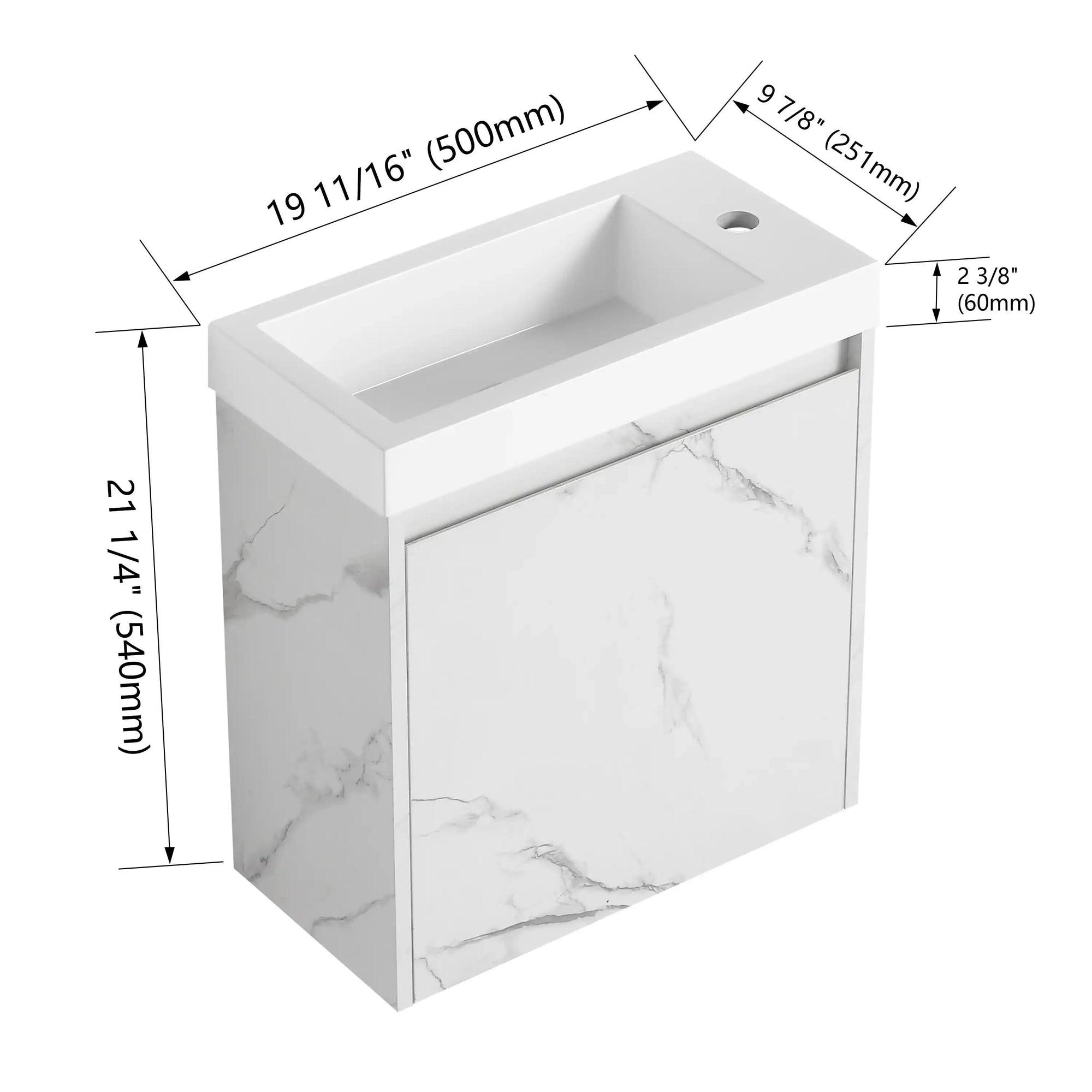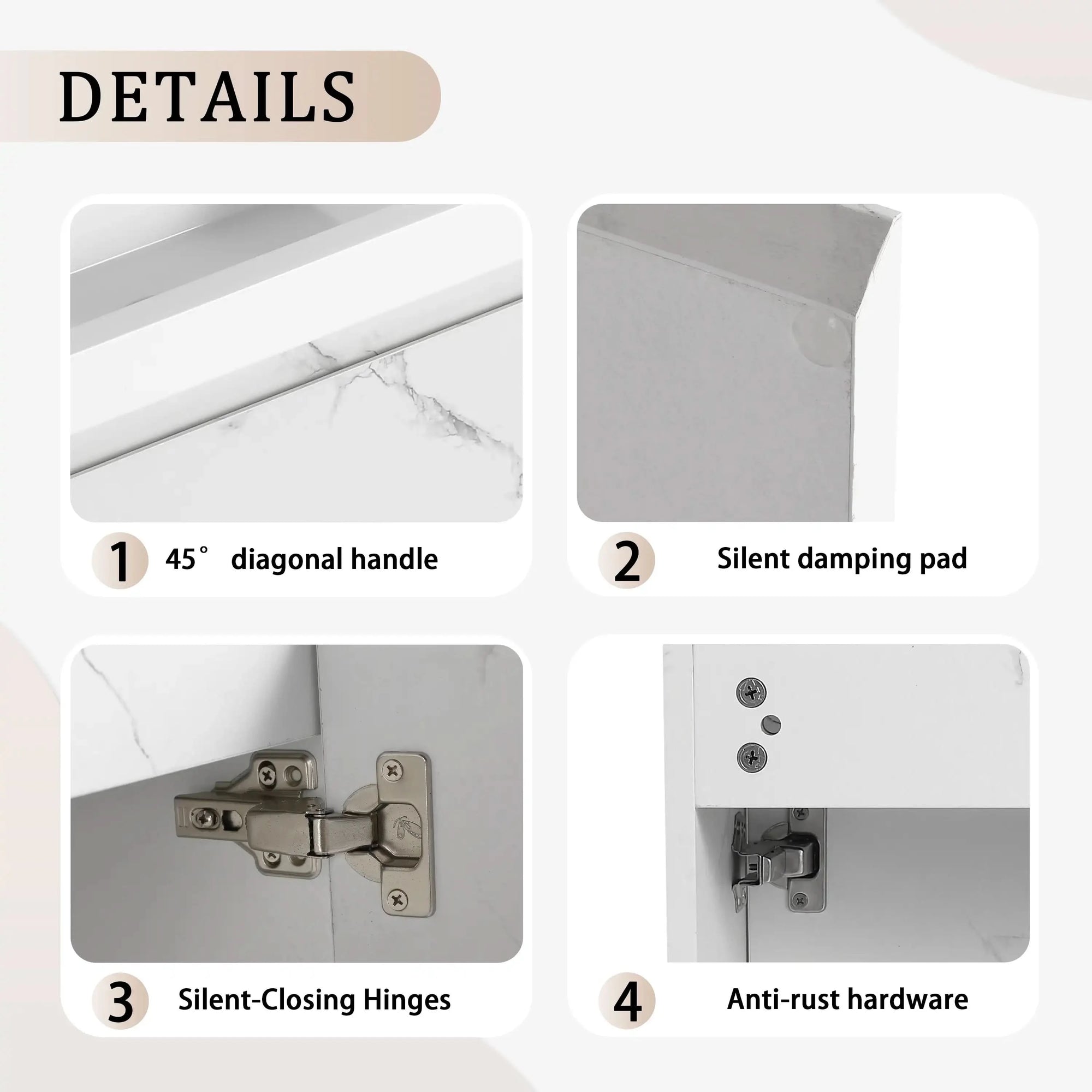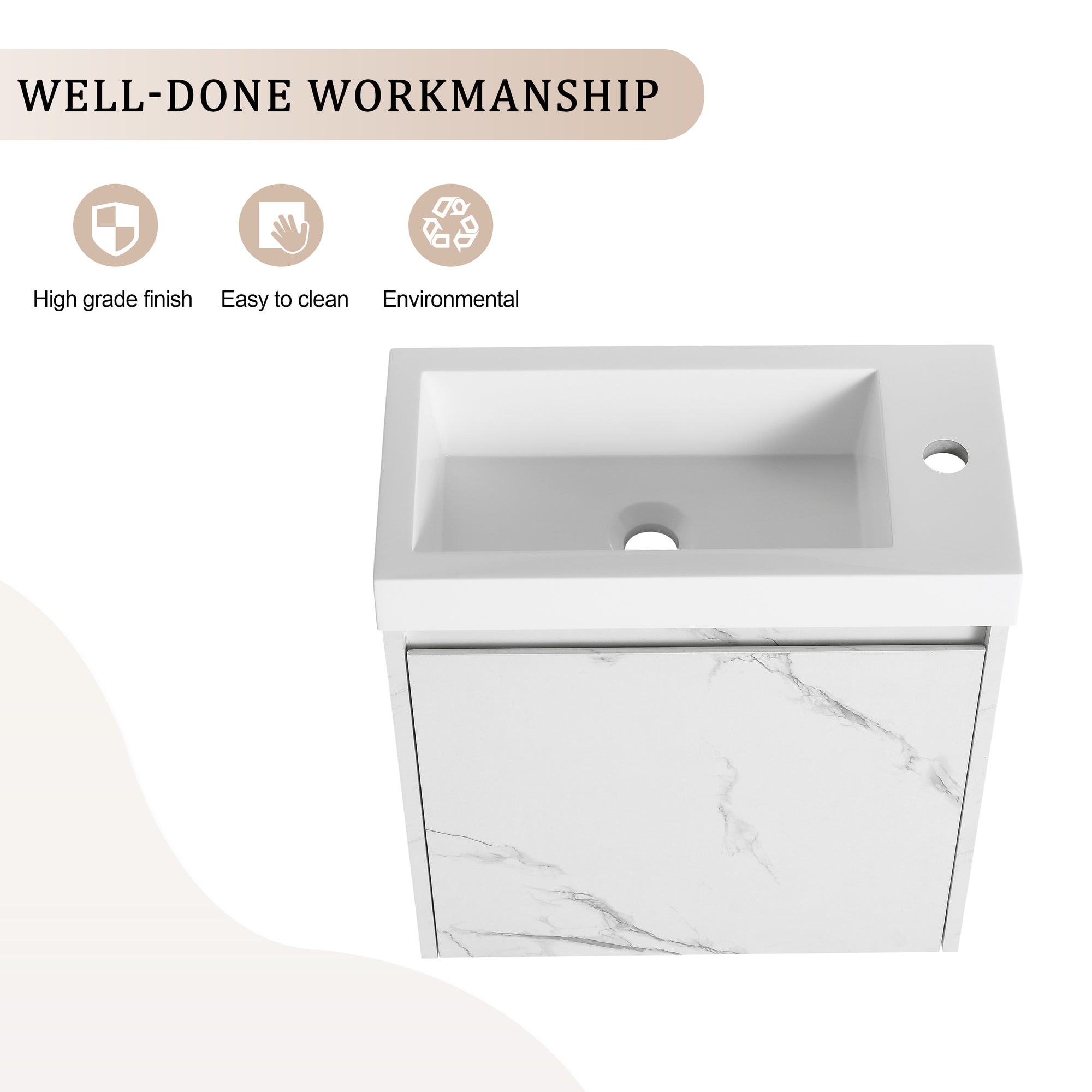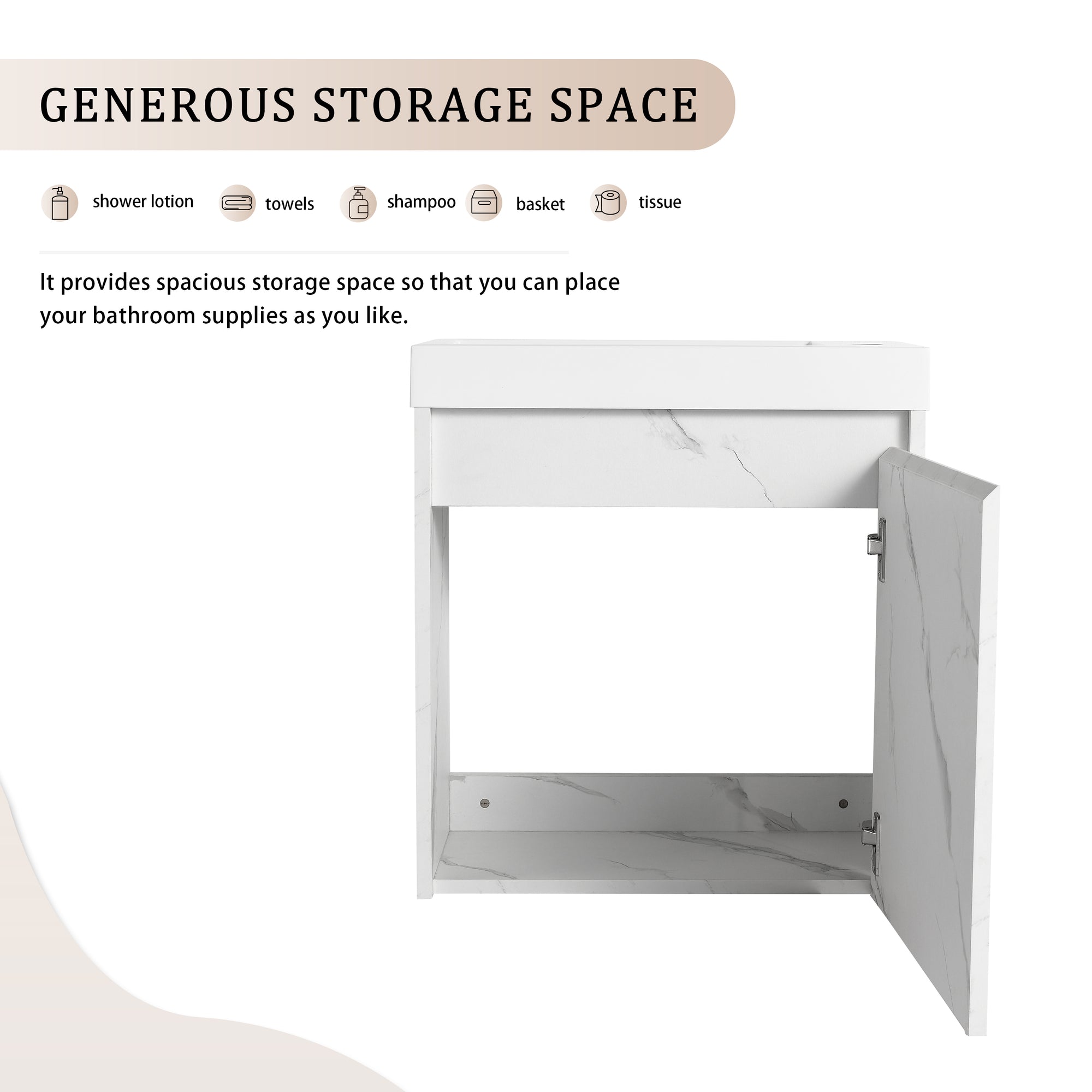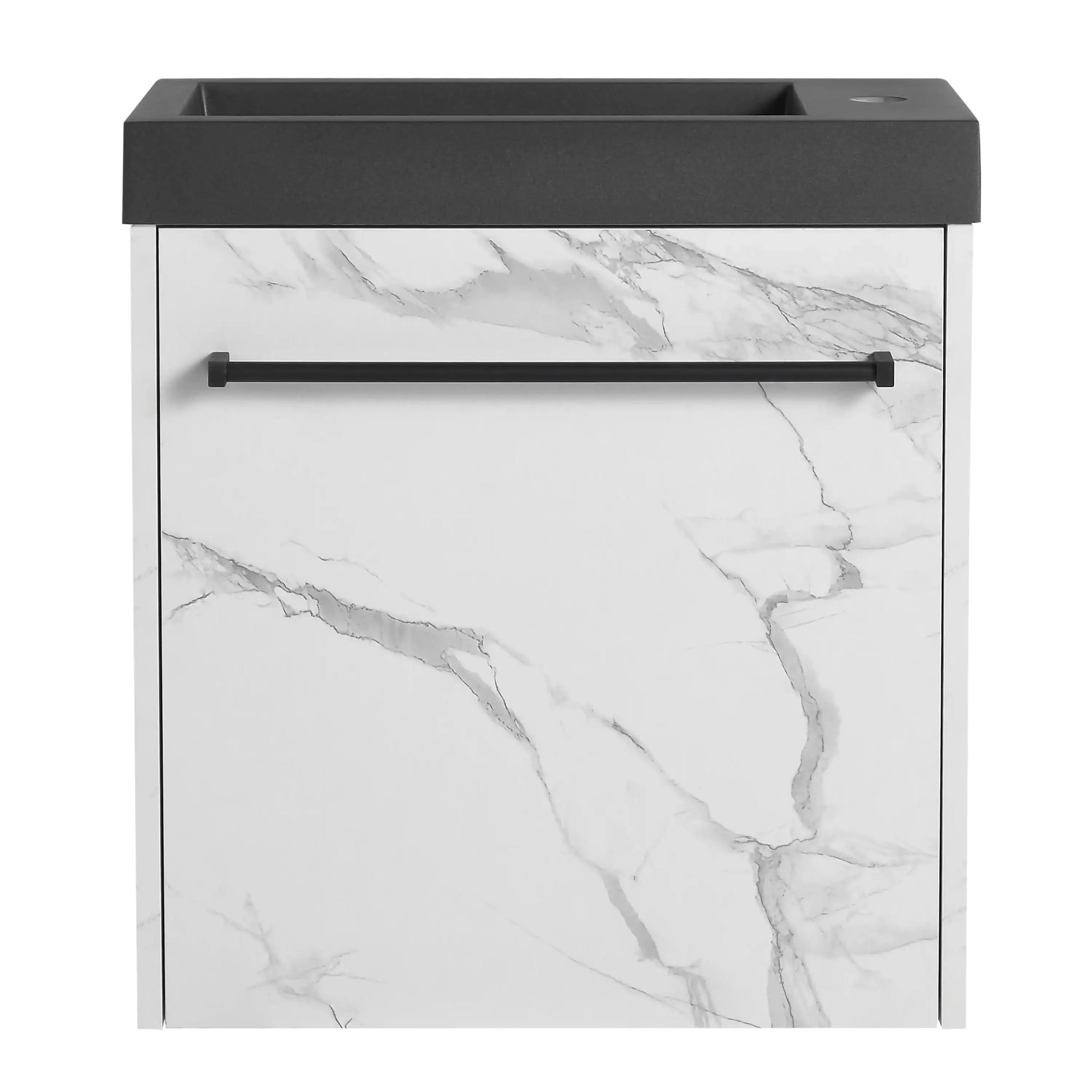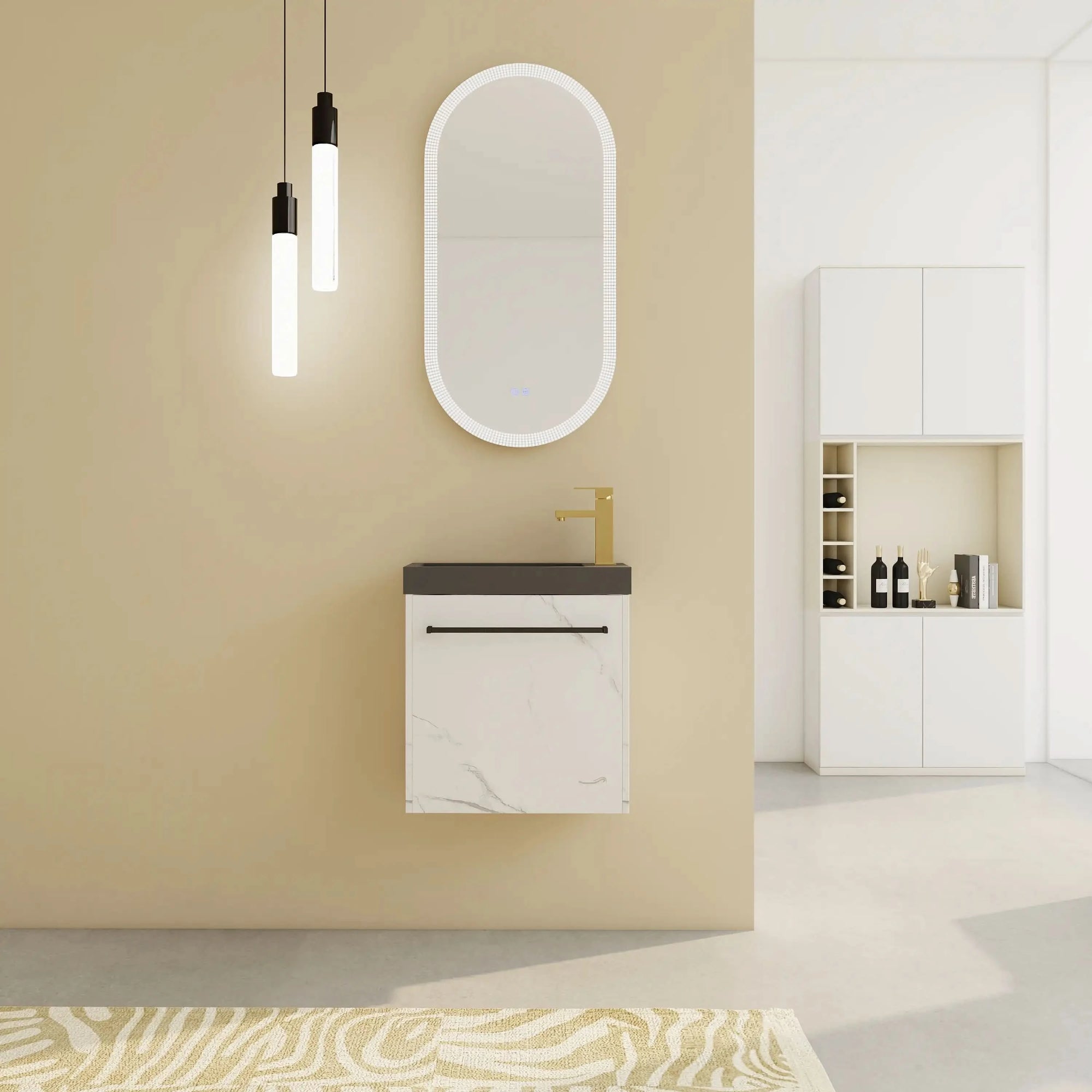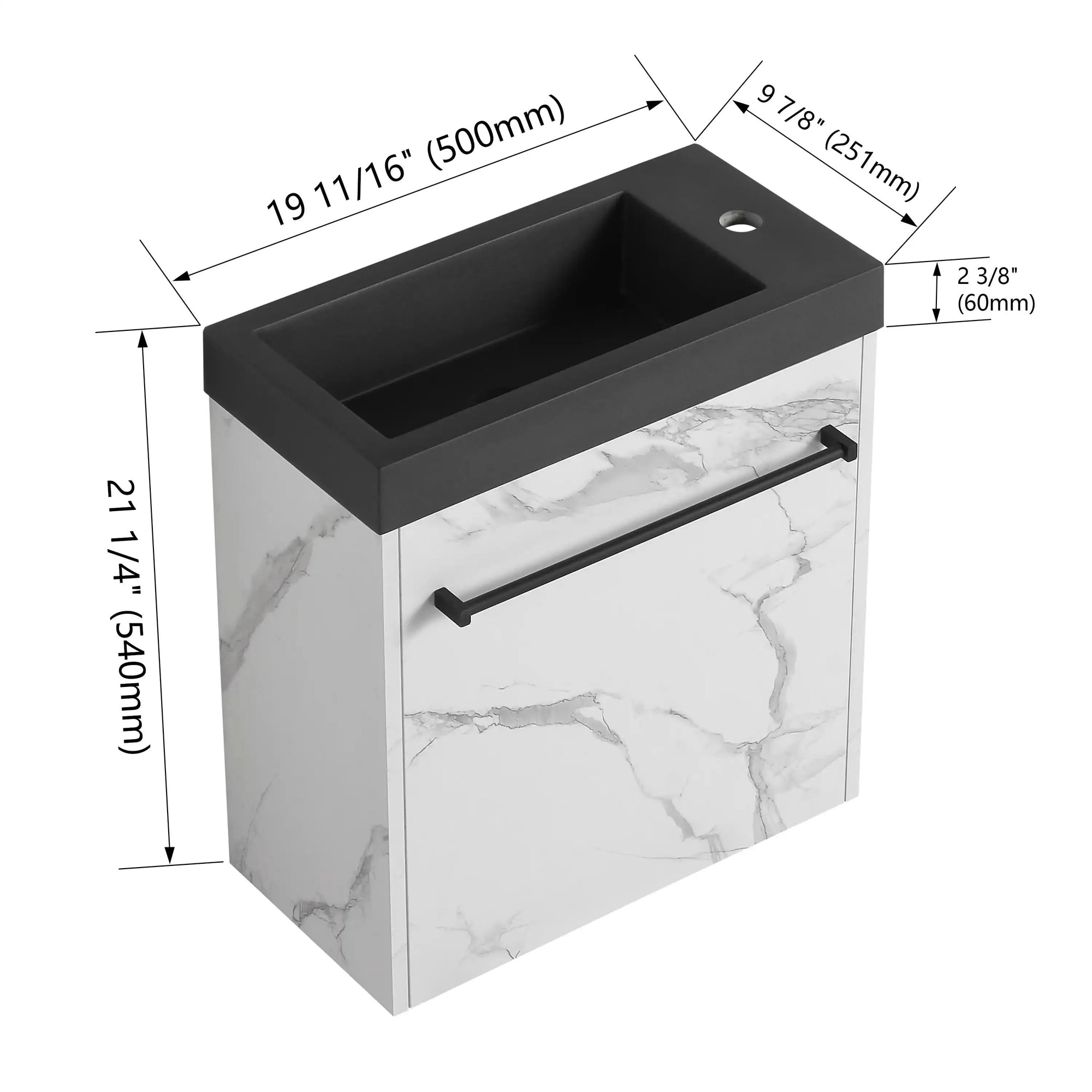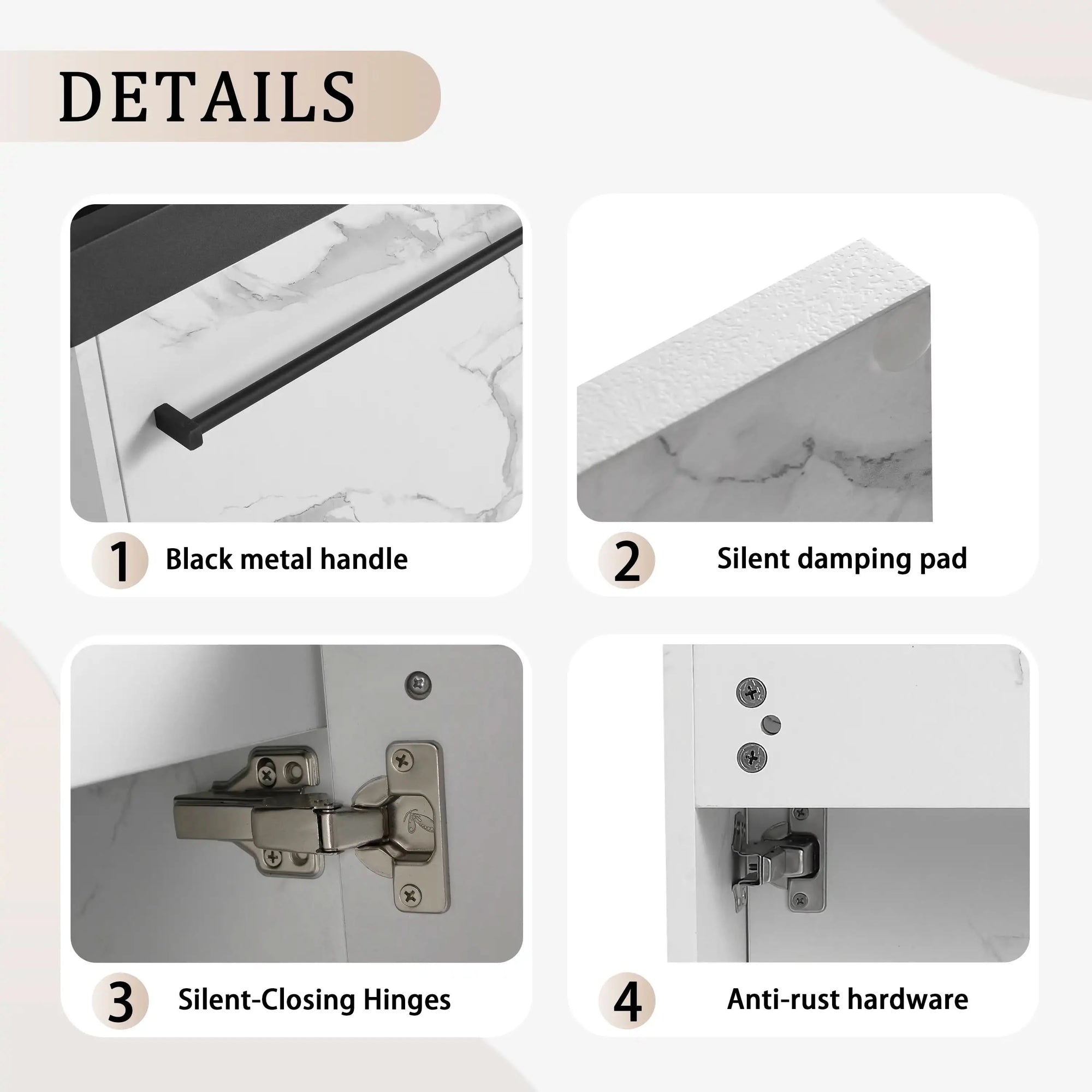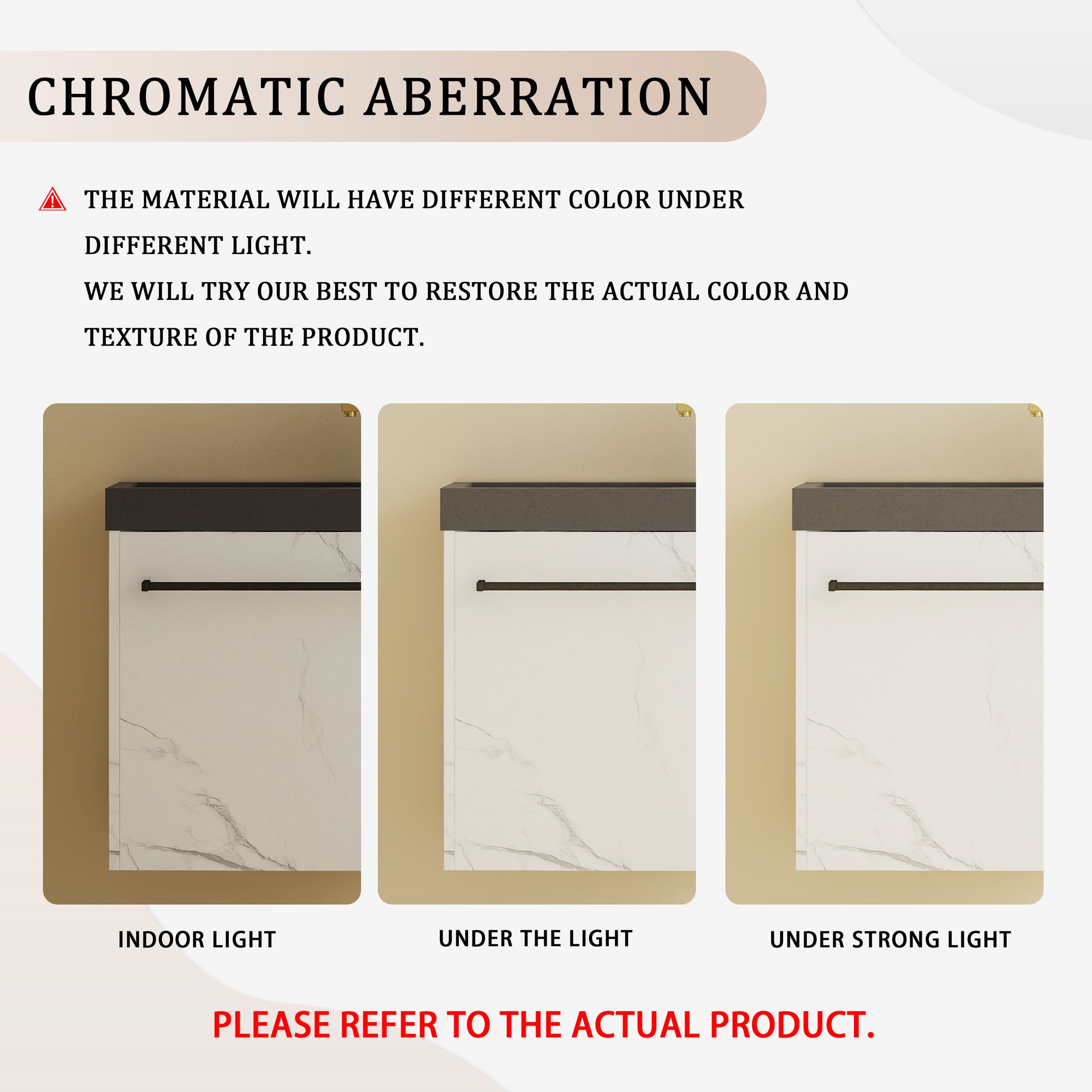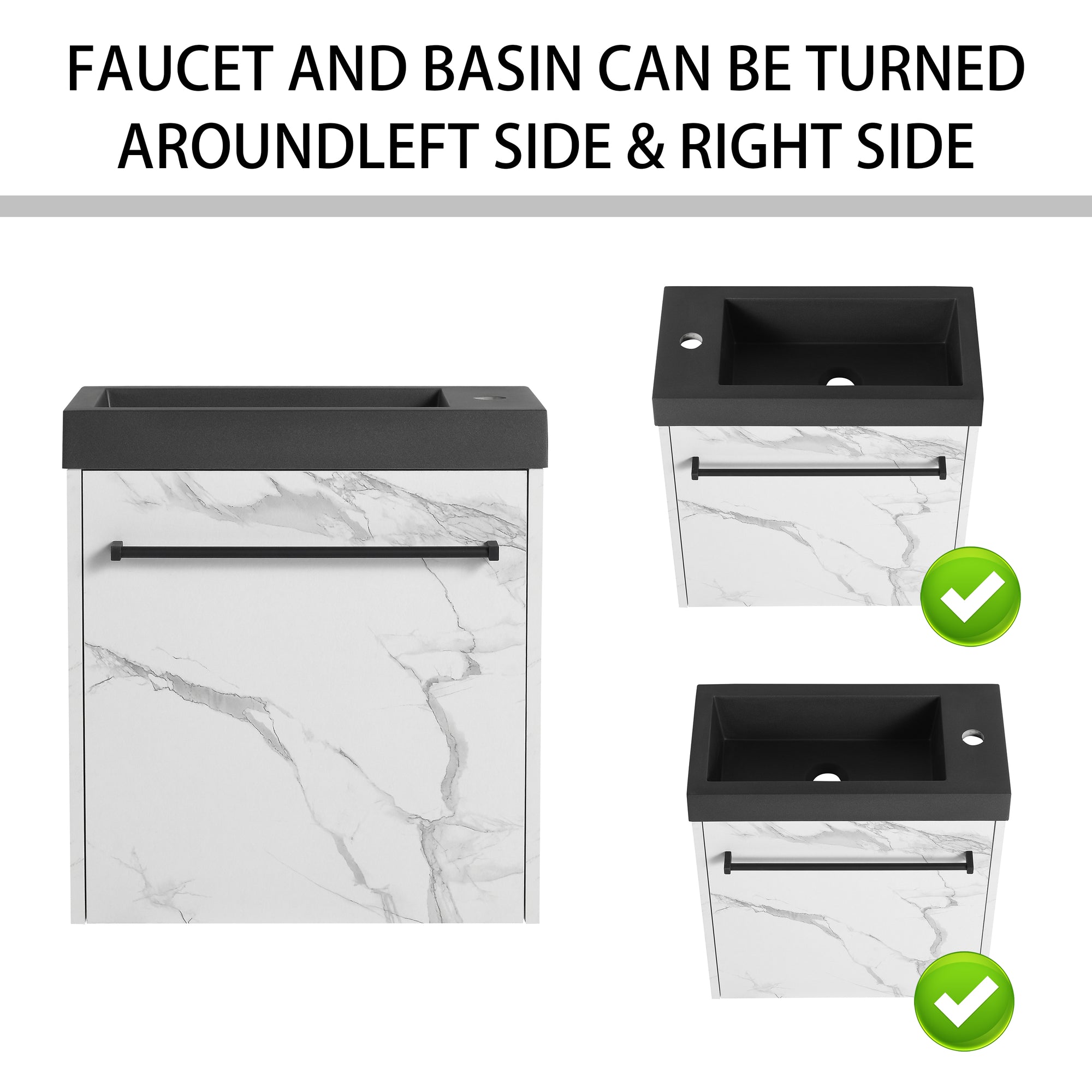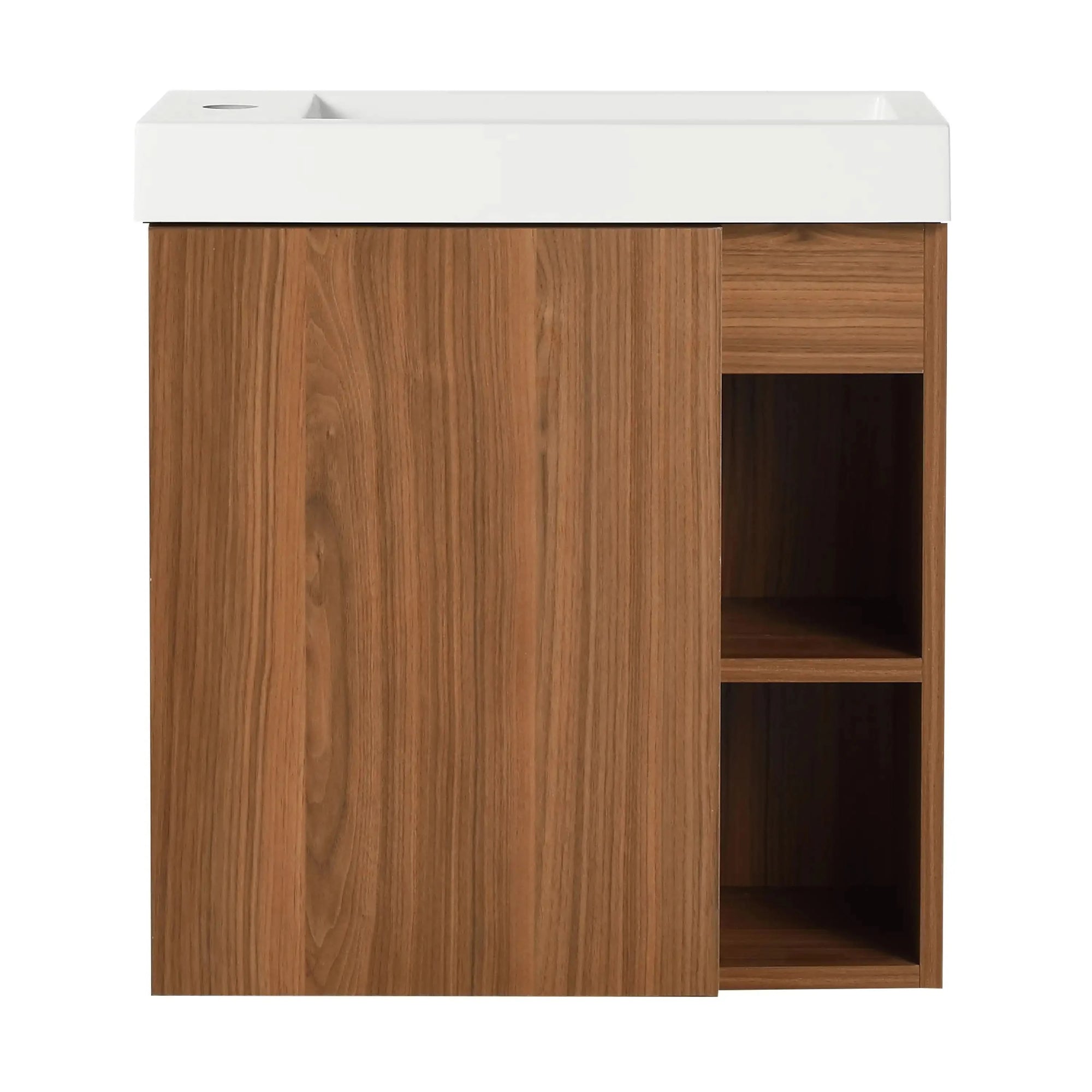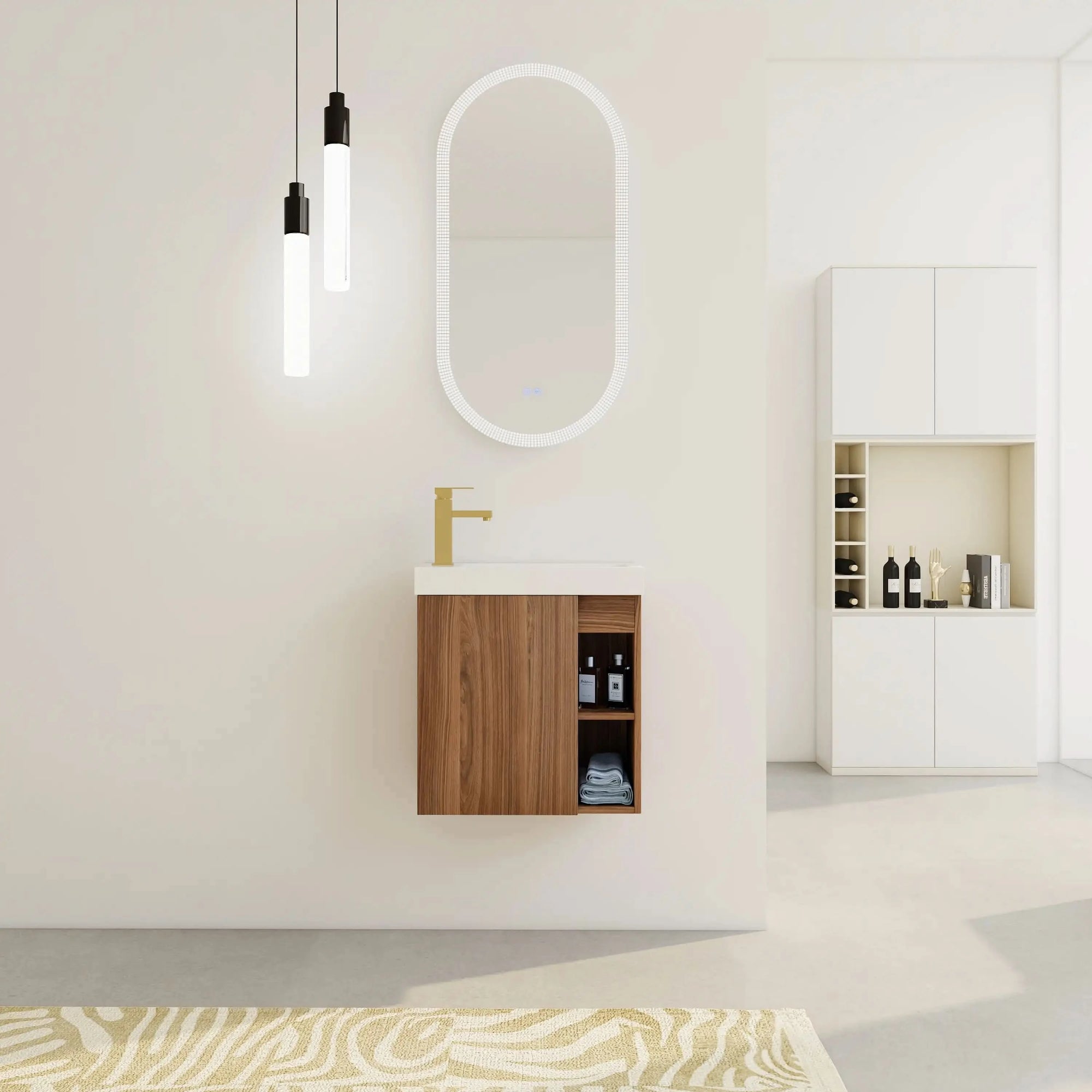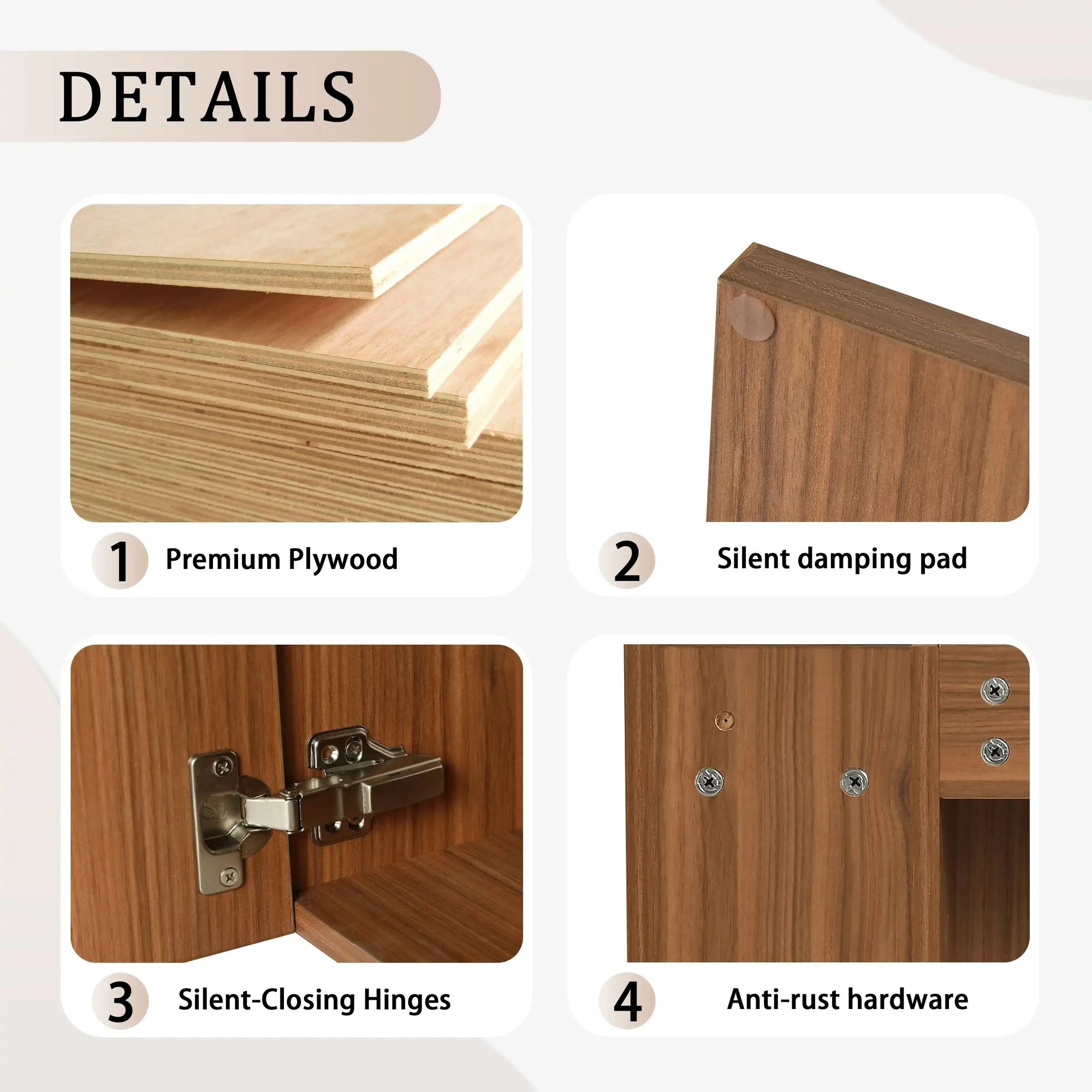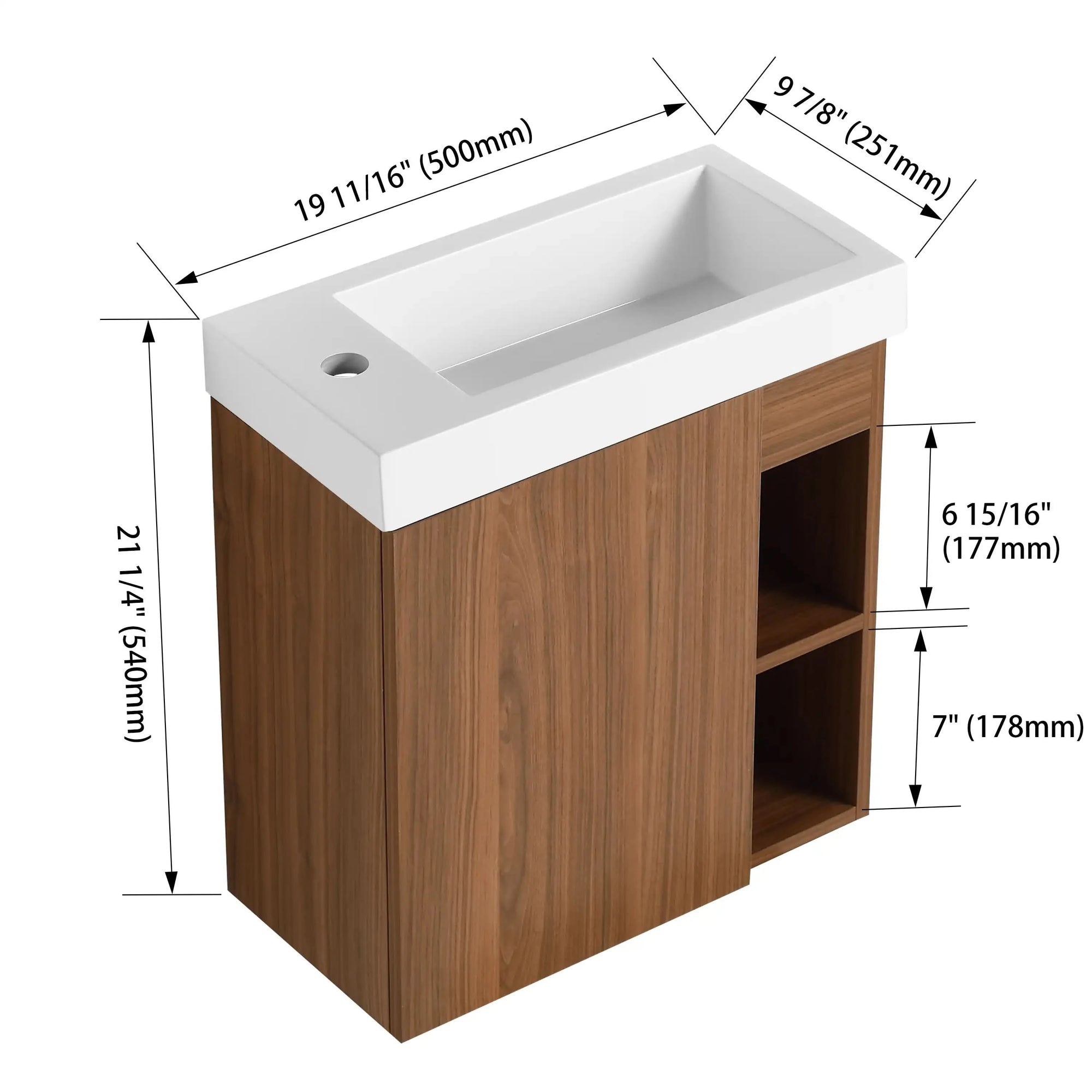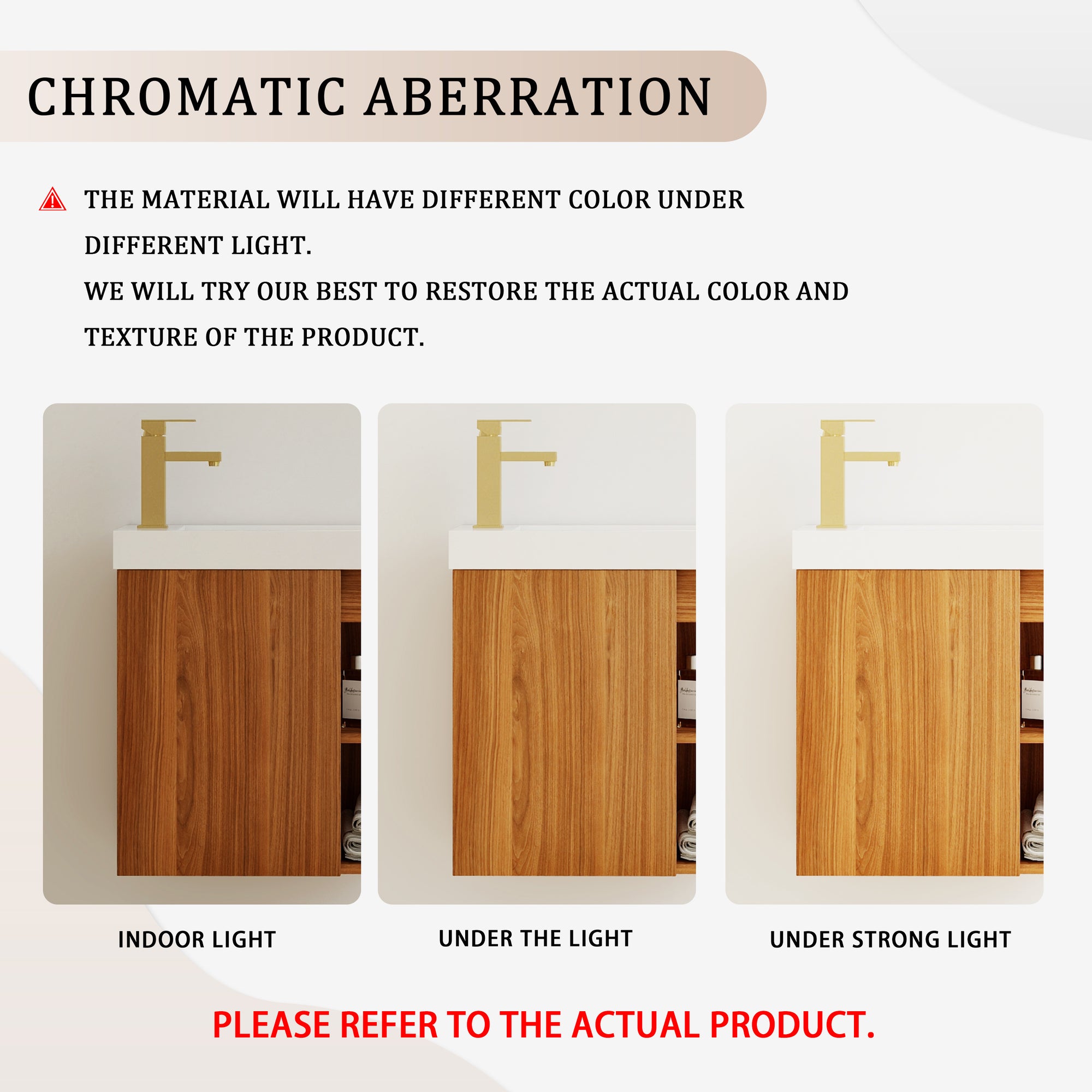At first glance, it could appear as no more than a cabinet hanging on the wall. Look a bit closer, though, and you’ll find it’s subtly rewriting the rules for how we approach bathroom design — so not only in terms of visual punch, but also in terms of practical value.
So what’s all the fuss about? Here are six of the most game-changing reasons people are saying goodbye to the heavy cabinets of the past and hello to floating vanities’ chic simplicity.
Table of Contents:
- 1. Floating Vanities Create the Illusion of Amplified Space as a Strategic Interior Optic
- 2. The Vanity Becomes a Sculptural Art Object, Not Just Furniture
- 3. Installation Flexibility Fosters Evolutionary DIY Design
- 4. Future-Forward Materials Merge Hygiene, Durability, and Sustainability
- 5. Invisible Storage Solutions Hide Chaos Without Sacrificing Aesthetic Simplicity
- 6. Customization Options Multiply with Modular, Mix-and-Match Designs
- Conclusion: The Floating Vanity Isn't a Trend—It's a Transformation
- FAQ: Floating Vanity Real Talk
1. Floating Vanities Create the Illusion of Amplified Space as a Strategic Interior Optic
Alright, so, like, let’s talk about optical illusions — but, like, the good kind that makes your bathroom feel like it expanded when you turn on the lights.
One of the major reasons people love bathroom floating vanities is because it visually opens up space in the room. It doesn’t reach the floor, so your eyes slide under it, which makes the place feel more open and breezy.” This is particularly great for tiny bathrooms, where every inch feels like prime real estate.
And consider this: If a traditional vanity is akin to a woman wearing ankle boots, then a floating vanity equates to a woman going barefoot. Suddenly the floor is longer, cleaner, more easily navigable. You can even slide a basket or two underneath for extra storage or toss in a cozy bath mat without it looking crammed.
For renters or city dwellers struggling to make a matchbox-sized bathroom look Instagram-worthy, this alone might be reason enough to make the swap. It’s not magic — it’s just smart design.

2. The Vanity Becomes a Sculptural Art Object, Not Just Furniture
Let’s be real: Most vanities of the past have been sort of … blah. There were those huge brown boxes with a sink on top, right? Not exactly Pinterest-worthy.
But a bathroom floating vanity? That’s a different story. These beauties are like the statement necklace of your bathroom—functional, yes, but also a major design moment.
With their sleek lines and often minimalist design, floating vanities can masquerade as modern sculpture. Whether you choose a shiny white surface that reflects light or a matte woodgrain for a natural spa feel, they add personality without taking over the room.
It’s furniture that feels intentional. It doesn’t just hold your toothpaste—it shows off your taste. And because they often feature clean lines and wall-mounted installation, they give your space a custom-built feel, even if it came straight out of a box.
If bathrooms had a gallery wall, a floating vanity would be the showpiece. Yes, it's that stylish.

3. Installation Flexibility Fosters Evolutionary DIY Design
Now here’s a little secret for the DIYers among us: floating bathroom vanities are surprisingly flexible when it comes to installation.
As they're hung on the wall, you also get to decided which height suits you best. Prefer it to be higher, putting less strain on your back? No problem. Want it lower for the kids to brush their teeth without a stool? Done. You're the boss.
That kind of versatility is a game-changer, especially for households with a variety of needs or those looking to future-proof their home. And floating vanities also get along well with lots of different types of sinks — from vessel sinks, to integrated ones — so you have even more design freedom.
Yes, you will need to do some stud-finding and leveling wizardry during installation, but if you’ve ever hung a heavy mirror or mounted a flat-screen TV, you’re halfway there! The project is something many homeowners are finding they can swing with a little scouting and a long weekend (and perhaps one irate YouTube tutorial).
And c’mon — few things are more satisfying than being able to say, “I installed that,” every time you get a compliment on you r shiny new vanity.

4. Future-Forward Materials Merge Hygiene, Durability, and Sustainability
Sure, aesthetics matter — but so does what that vanity is made of. Thankfully, today’s bathroom floating vanities come with serious tech under the hood.
From moisture-resistant MDF to recycled composite woods and high-gloss laminates that shrug off toothpaste splatters like a boss, the materials used are designed for real life. And that means wet hands, soap spills and the occasional rogue splash won’t be a problem.
Better yet, quite a few contemporary floating vanities now prioritize eco-friendly materials too. They’ve got sustainably harvested wood veneers, low-VOC finishes and hardware that endures without rusting. It’s bathroom design that not only looks but also does good.
Hygiene-wise, it leaves your floor open and clean, so you sweep or vacuum with ease. No more grimy corners or strange buildup at the bottom of the vanities. That’s a win for those who have ever had to clean under a standard issue vanity and found.
In short, floating vanities aren’t just stylish—they’re built smart.

5. Invisible Storage Solutions Hide Chaos Without Sacrificing Aesthetic Simplicity
Here’s where bathroom floating vanities really earn their keep: smart, sneaky storage. The minimalist exterior might fool you, but inside, these vanities are masters of organization. Think soft-close drawers, hidden compartments, and under-sink shelves that make the most of limited space.
Designers have gotten creative about what to do with every cubic inch. Deep drawers for towels? Check. Pockets for makeup and grooming gear? Absolutely. And it does so while maintaining its clean-lined, contemporary aesthetic.
And for those of us living with roommates, kids, or just a tendency to stockpile bath bombs—this kind of thoughtful storage helps keep the bathroom looking photo-ready, even when real life is messy.
So yes, you can be a minimalist and have stuff. Floating vanities showing how it’s done.

6. Customization Options Multiply with Modular, Mix-and-Match Designs
Let’s talk about freedom — design freedom, that is. One of the best advantages of settling on a floating vanity for your bathroom right now is that there is a crazy amount of customization possible. We’re not talking “choose between white or off-white” anymore. We’re talking full-on mix-and-match madness—in the best way possible.
With modular floating vanities you can customize everything: the material for the countertop, the shape of the sink, the configuration of drawers, the finish, even the hardware. Prefer a woodgrain drawer front and a matte black basin? Go for it. Like the look of a high-gloss cabinet with built-in LED lighting and vessel sink? You got it. It’s like designing your own burger, except for bathroom style.
This modular design also means upgrading is as easy as ABC. How about replacing only drawer fronts next year to coordinate with a new tile color? No need to replace the whole unit. Many modern floating vanities are designed for easy part swaps, so your bathroom can grow and change with you.
In the age of individuality (where everyone is vying to show off their personal style), floating vanities have become the design canvas we’ve all been craving.

Conclusion: The Floating Vanity Isn't a Trend—It's a Transformation
By now, you’ve surely noticed that the bathroom floating vanity isn’t just a trend, it’s an all-out revolution. It creates the illusion of additional space, turns practical furniture into sculpture, enables DIY customization, promotes modern materials, and nicely camouflages your clutter.
Your vanity is so much more than a spot to wash up. Instead, it becomes a great piece of décor in your bathroom that showcases your lifestyle and design aesthetic.
So whether you’re renovating a main bathroom or giving the guest room powder room a little shine-up, do not ignore the floating vanity. It may well float your boat design, too.
FAQ: Floating Vanity Real Talk
Q1: Will a floating vanity support the weight of a heavy countertop like quartz or marble?
A: Absolutely—but make sure it’s properly installed. A floating vanity needs to be mounted into wall studs, and reinforced brackets or mounting systems can handle stone countertops.
Q2: Is a floating vanity practical for families with kids?
A: Yes! You can install it at a lower height to make it accessible for children, and the under-vanity clearance makes cleanup easier.
Q3: Do floating vanities limit plumbing access or make repairs harder?
A: Not really. Most are designed with removable back panels or open-back construction, giving plumbers easy access to pipes. Just be sure the vanity depth accommodates your plumbing setup.
Q4: Can I retrofit my existing bathroom to include a floating vanity without a total reno?
A: Definitely! It might require patching tile or relocating the plumbing slightly, but many homeowners have successfully upgraded their space with just a few strategic changes.
Q5: Are there floating vanity options for small bathrooms?
A:
Top Storage Features of a Floating Bathroom Vanity with Sink You Should Know
How to Hang a Floating Vanity Like a Design Diva
Wall-Mounted Vanities: The Secret Weapon for a High-End Hotel Bathroom Vibe at Home


